The vulture babies are growing like weeds; they’ve slightly more than doubled in weight in the past week, from 124g (4.4 oz.) and 156g (5.5 oz.) last week to 256g (9 oz.) and 341g (12 oz.) this week. They’re more alert for longer and growling and flapping those stubby little wings...Just adorable!
|
But there were no releases scheduled, and we did need the rain. Just maybe not all three inches all at once... The vulture babies are growing like weeds; they’ve slightly more than doubled in weight in the past week, from 124g (4.4 oz.) and 156g (5.5 oz.) last week to 256g (9 oz.) and 341g (12 oz.) this week. They’re more alert for longer and growling and flapping those stubby little wings...Just adorable! Late this week, a nest of three woodpeckers came in; while their feathers haven’t come in enough to state with 100% certainty, they look and sound like red-bellies to me. Saturday’s torrential rain did NOT please the great horneds, not at all. It was their first experience with rain and while they do have a blind to take shelter from the weather, they seemed to prefer sitting in the rain and looking angry. They were nice and dry this morning, though. Of the mixed species nestlings last week, only the house finch survived. He’s looking really good and perfectly content to sit in his little nest. House finches are pretty laid-back little birds with sweet temperaments, as a rule. The barreds continue to mature nicely. The barred trio is now doing some limited self-feeding; the older barred has been self-feeding for about two weeks now. The screeches are honestly starting to look nonreleasable. I do have some placement options if that turns out to be the case, but I’m still hoping for eventual releases. And the mourning dove released week before last paid a brief visit around mid-week. She’s looking good and seemed quite content.
4 Comments
A fourth young great horned came in Tuesday, making four great horneds and four barreds, along with some other not-so-common but always adorable babies—read on! The fourth great horned is technically a brancher but he’s reluctant to fully self-feed and really on the skinny side, so he’ll remain inside for a little while longer. The day prior to his arrival, two nests of Carolina wrens came in. One nest, five hatchlings, had been without food for over 24 hours by the time they arrived; two were DOA and the other three didn’t survive the night. The second nest, four older babies, lost two within three days; the other two seem to be doing well. Saturday a young nestling probably-phoebe came in; all the sibs were found scattered on the ground dead. This one had such bad bruising on his belly and took so long to finally poop that I really didn’t hold out much hope he’d survive the night, but he’s gaping and peeping and pooping today. He’s sharing a nest with the Carolinas. Today a nestling house finch came in after falling from what his finders described as a nest 25 feet up in a tree. He’s also sharing a nest with the Carolinas and probably-phoebe. The mourning dove and female red-phase screech were released; the male red phase refuses to leave and the gray phase male seems to have soft-tissue damage. As I’m about to need the mini-pen for the barred owls pretty quickly, the two screeches will end up coming back inside when the barreds need to go out. And on the topic of barreds, they’re doing great and growing nicely. The great horneds in the raptor flight, aka the Three Stooges, are eating well and flying beautifully. Their landing/perching skills, though, are painful to watch. It’s a cacophony of hissing and beak clicking when I go in to feed them, and the older of the three has learned to do an impressive threat display. His first attempt was a bit lacking but by week’s end he had it down quite nicely. And finally, this week’s cherry-on-the-top intake is...
...wait for it... ...two baby black vultures! I mean, baby-baby. Intake weights were 124g (4.4 oz.) and 156g (5.5 oz.). They literally eat two or three bites of food and pass out. But they’re already, at this young age, giving me that cocked-head assessing stare: “We got your number, lady, and you are SO done when we get a little more mobile.” Yeah, vultures are smart, smart birds. Let the shenanigans commence! LWR received four new owls this week, all barred owls. The most recent barreds were all nestlings. The century-old tree their nest was in fell. The callers reported the tree trunk was over a pond and the babies were in a cavity over the pond. The tree had fallen the previous afternoon or night, but they didn’t discover the babies till the following day. When they arrived at LWR, their little bellies were empty (unlike other birds, owls have bellies, not crops), so the parents had not attempted to feed them in the downed tree. They’re eating well and doing great here at LWR. A brancher barred came in a couple of days before that. He’d fallen and while the finders could see his sib in the nest, no adults ever came down and their dogs were starting to take an interest in him. When he arrived at LWR, he purely stunk. He reeked of death, making me suspect he may have branched too soon because of either a dead sibling or a rotting prey carcass in the nest. The finders said his sib was out of the best but perching when they left but reported the next day they’d seen the parents around the remaining sib. He doesn’t smell now and he’s self-feeding so that’s always a welcome break from rodent slicing and dicing. The great horned trio are now in the raptor flight after the red tail’s release earlier today. The red tail had a gorgeous release. For a change of pace, we released him over the hay field but he banked and flew back toward the pasture. And the crows were quick to notice and harass the poor fellow, who could’ve easily had a crow snack had he wanted to. Y’all, I’m so proud of this bird—he’s the one who came in unable to stand, flare his tail or spread his wings, and just look at him now! All three adult screeches are in the mini-pen now. The “older” red phase was quite dramatic in his facial expressions at having company. The red phase female keeps a permanent look of sheer panic on her face, poor baby. I’m sure she’s still traumatized by her experience of being trapped in the cavity with her destroyed eggs for six hours. The gray phase just hates everybody. While he’s holding his head up properly now, he refuses to perch or attempt flight. I think his balance is still off. And the mourning dove is still being stubborn about self-feeding. Of course, it wasn’t all babies and releases; wildlife rehab seldom is. LWR had two hummers come in. One died within fifteen minutes of intake; the other seemed to have much better prospects but died overnight. A young adult male osprey came in after hitting a guide wire. His right wing was shattered just above the wrist and vet Peggy Hobby and I agreed that euthanasia was the most humane course for the bird. He also had a broken toe that had healed in the wild and was developing bumblefoot (basically a pressure sore) on it—see the circled area on the foot photo. And an adult great horned came in, quite literally blind in one eye and couldn’t see out of the other. His left eye was milky and inflamed, with a dilated and unresponsive pupil, and his right pupil was also dilated and unresponsive. Because having an adult great horned is always good to provide an example for the young ones, I talked with colleague Steve Hicks of Bubba & Friends Raptor Rehab about using this bird for that purpose but we both agreed given the condition of his eyes this would be unfair to the bird, as he couldn’t see to eat—and therefore couldn’t really serve as an example to the young trio, either. He was humanely euthanized. As an aside, those of you who’ve commented on the website in recent months may have noticed I haven’t approved the posts or responded. Weebly has stopped sending notifications when someone comments, and they hid the pending comments quite well in their last update, so I just found where they placed them. Your comments have now been approved and posted but I’m not going back through three months of comments to reply to each of them. Now that I know where Weebly’s “improvements” relocated things I’ll resume replying in a timely manner, though!
Great horned owls and screeches, that is. Great horned Number 3 came in April 1, after rains and high wind the previous night. She’s a bit older than the other two doofuses and, having been in the wild longer, a bit more aggressive—she hasn’t figured out yet that at LWR nobody has to fight for food. But the three of ‘em together...Lord love ‘em, great horneds are fierce hunters, but that’s about all the neurons fire for. Here’s Number 3 on intake: And here are the Three Stooges together, along with close-ups of their gorgeous little faces. This one is my favorite—taken with my phone camera because I was about to feed ‘em and turned from picking up the forceps to see this. Number 3 is actually an early brancher and ready for the raptor flight, but she’ll wait till her new sibs can go out there with her. And of course, the red tail has to be released first, too. Next week looks gorgeous—ideal for releases. (Knock on wood!) The red phase screech’s release may be delayed a bit longer, as I’d like to put him and the gray phase together for a bit first. The gray phase is doing much better and will, as indicated above, go into the mini-pen with the red phase next week. The third screech, a red phase, came in tonight. The finders had knocked over a snag without seeing her nest, trapping her inside with three broken eggs—and that breaks my heart. Three screeches that’ll never hatch...When they started cutting up the snag, she wobbled out and seemed disoriented, so they brought her to LWR. She’s stressed and traumatized beyond belief, poor girl, but nothing is broken. The nestling mourning dove has feathered out beautifully; now if he’ll just figure out the self-feeding thing... And a second mourning dove came in with severe neck trauma. I really thought on intake that he might be “fixable” but the next morning, this is what he looked like, and when I tried to feed him, his little neck was so twisted he couldn’t swallow properly. He was humanely euthanized. It never gets easier but it’s all too often the only “release” we can offer the severely injured. Hope everyone has a happy Easter tomorrow!
|
Archives
April 2023
Categories
All
|
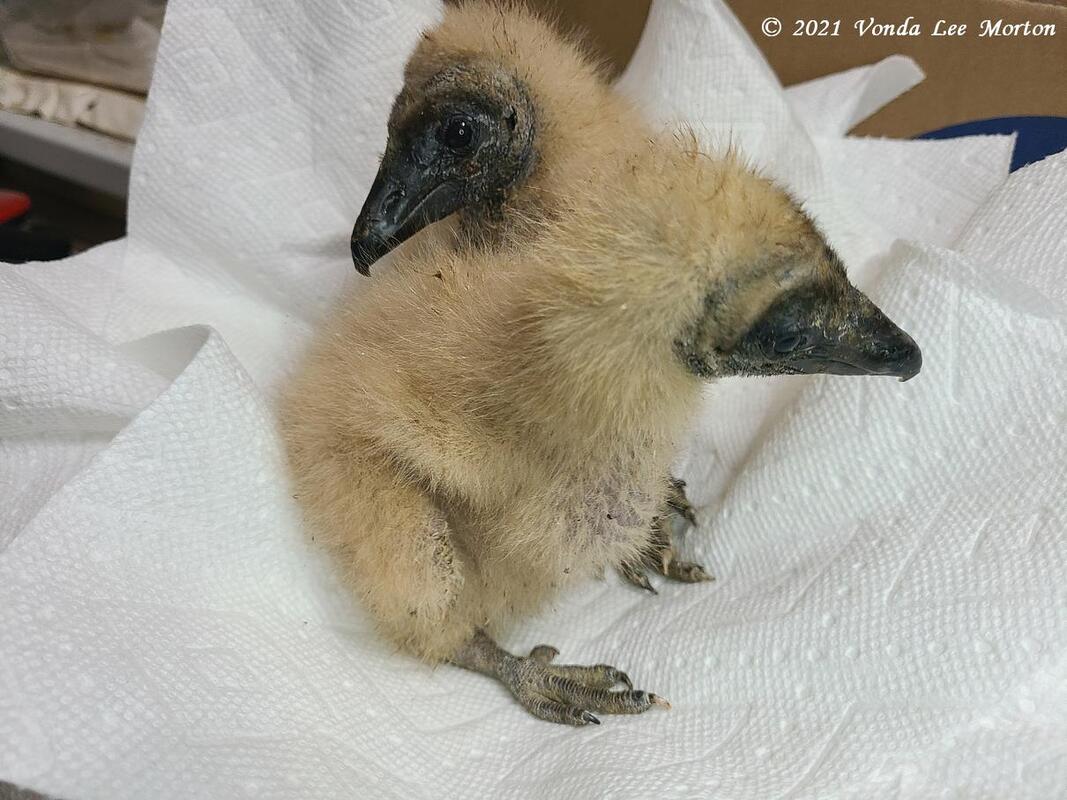
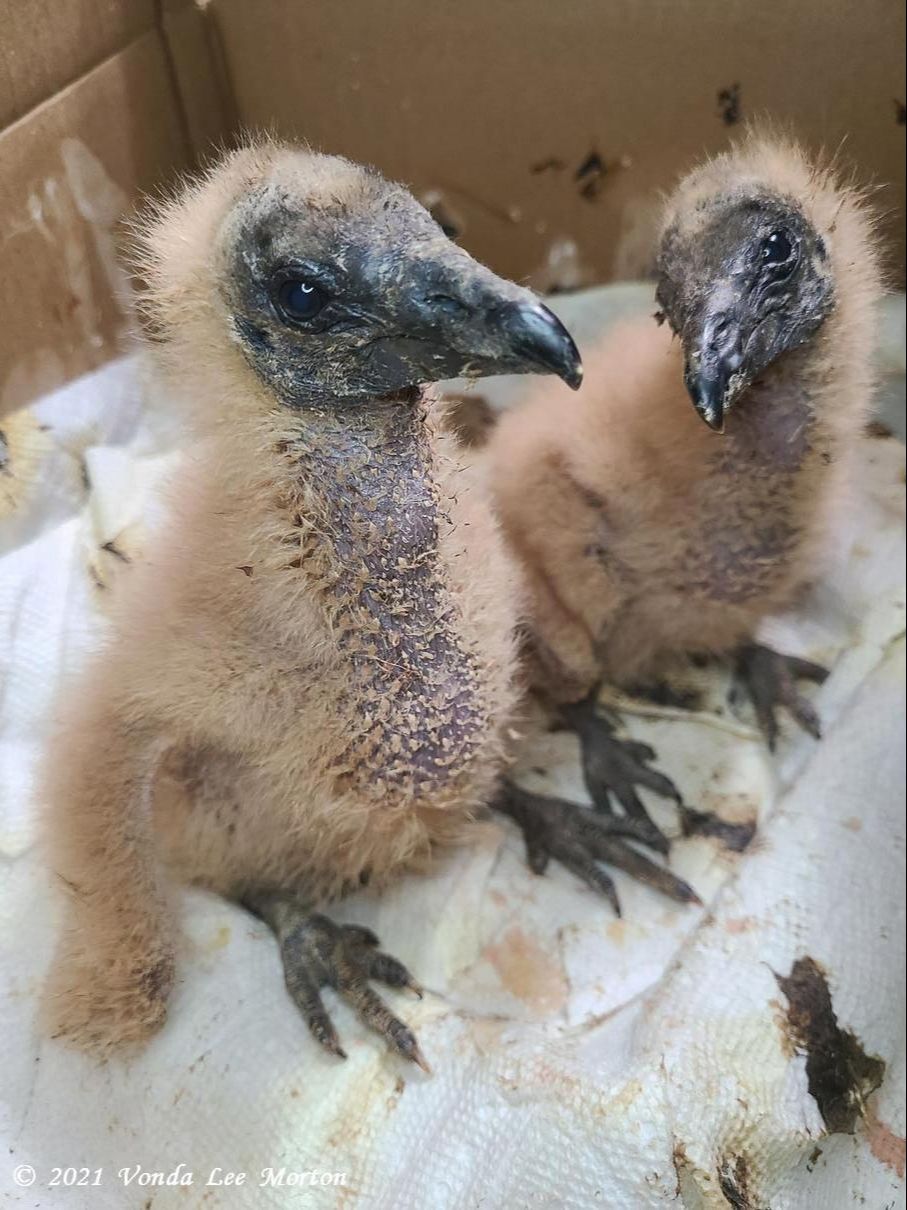
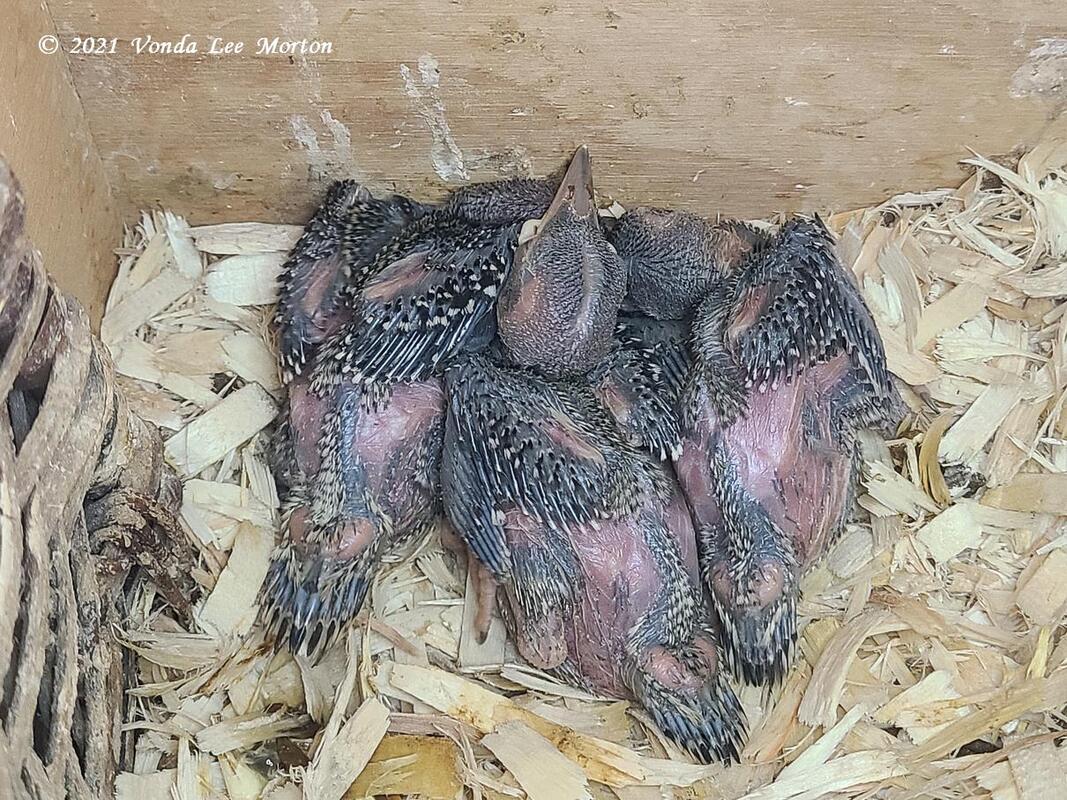
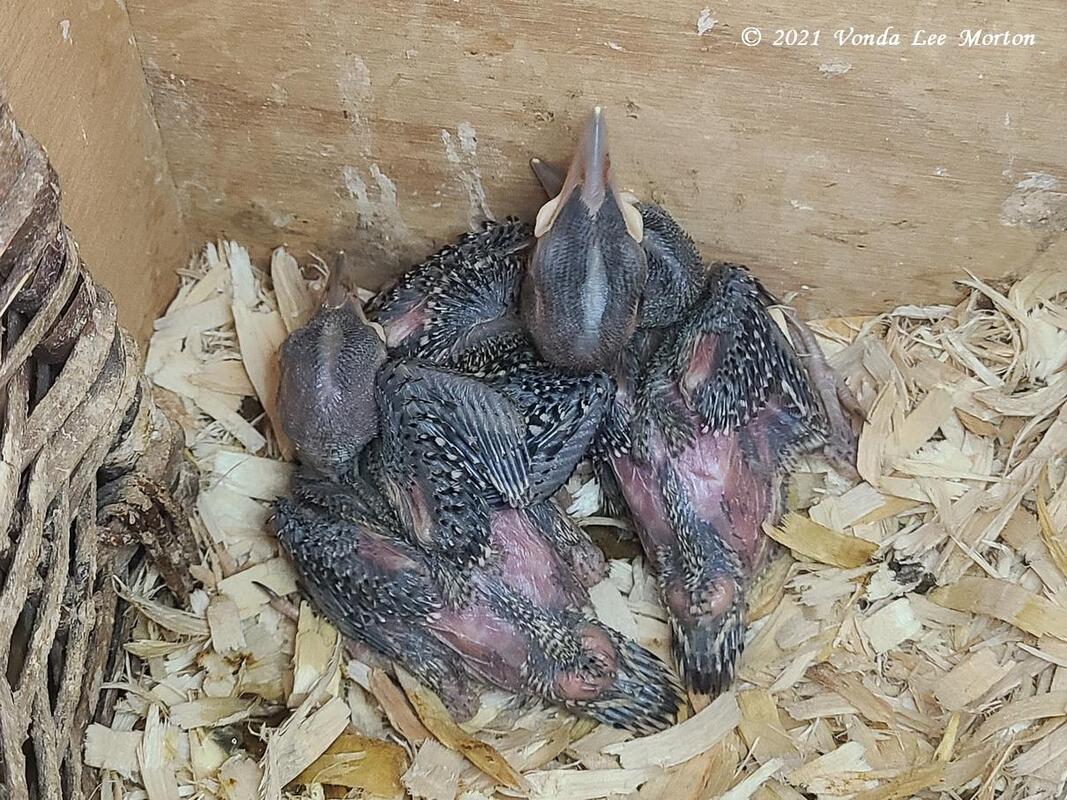
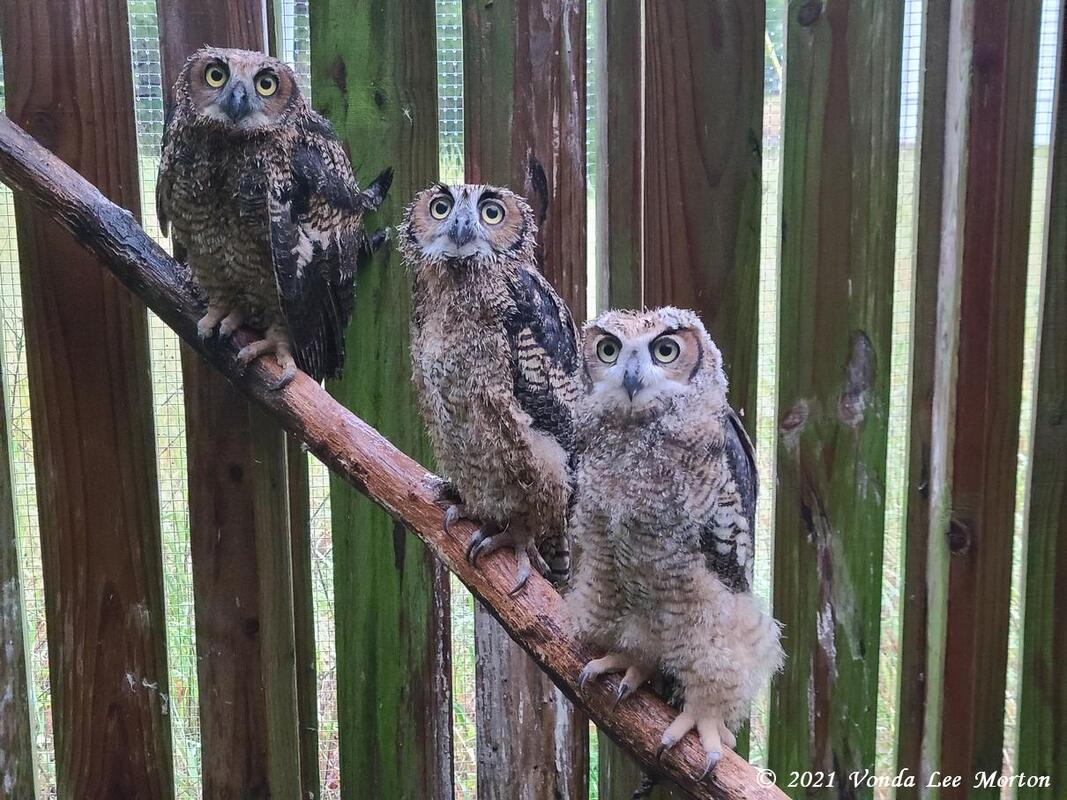
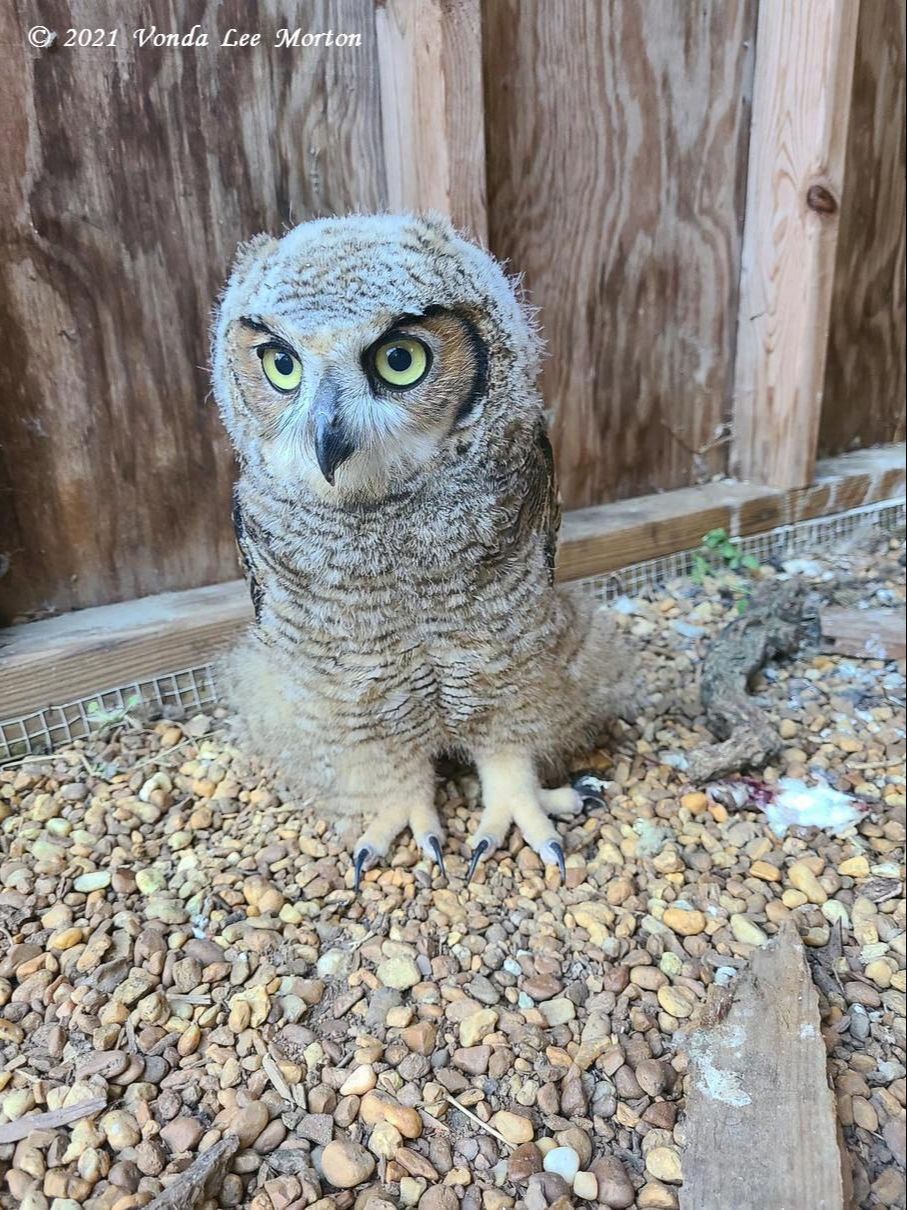
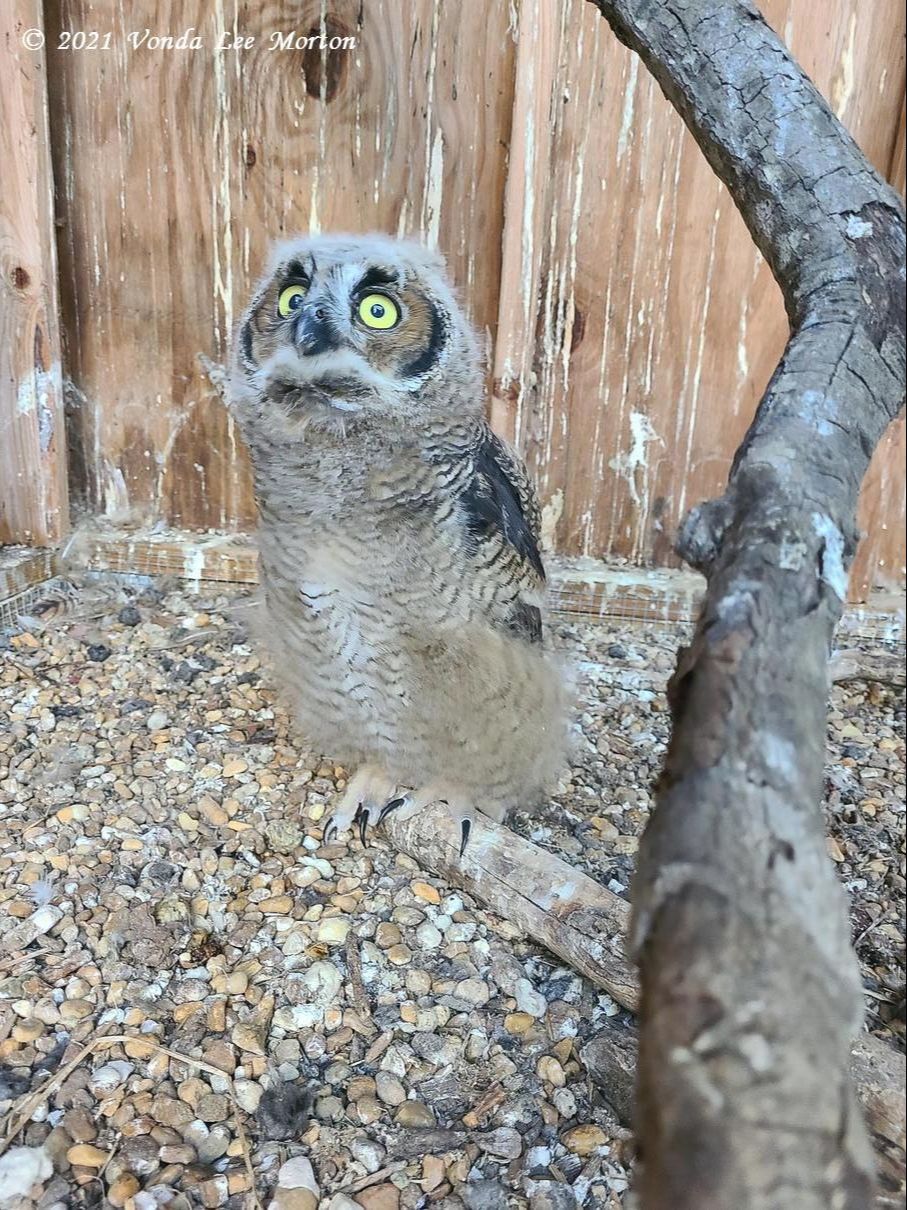
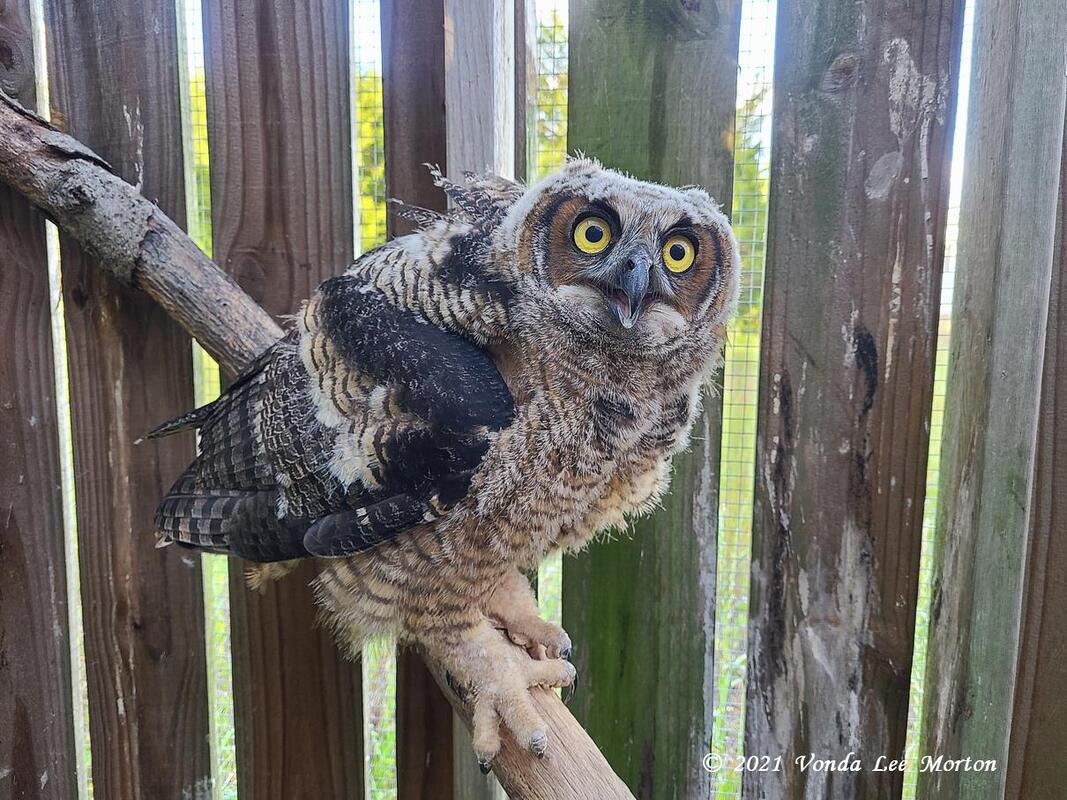
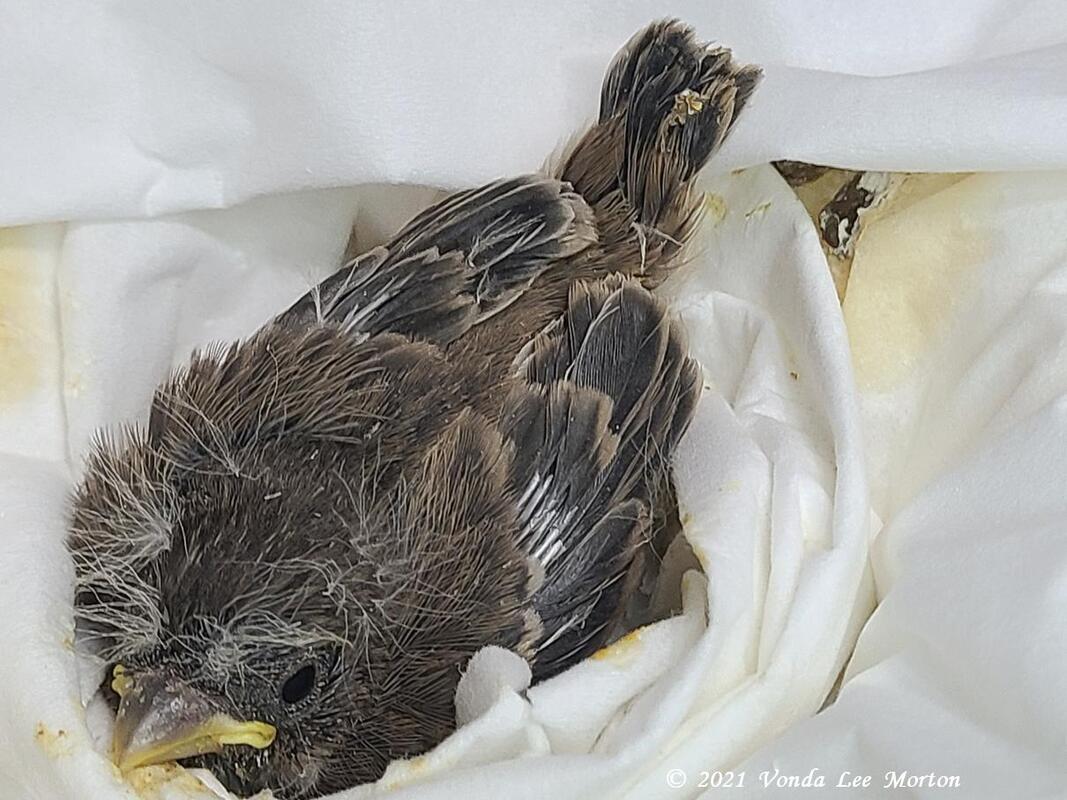
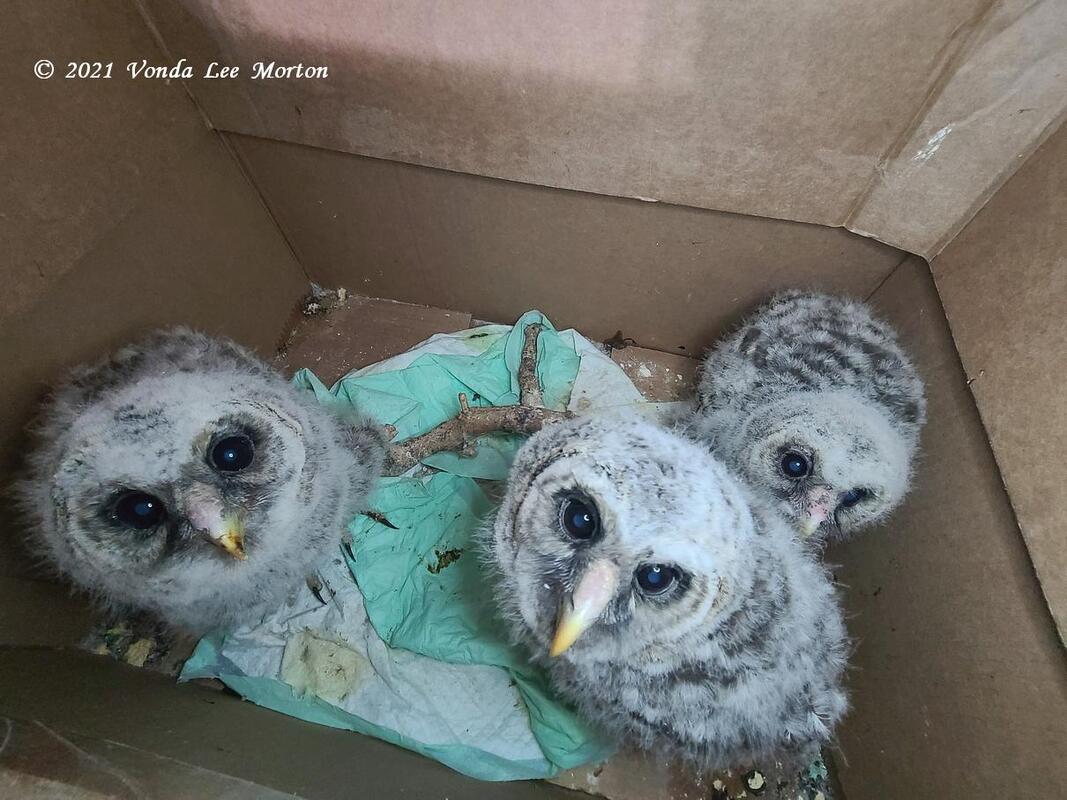
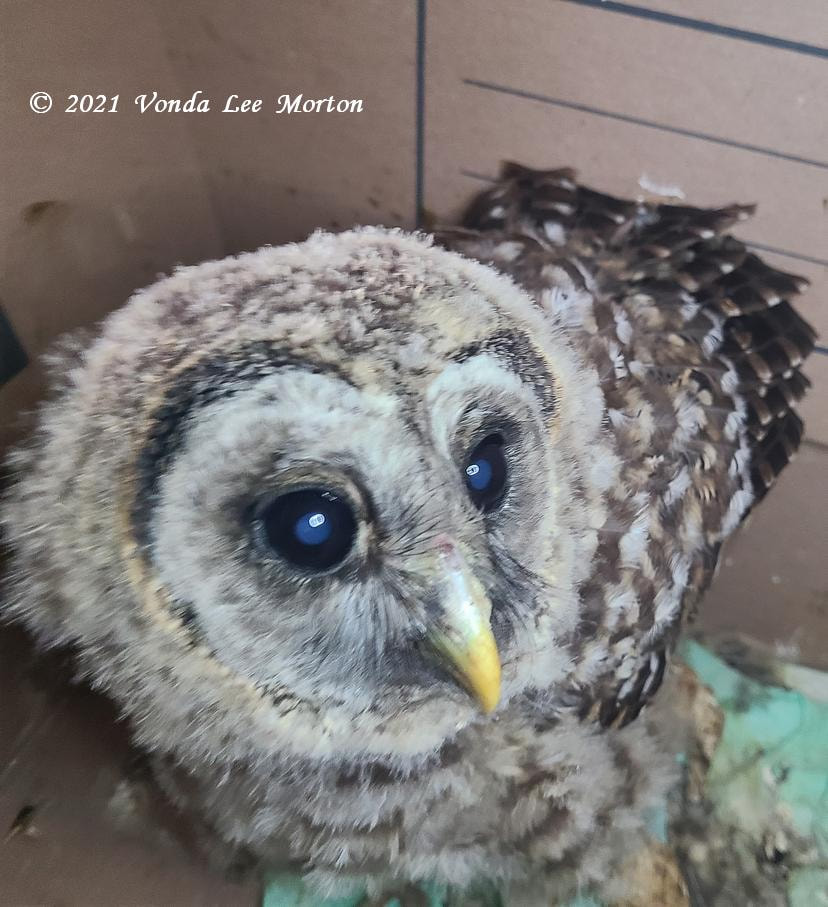
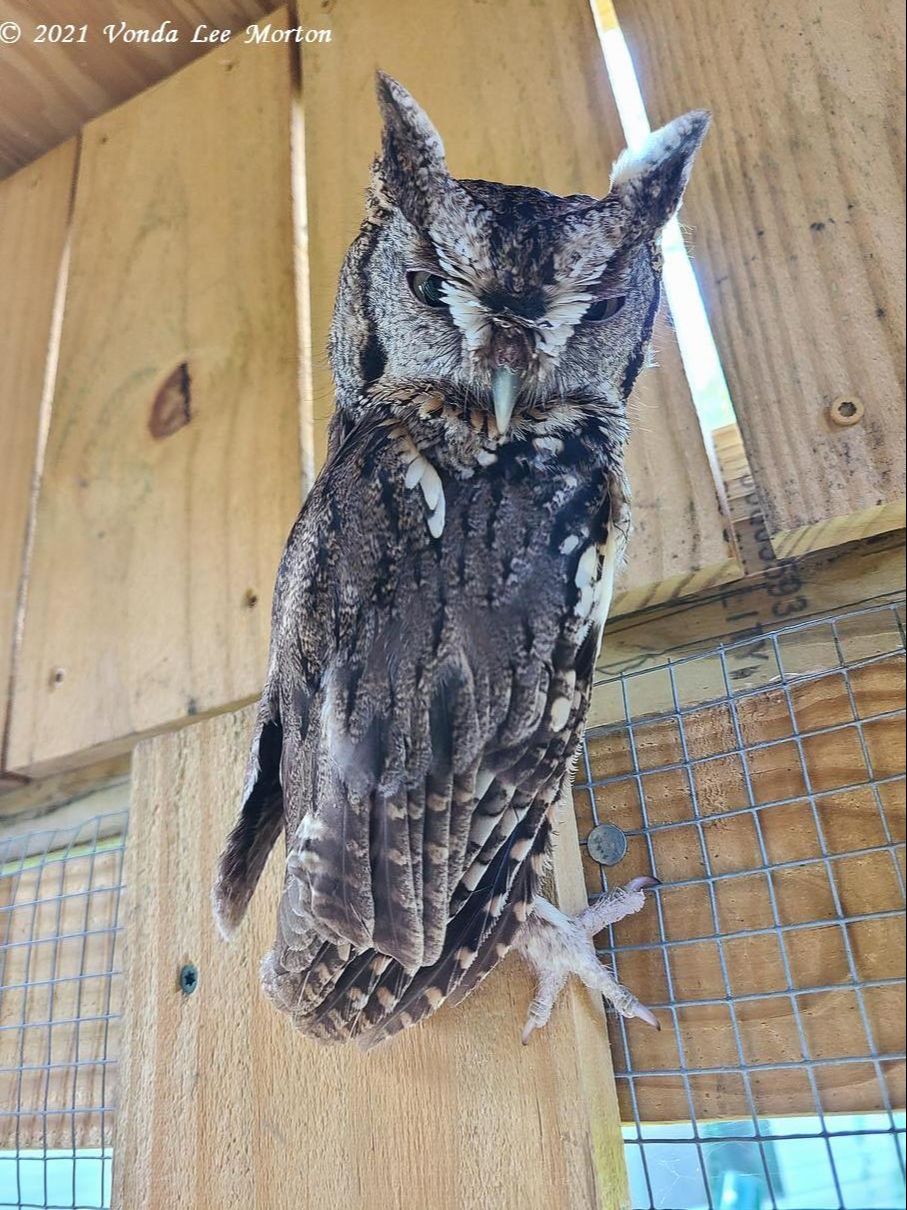
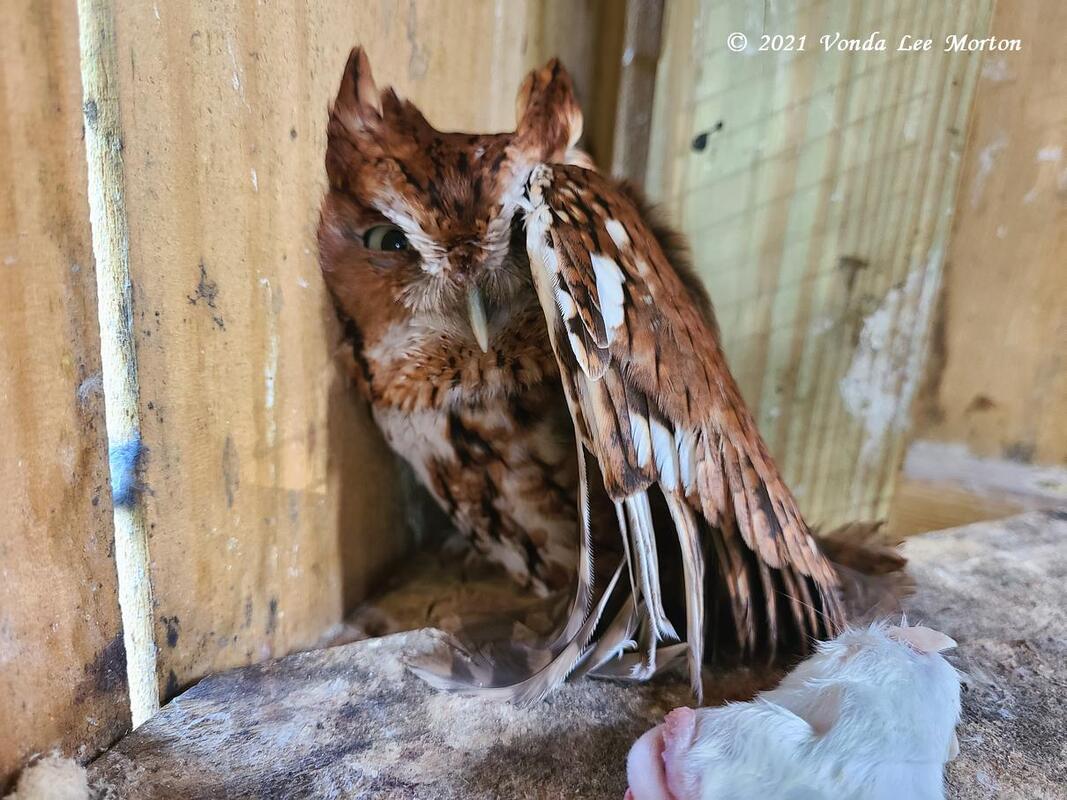
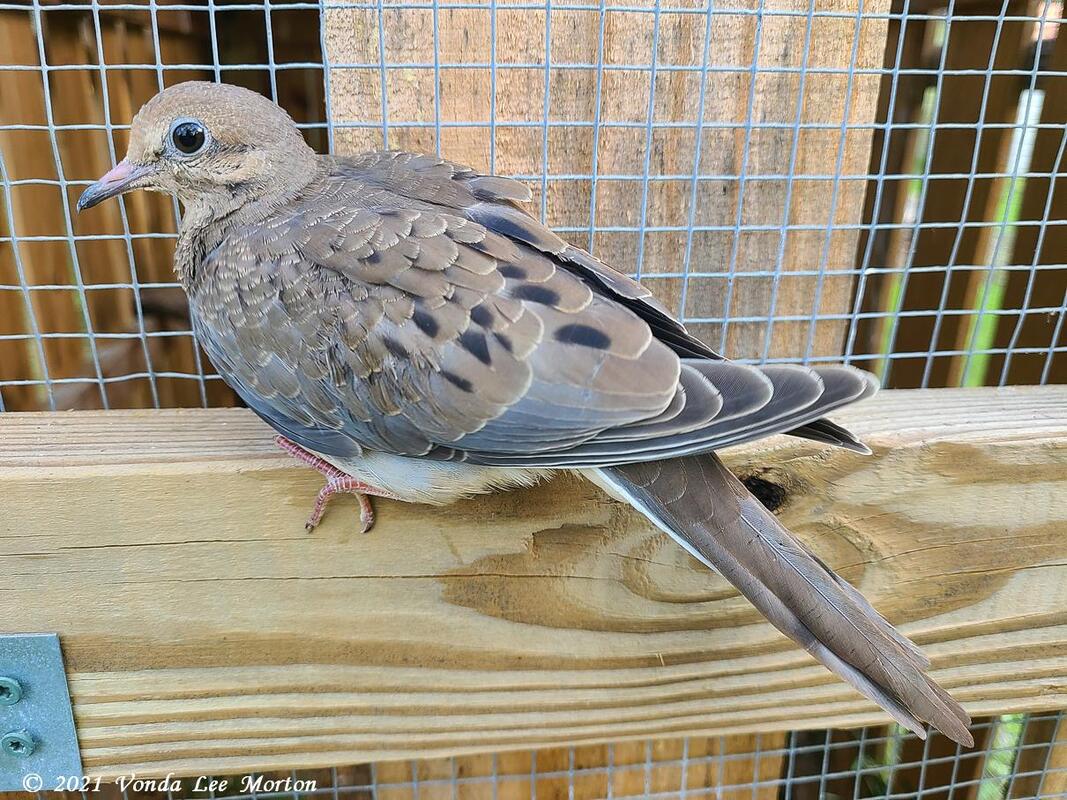
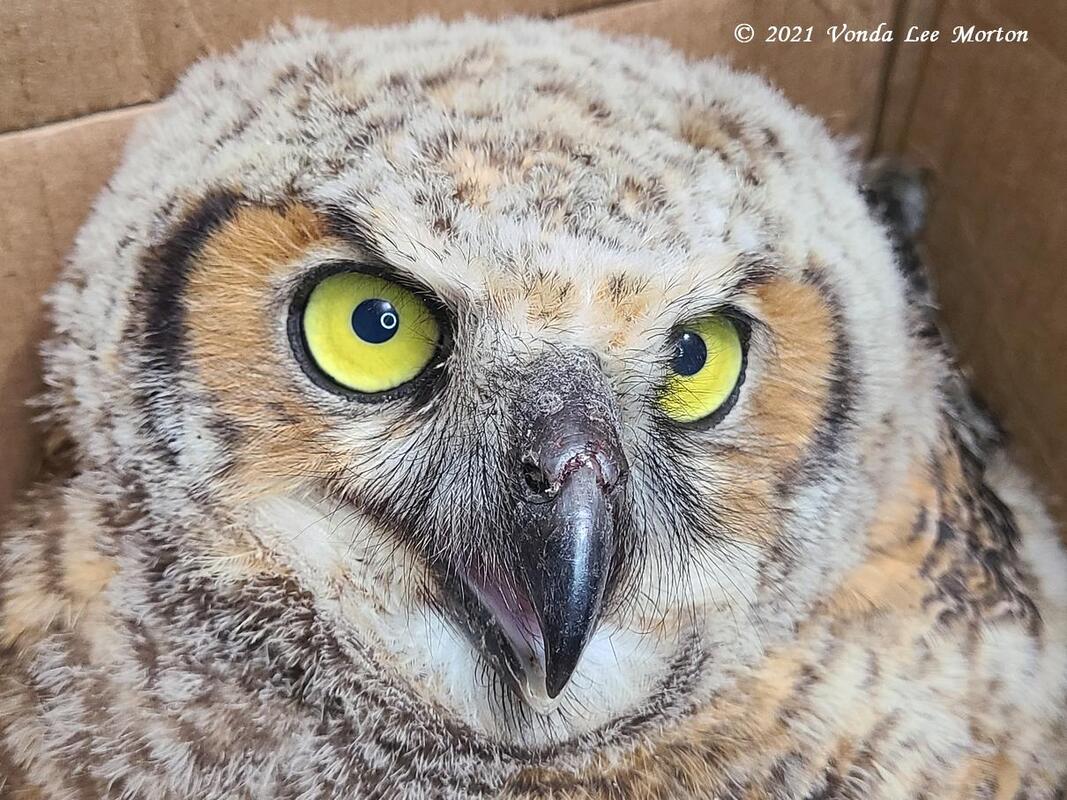
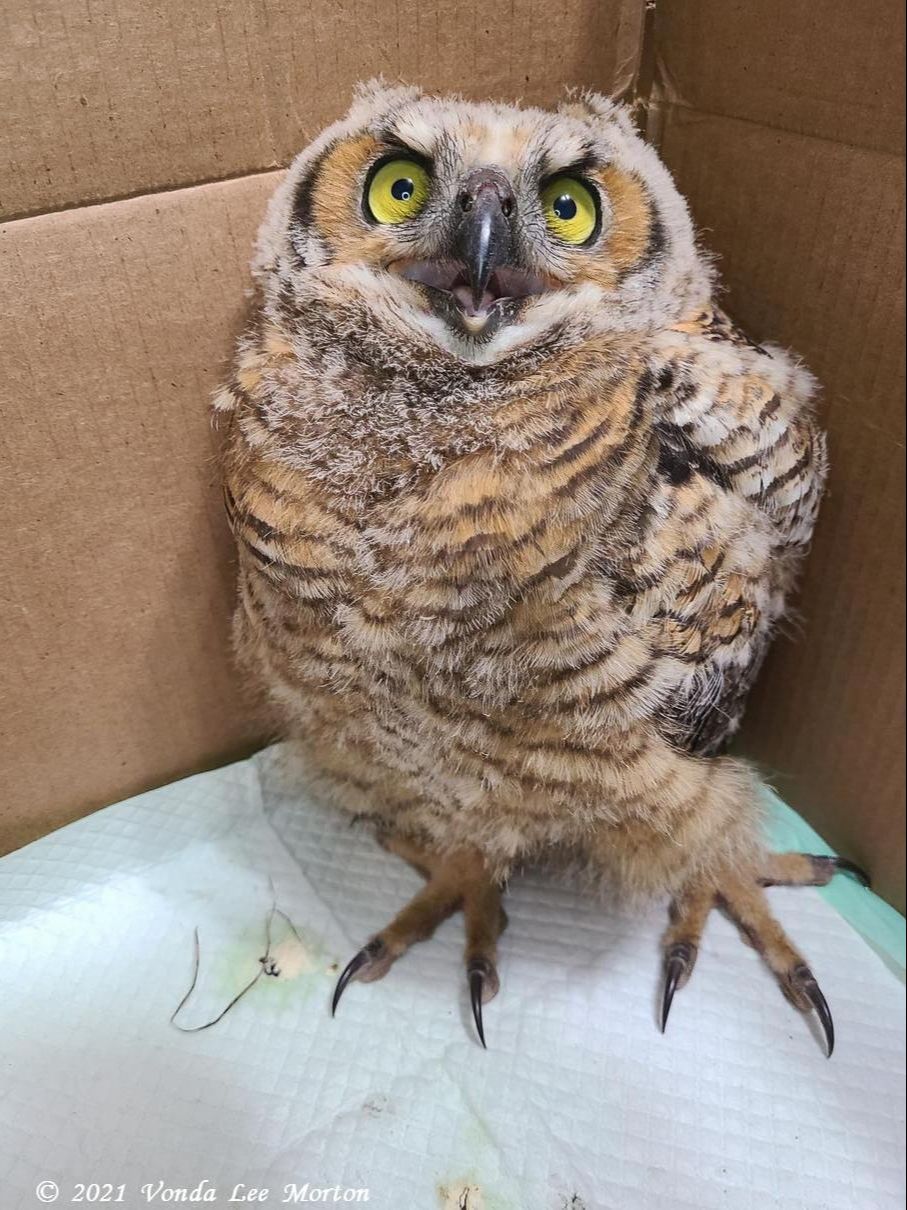
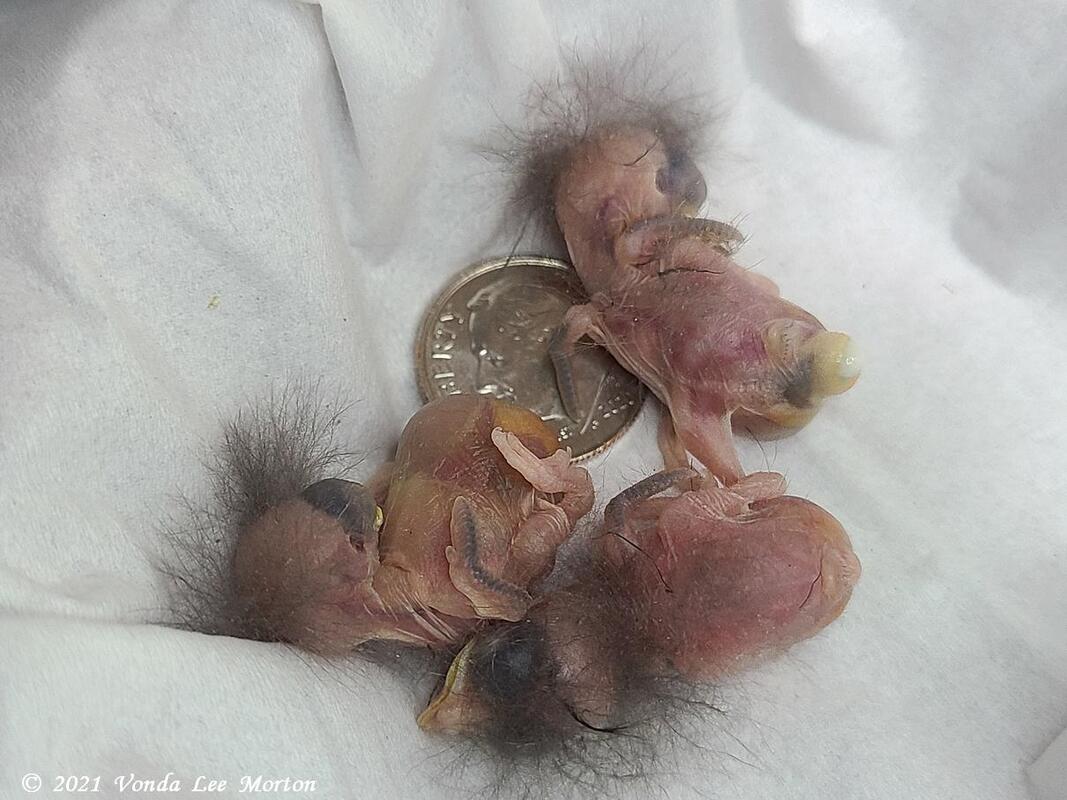
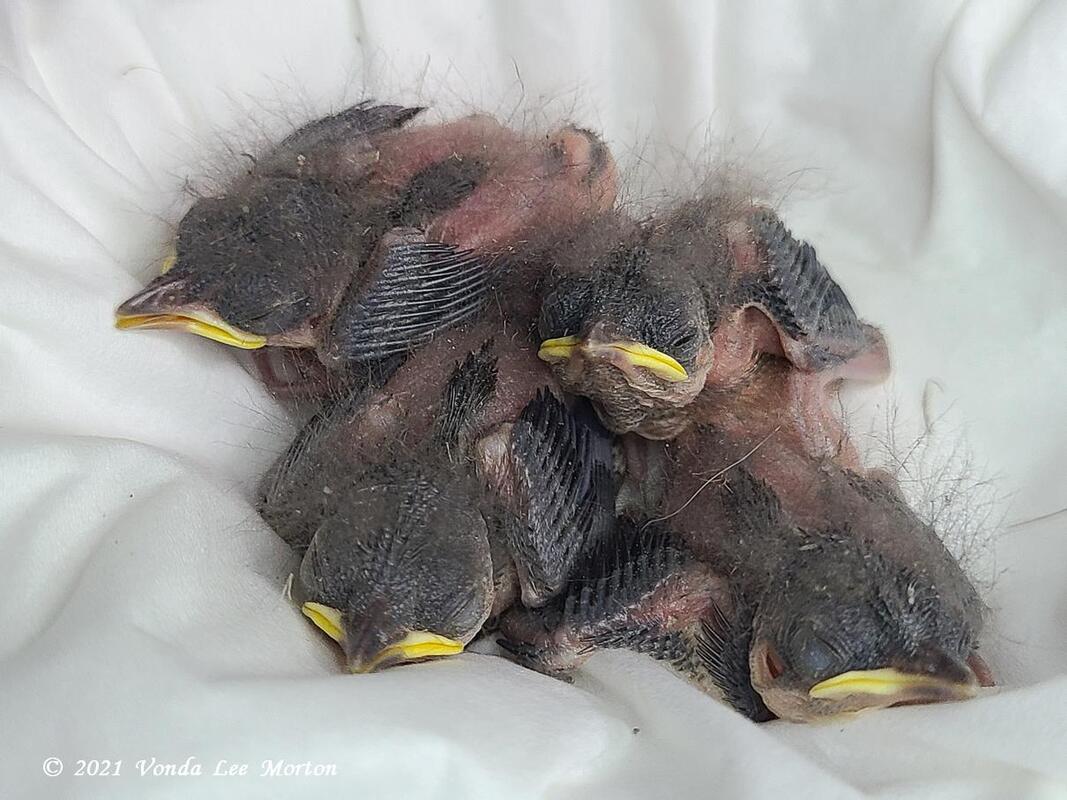
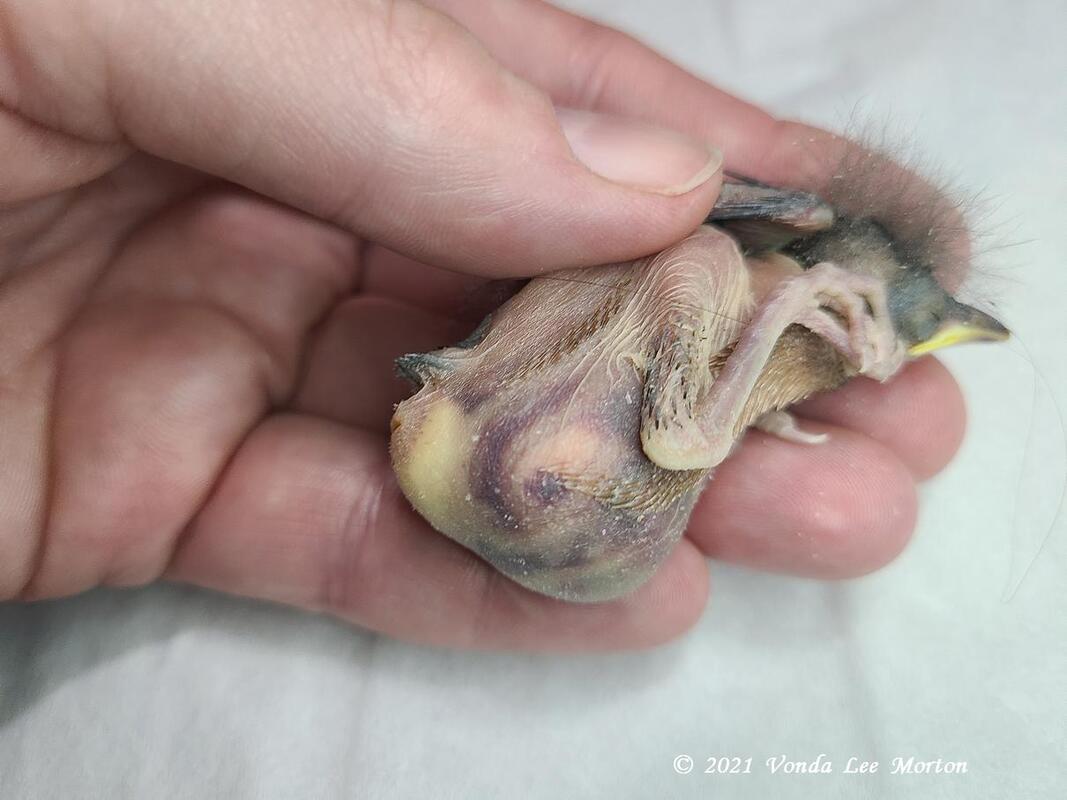
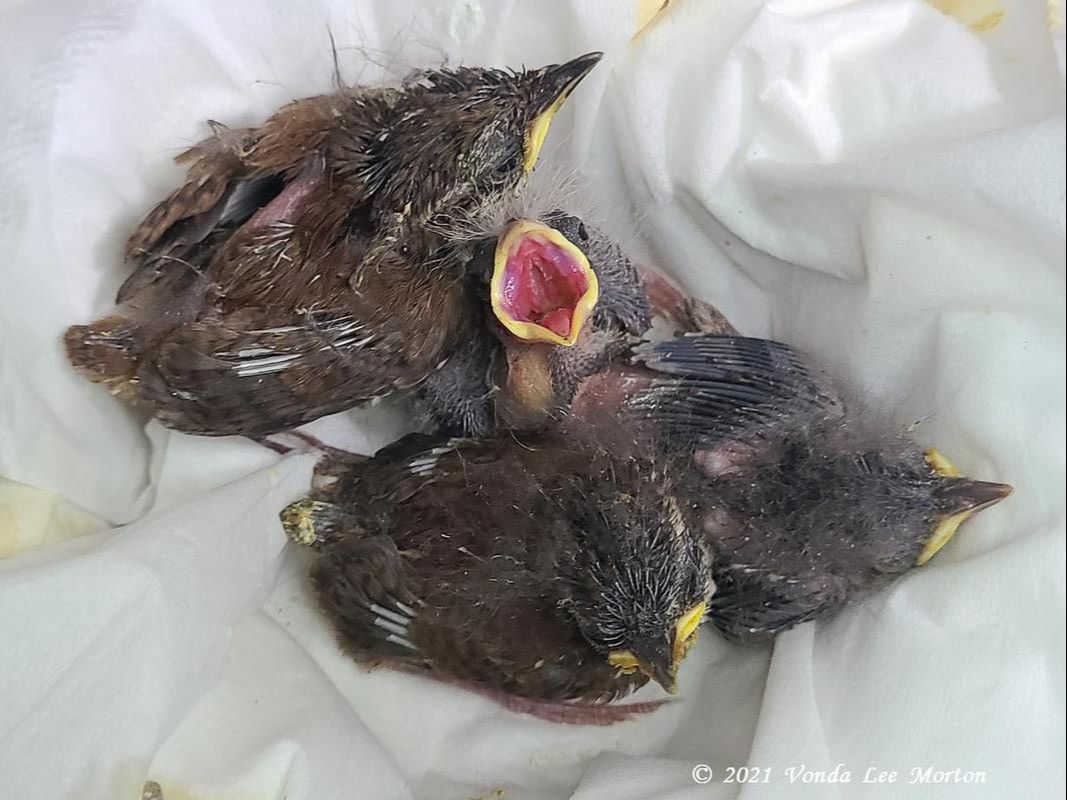
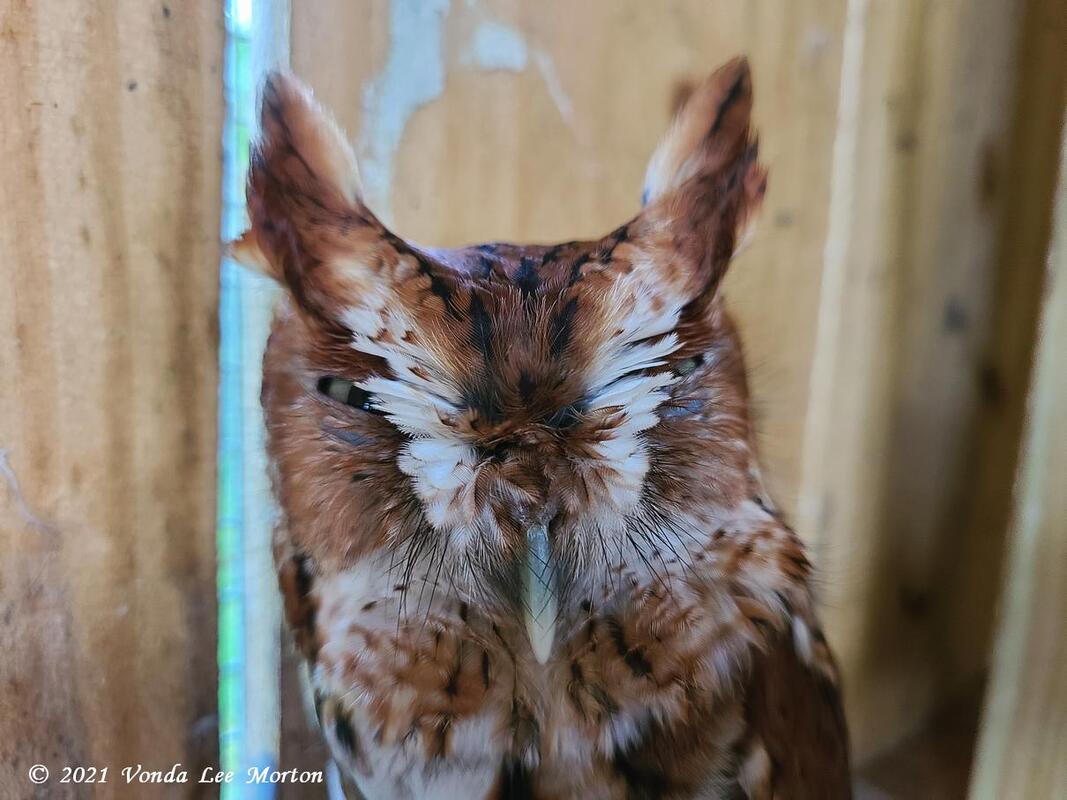
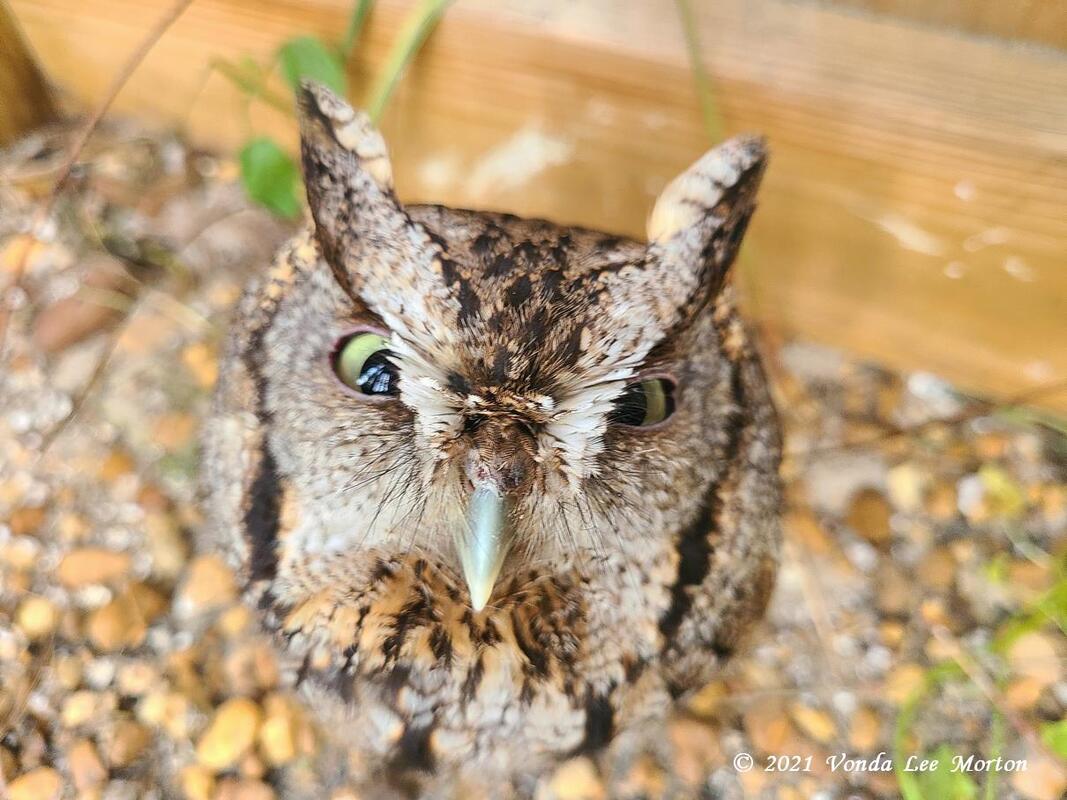
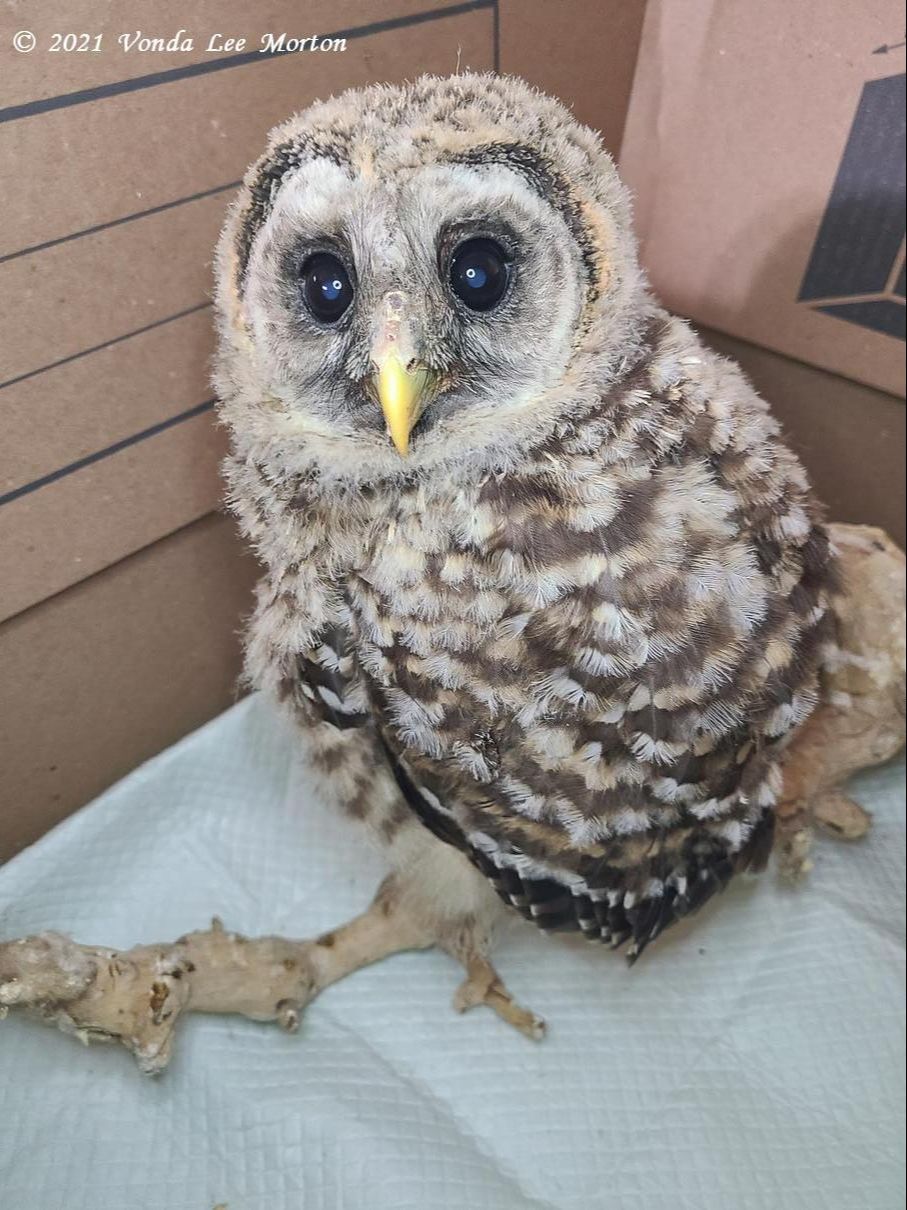
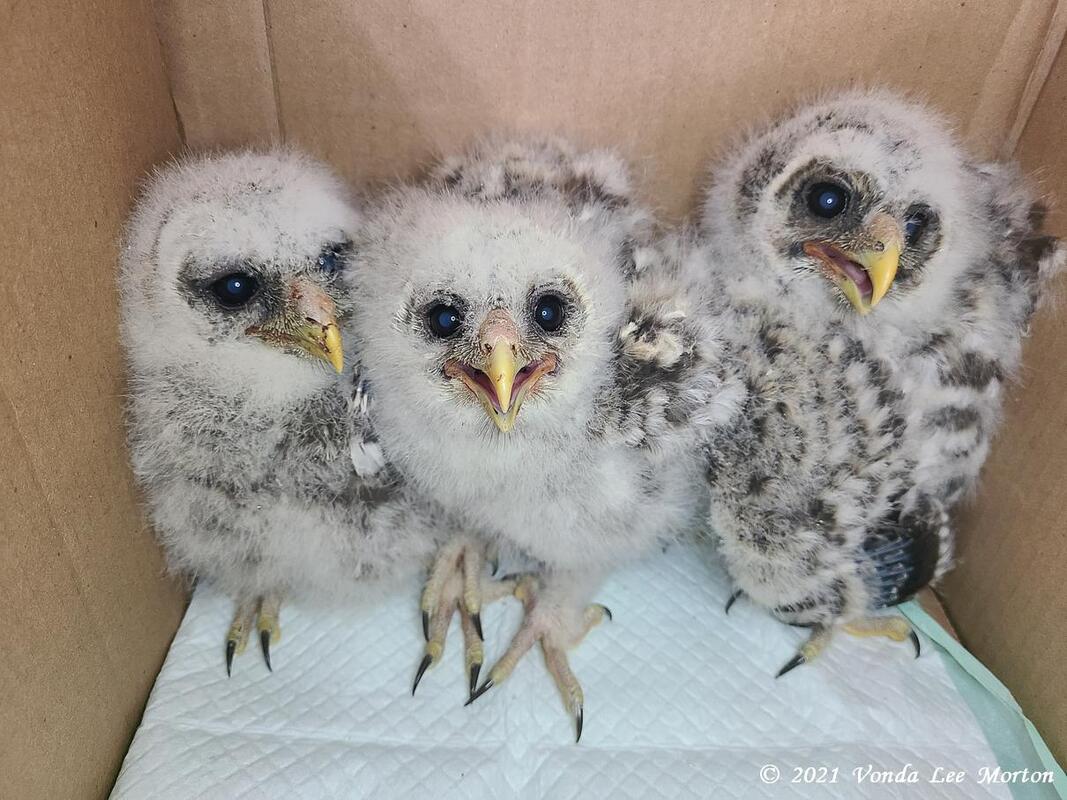
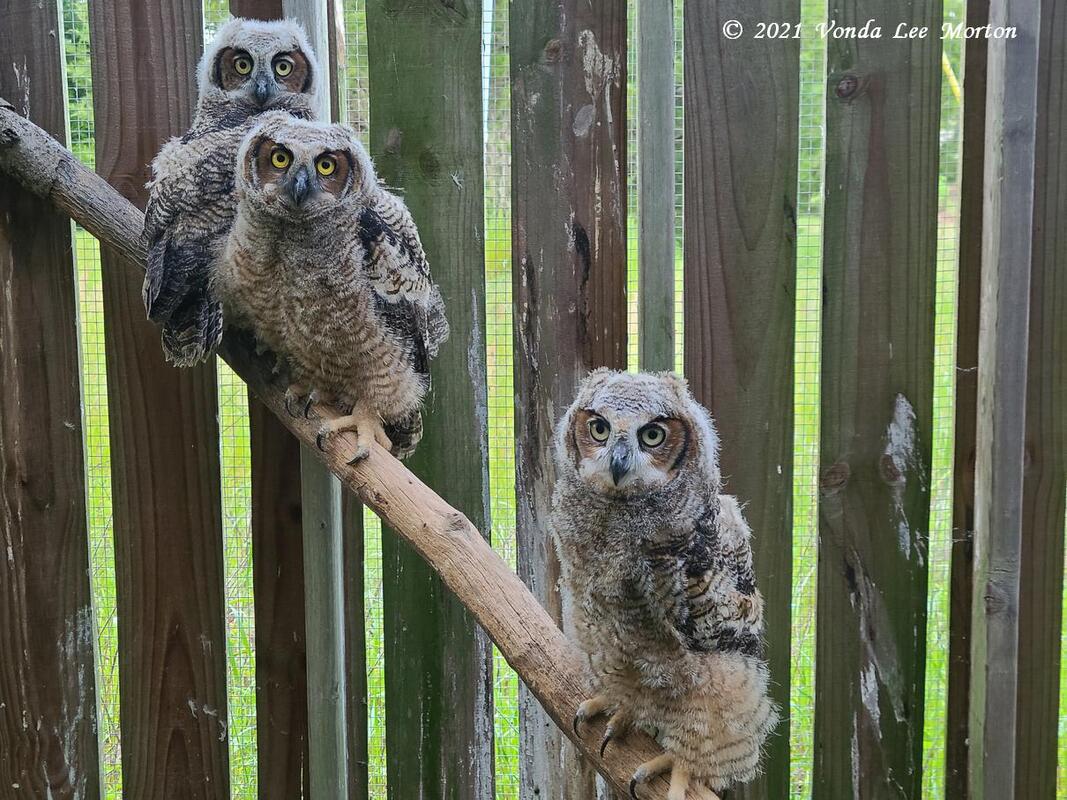
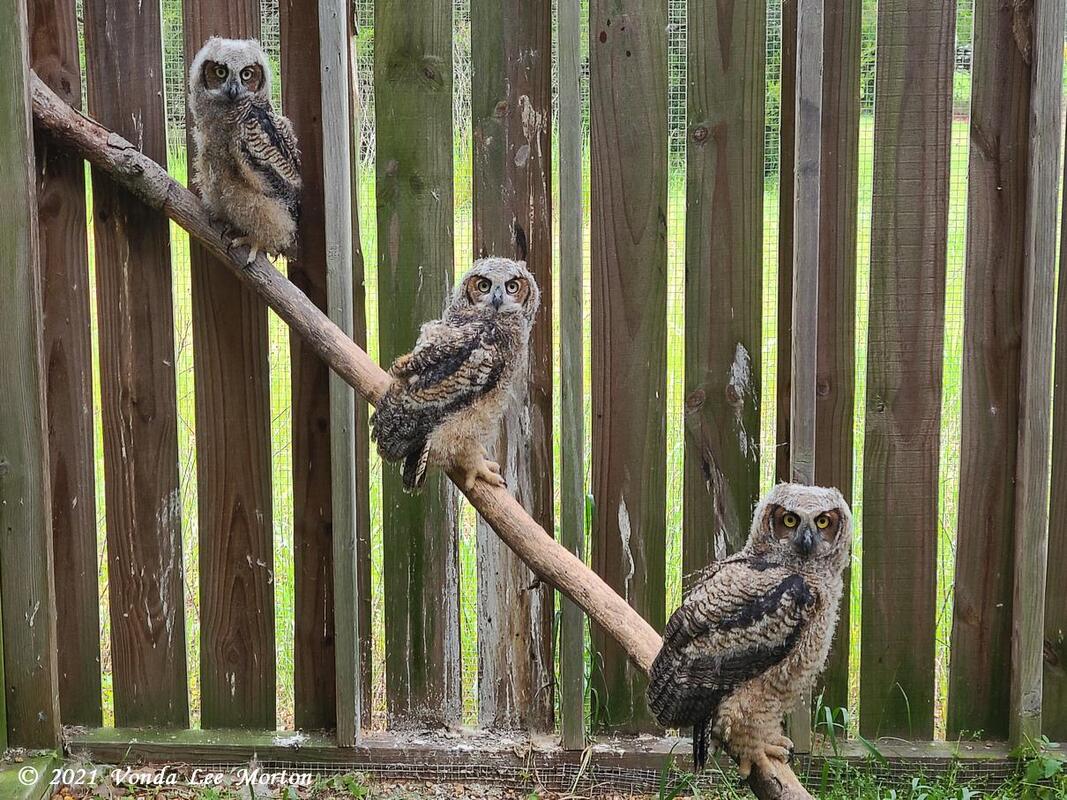
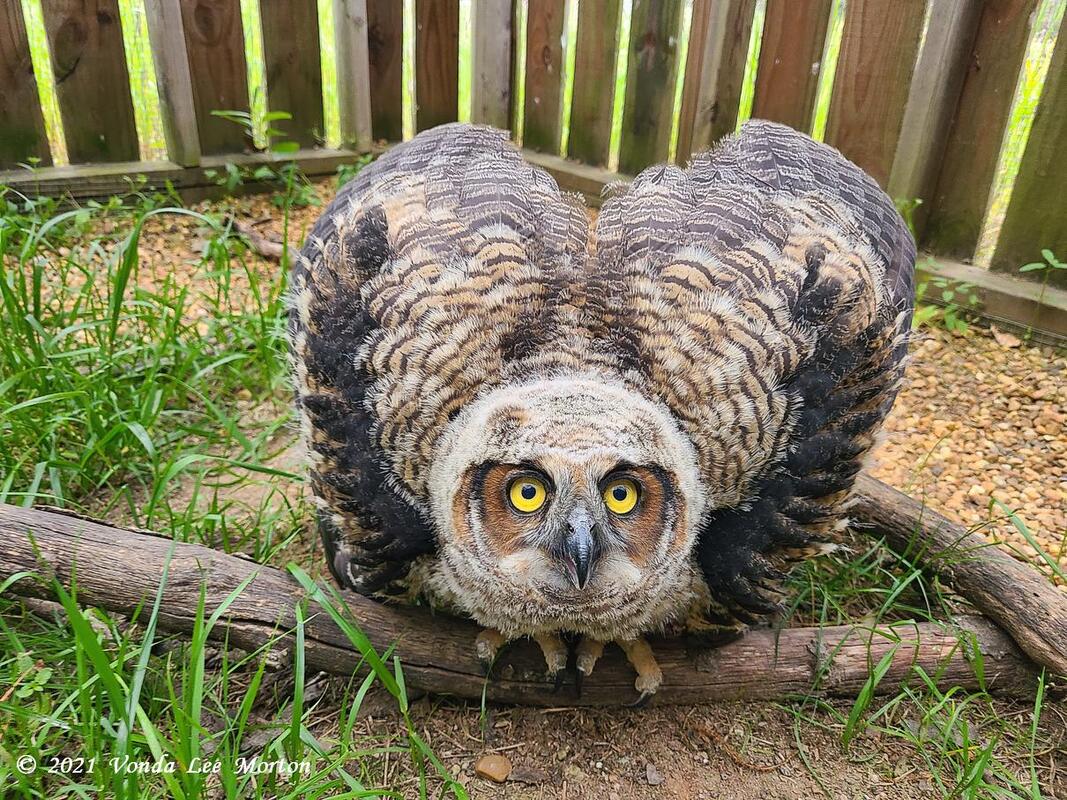
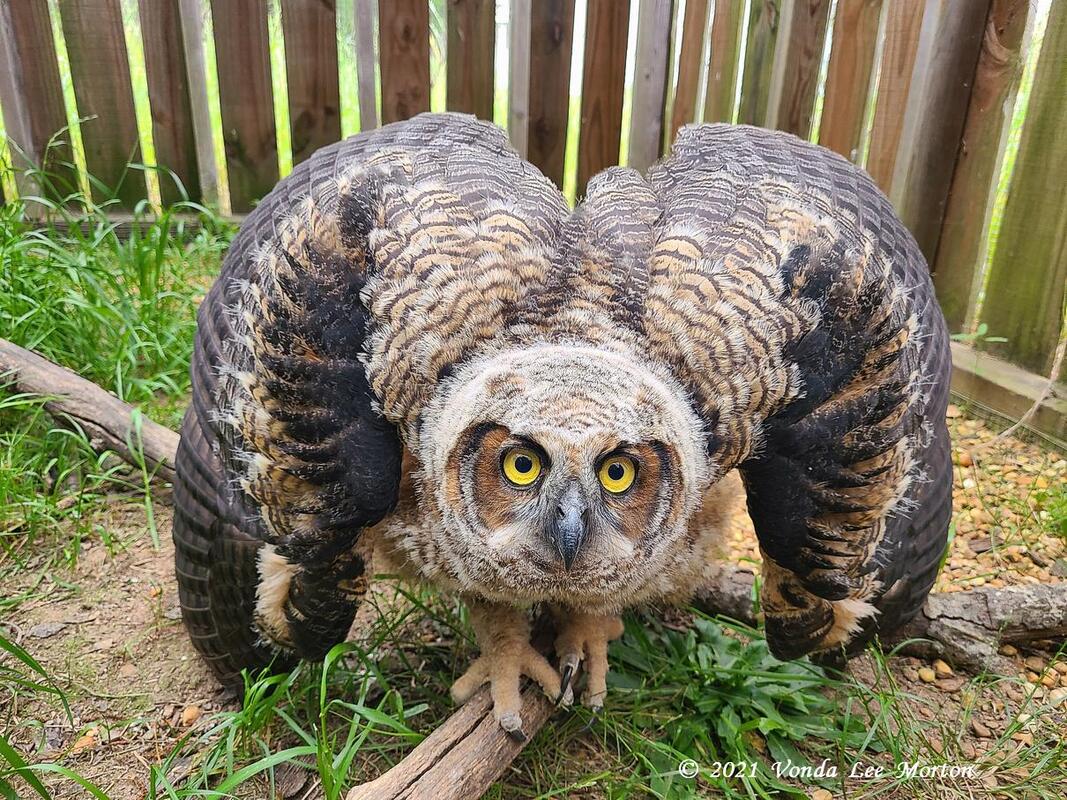
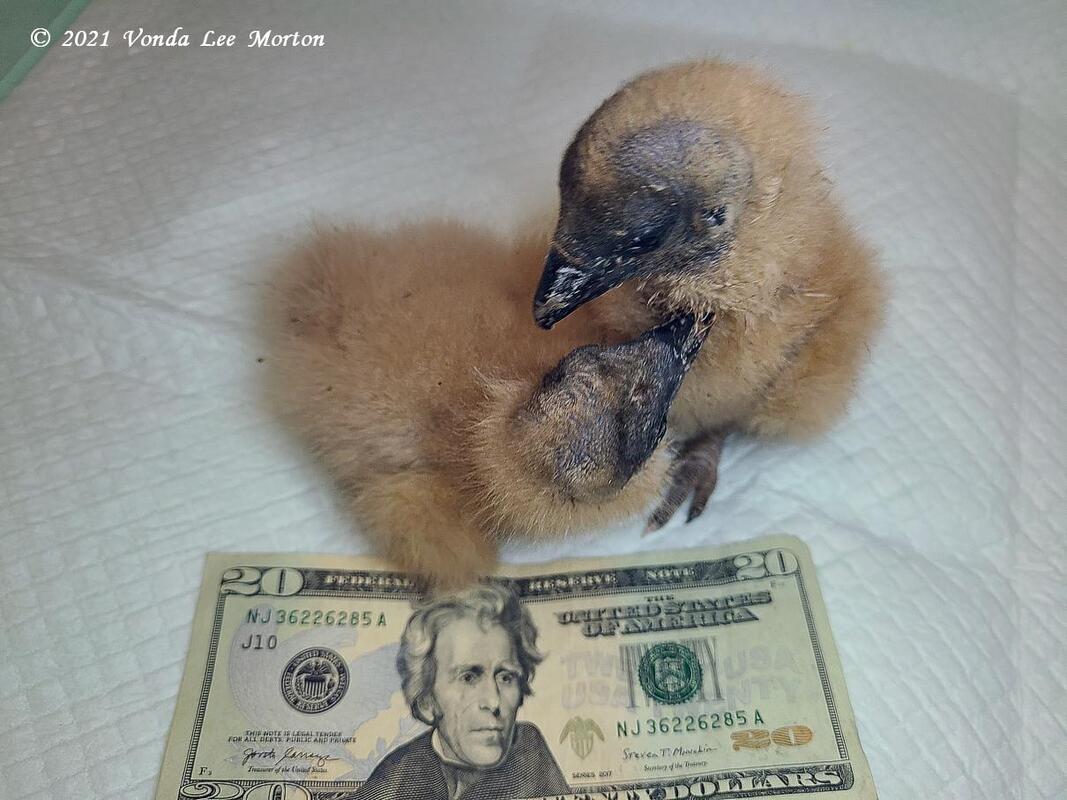
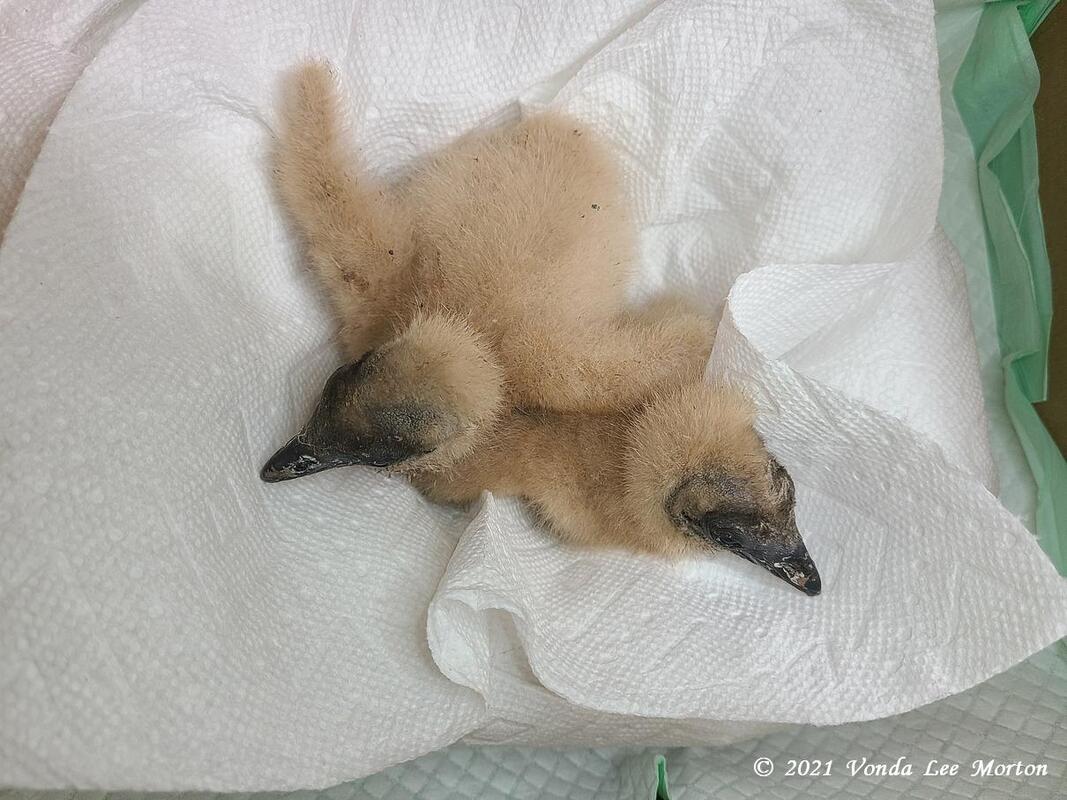
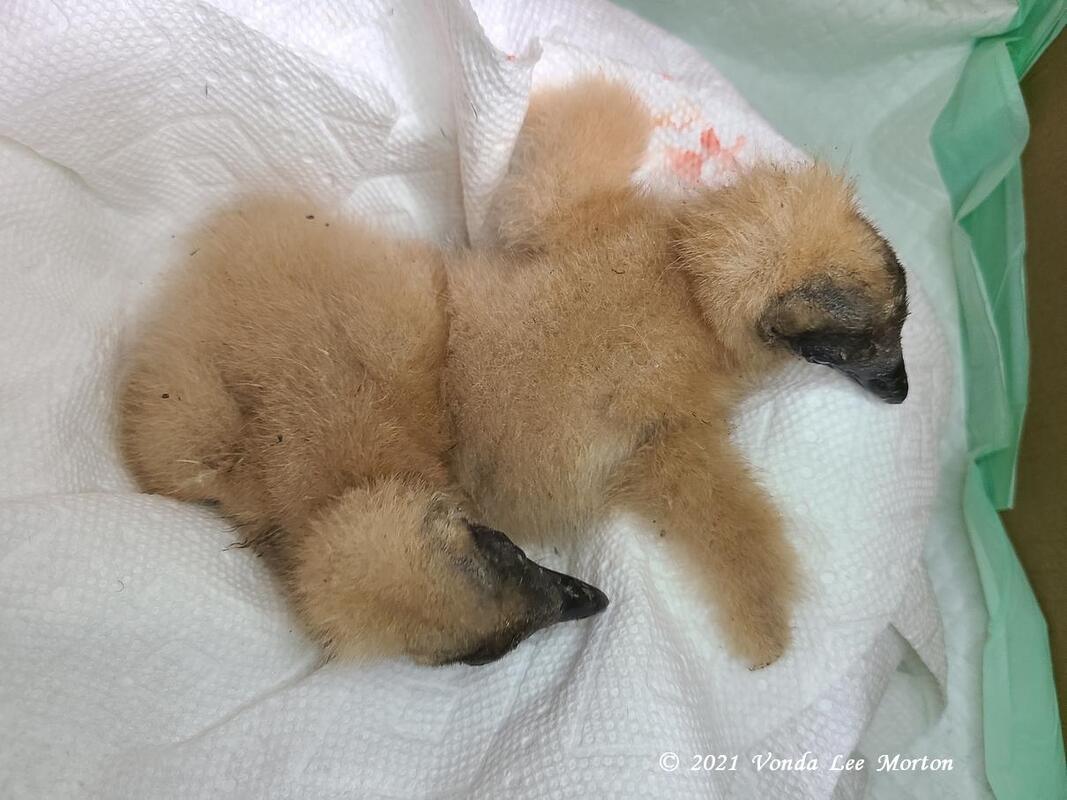
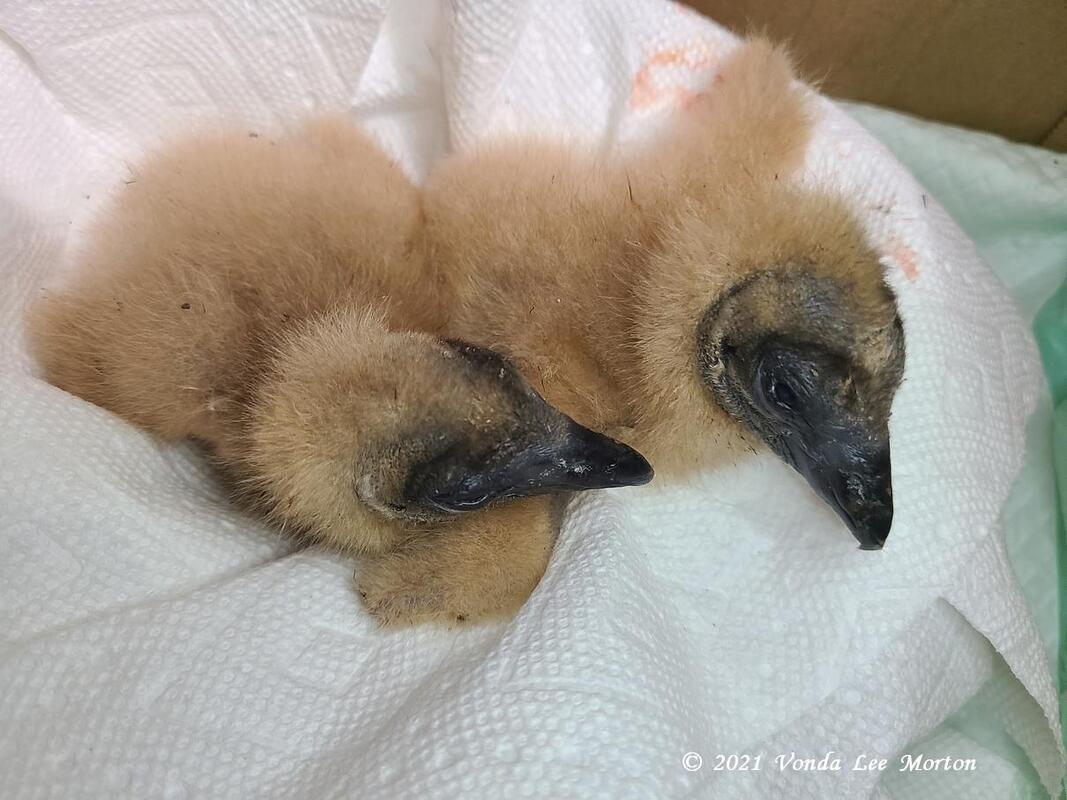
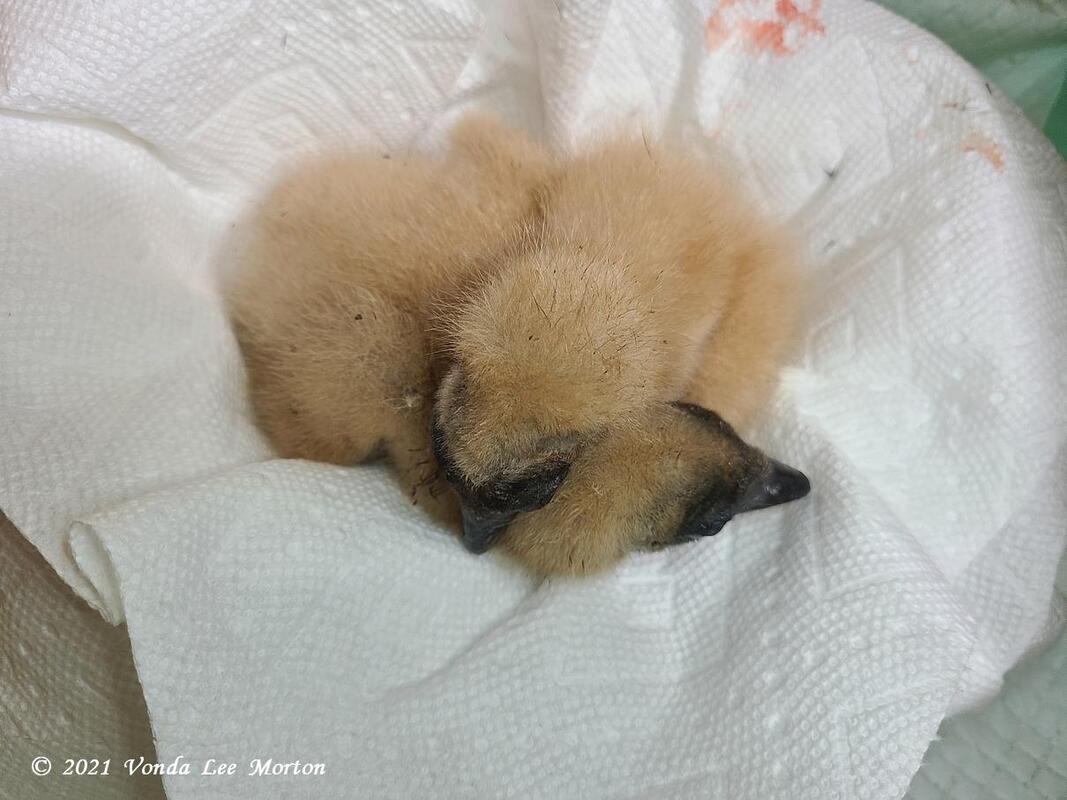
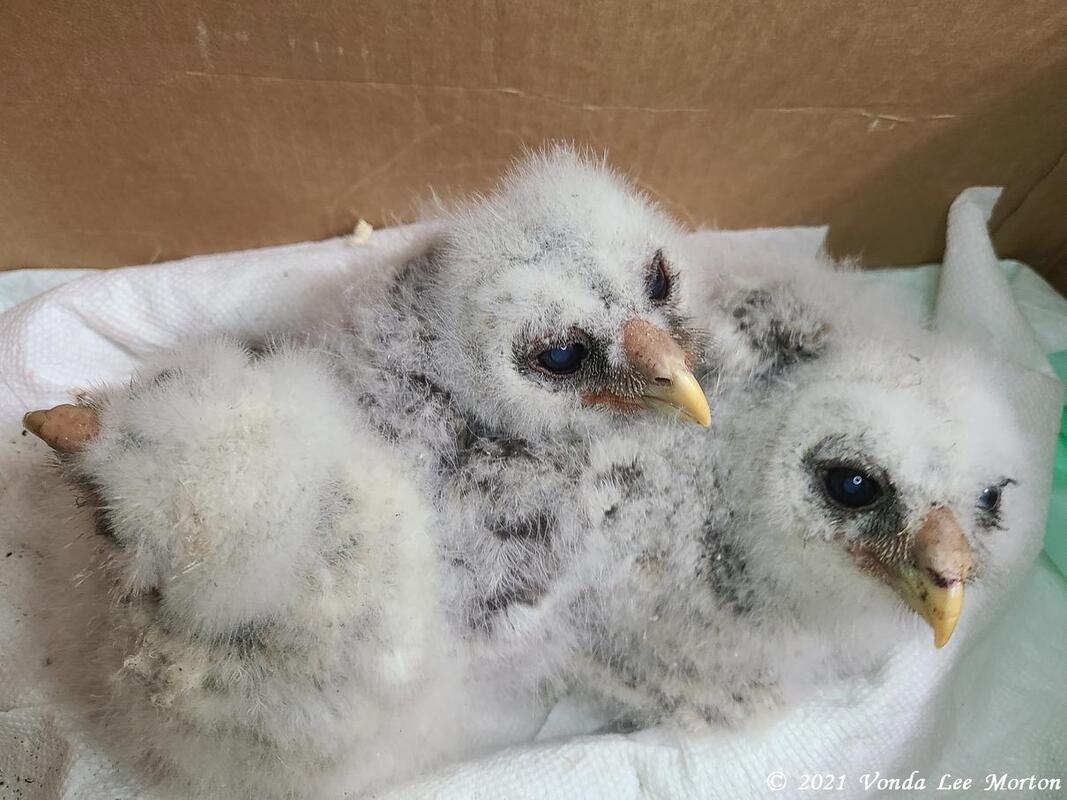
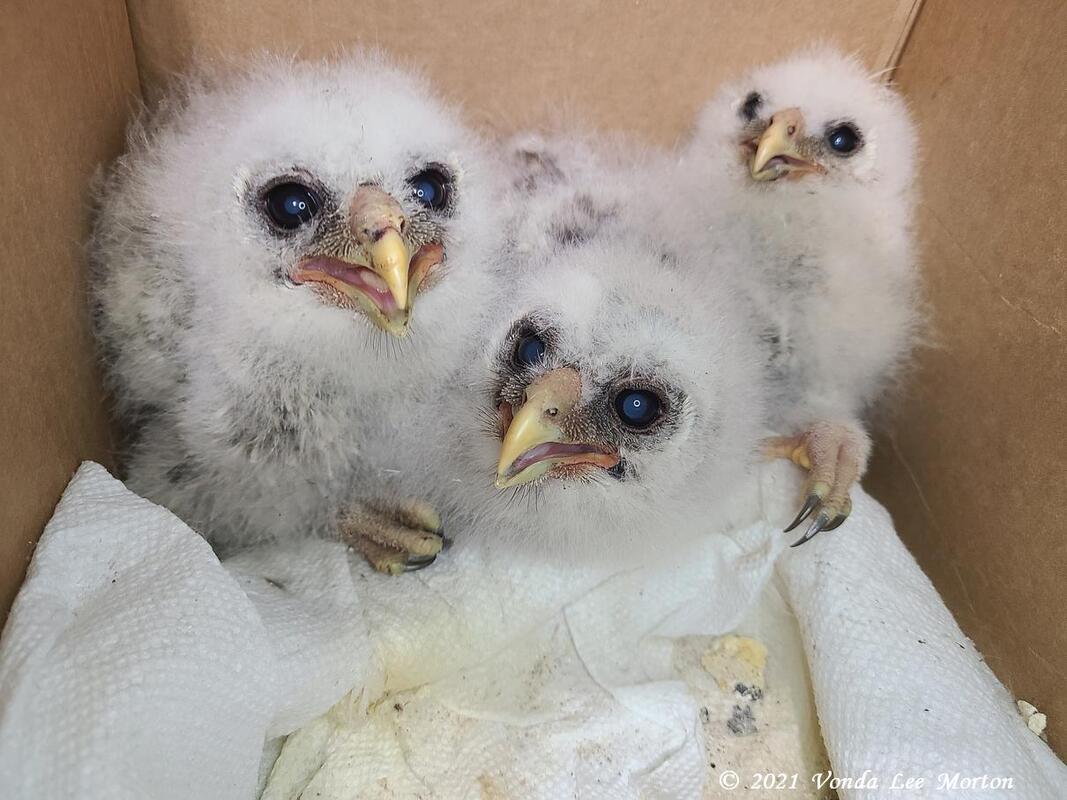
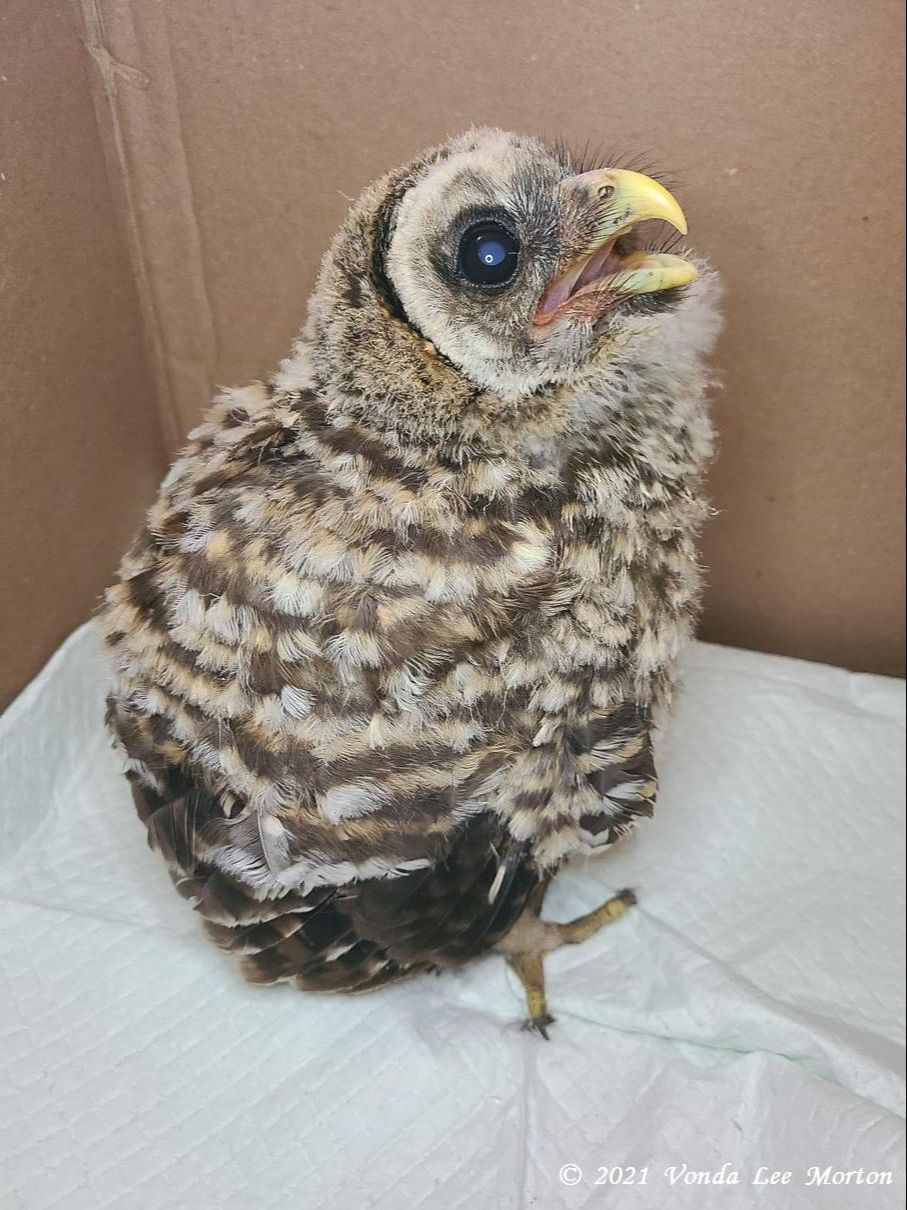
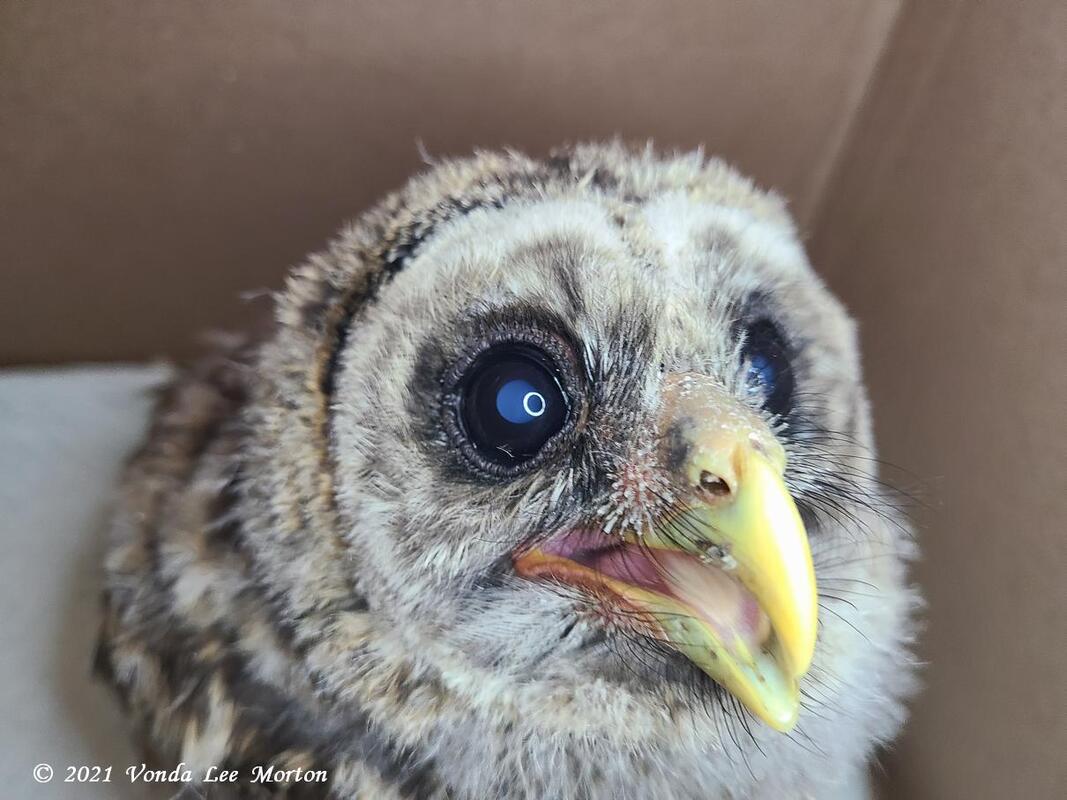
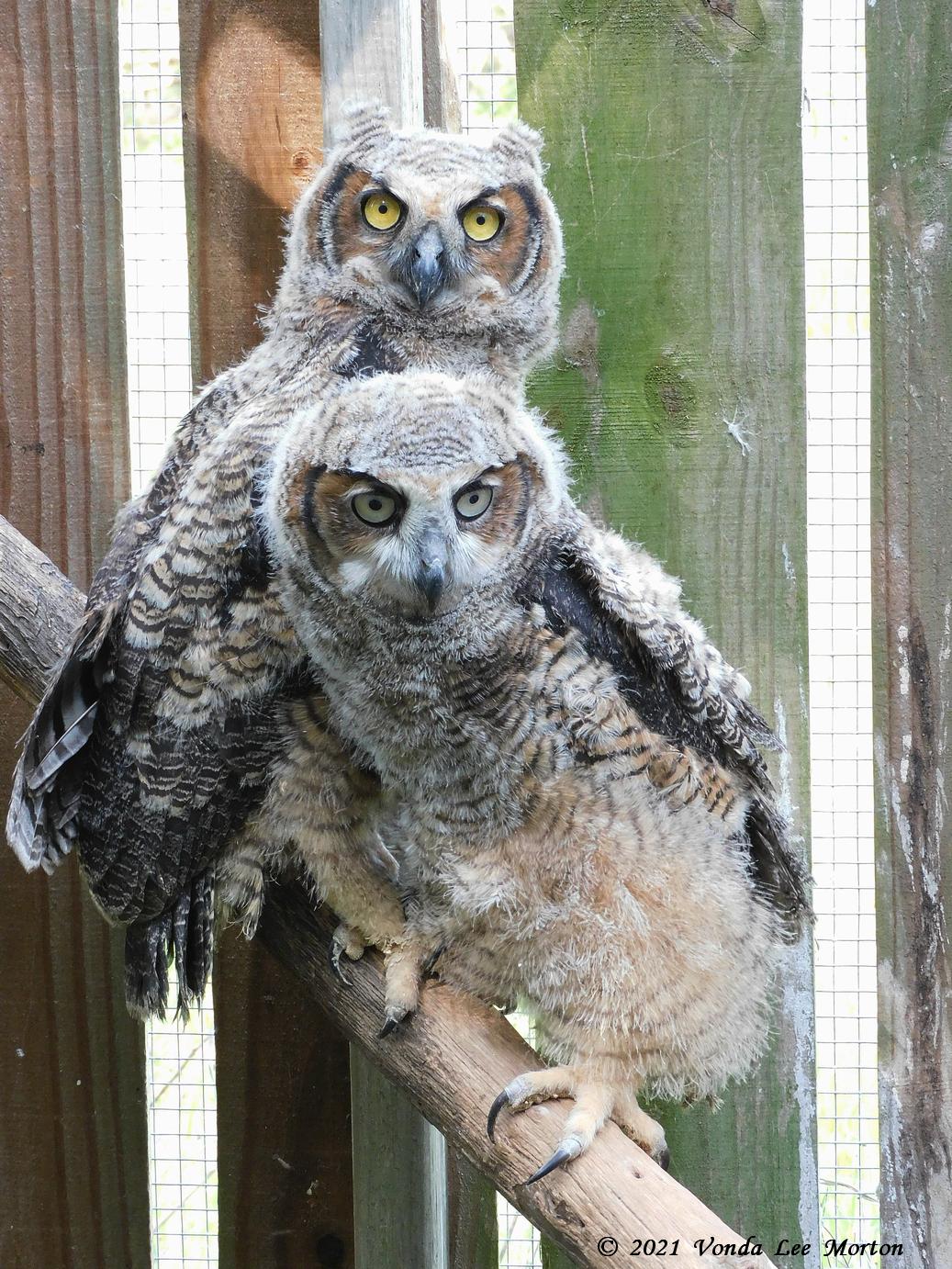
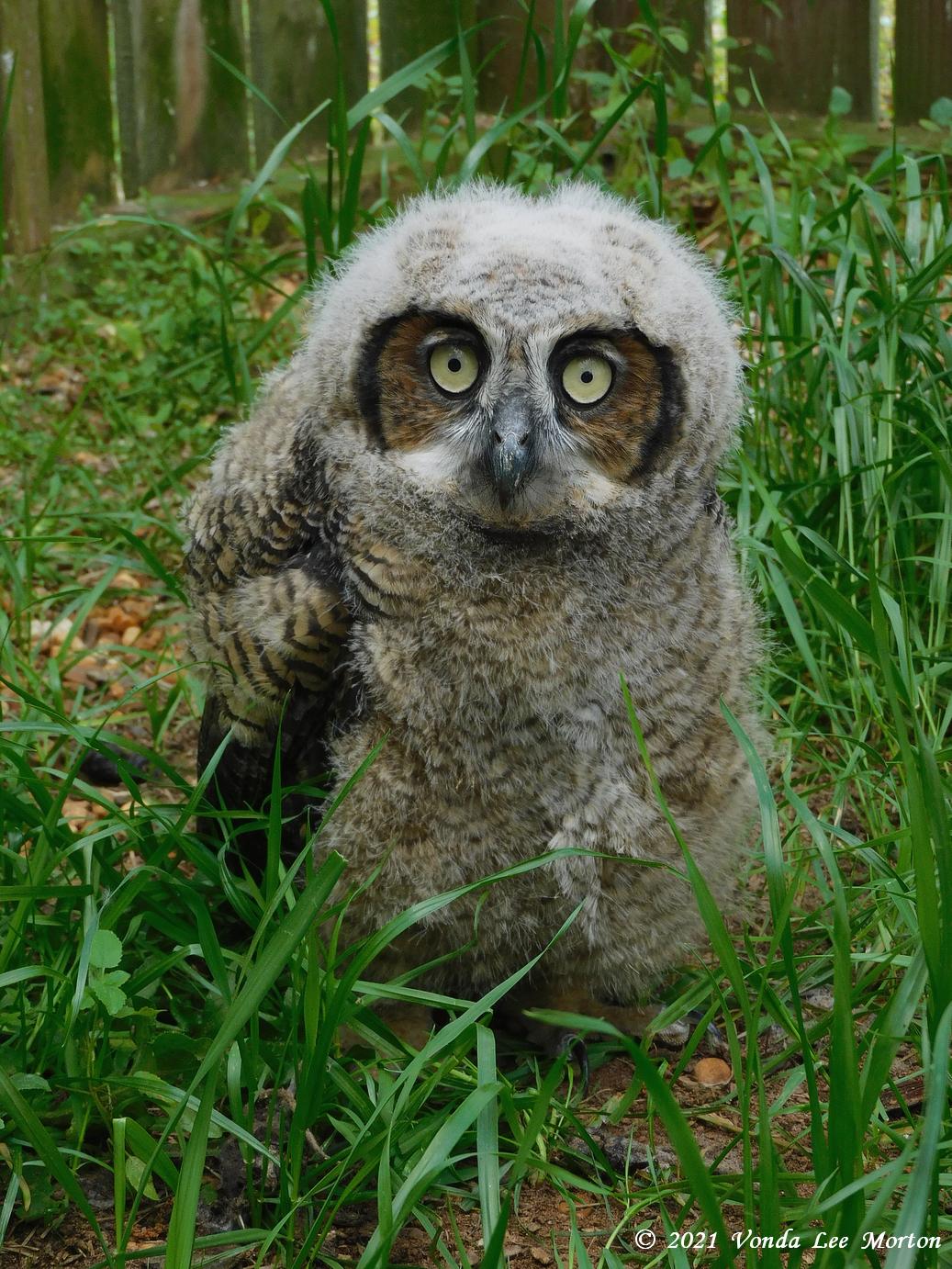
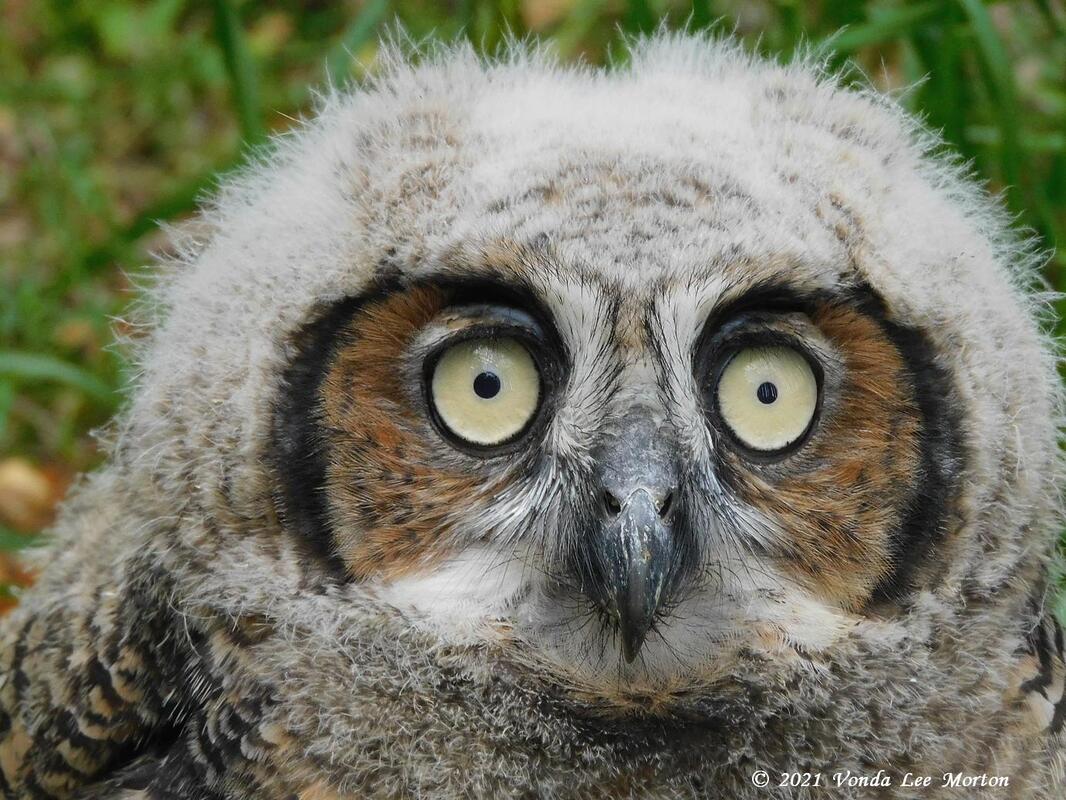
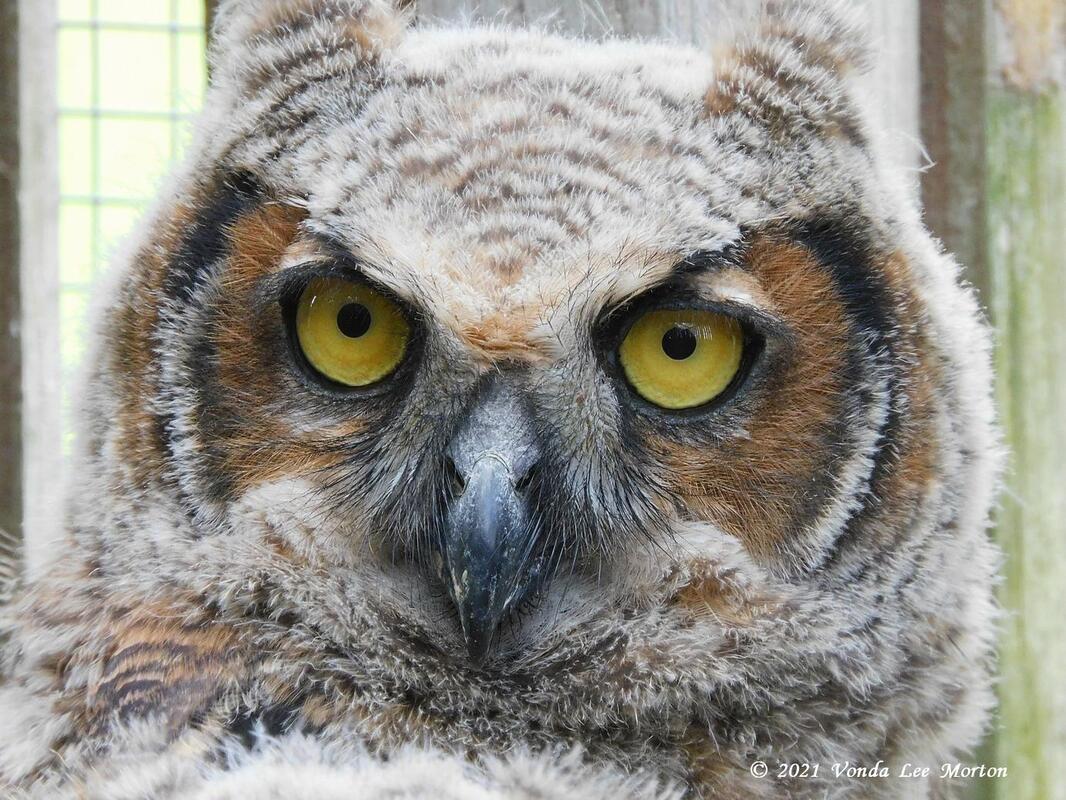
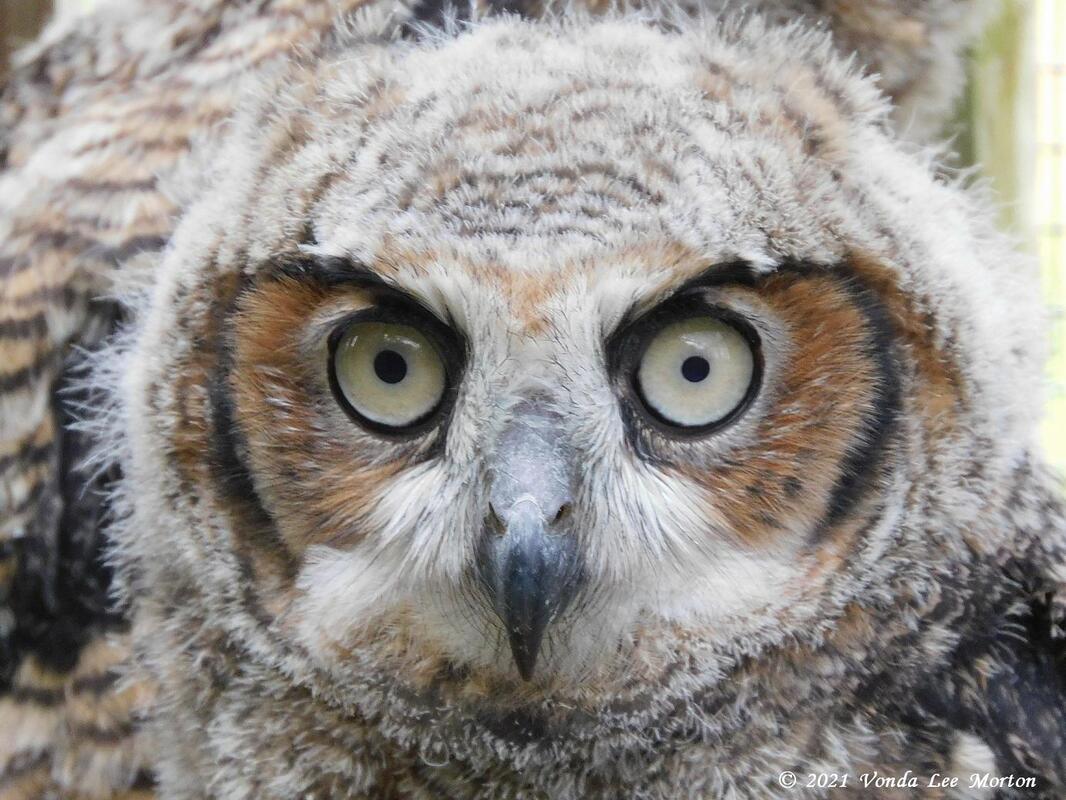
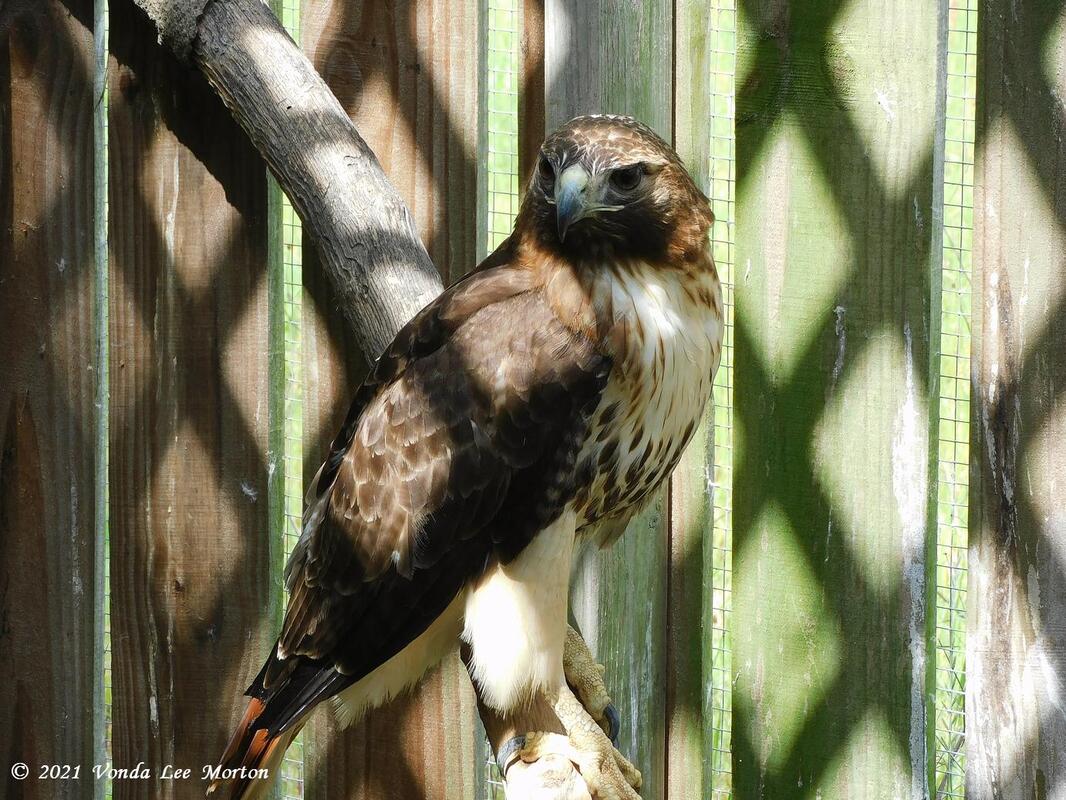
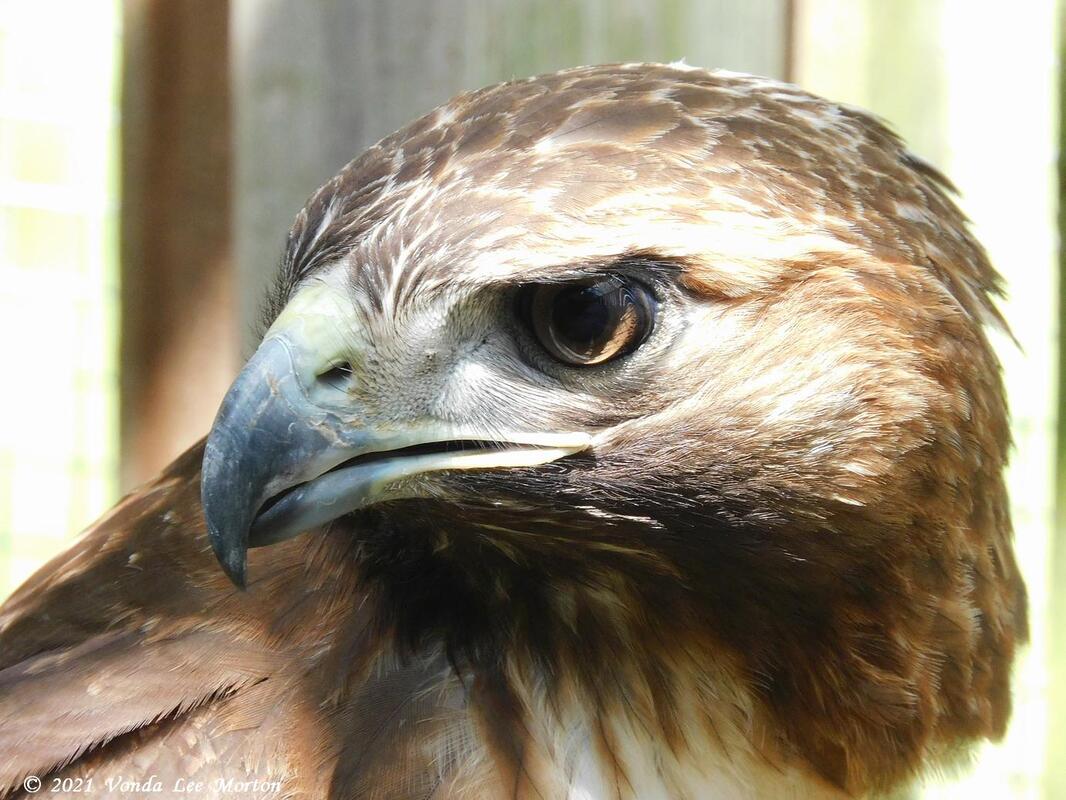
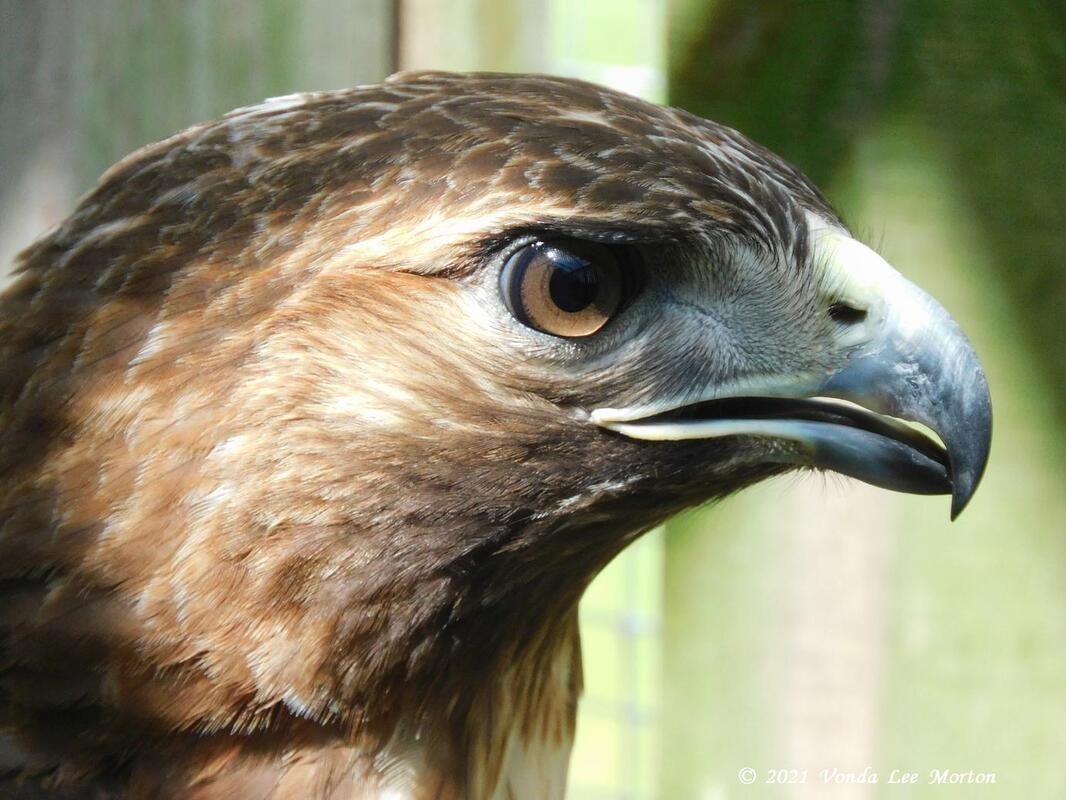
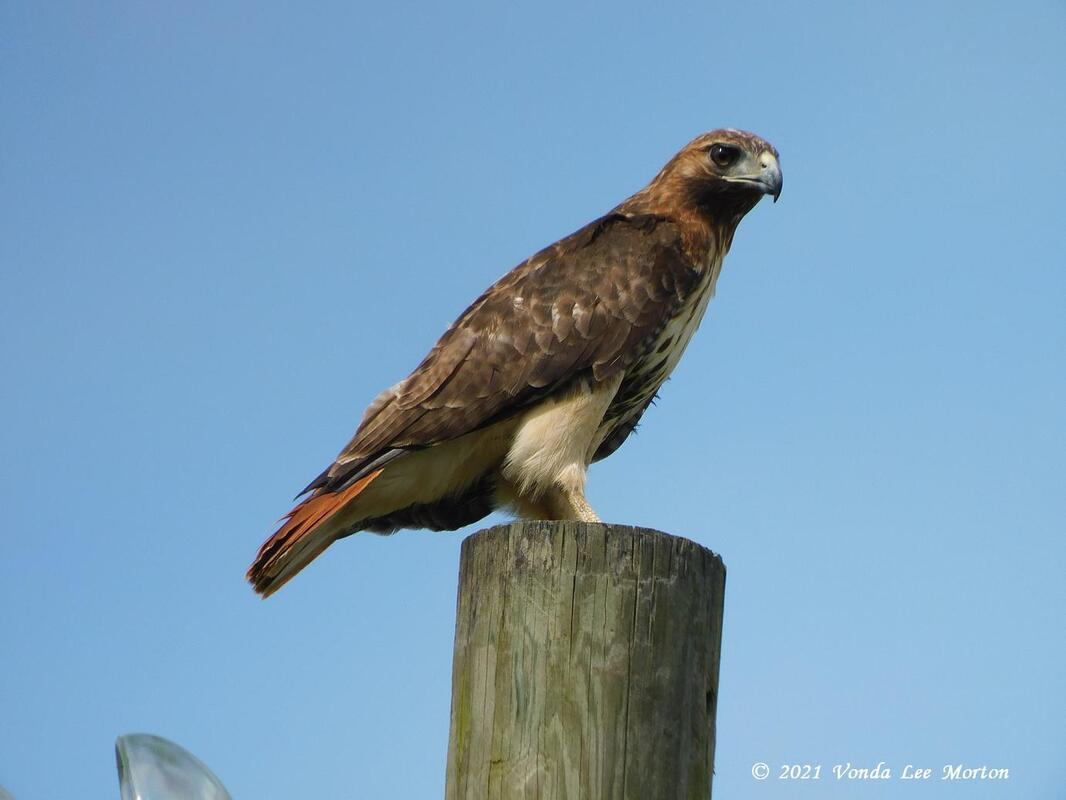
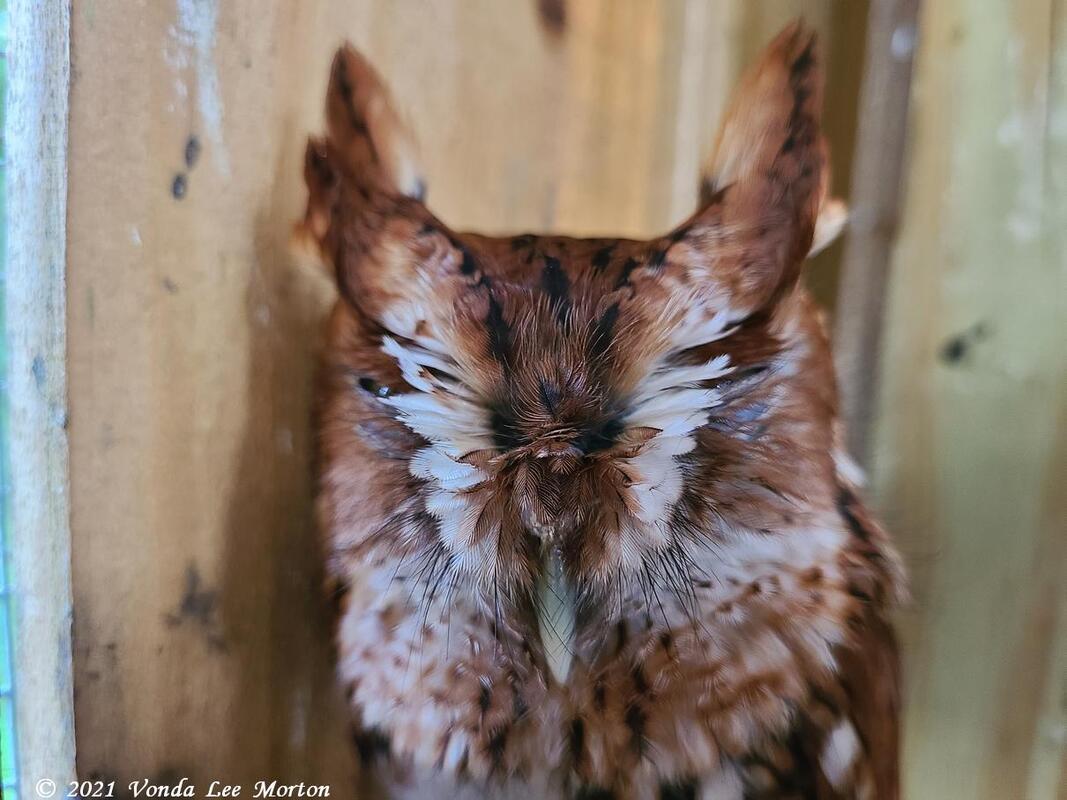
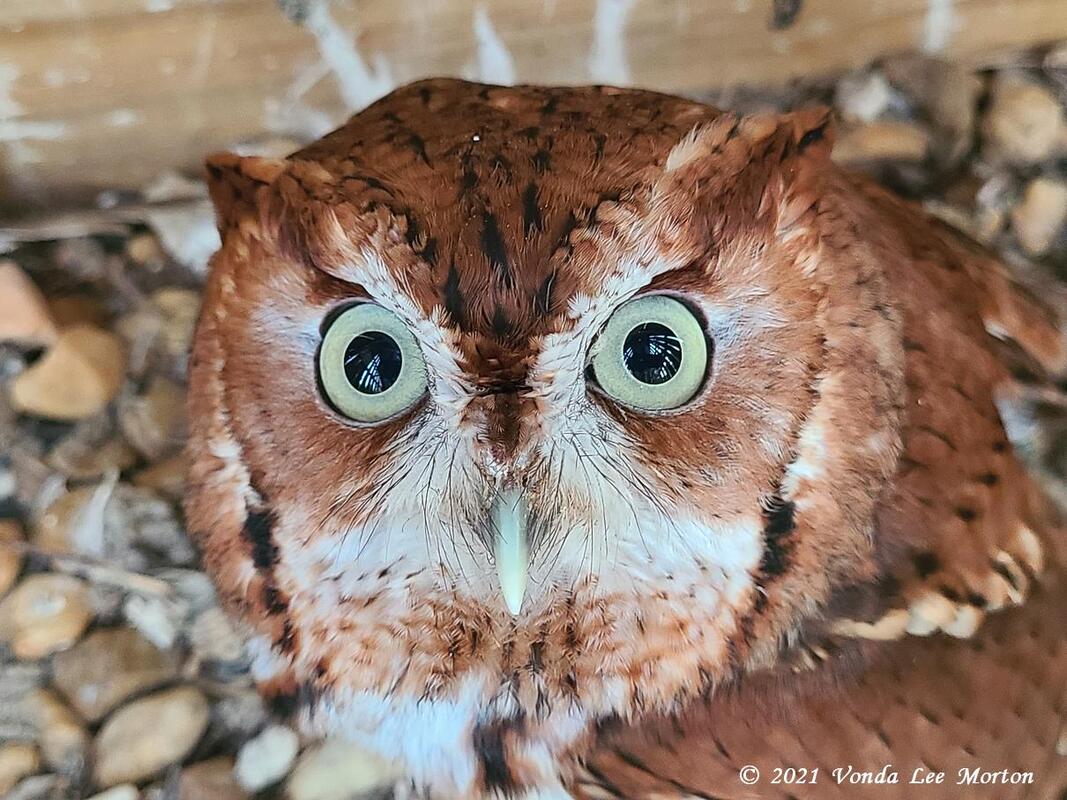
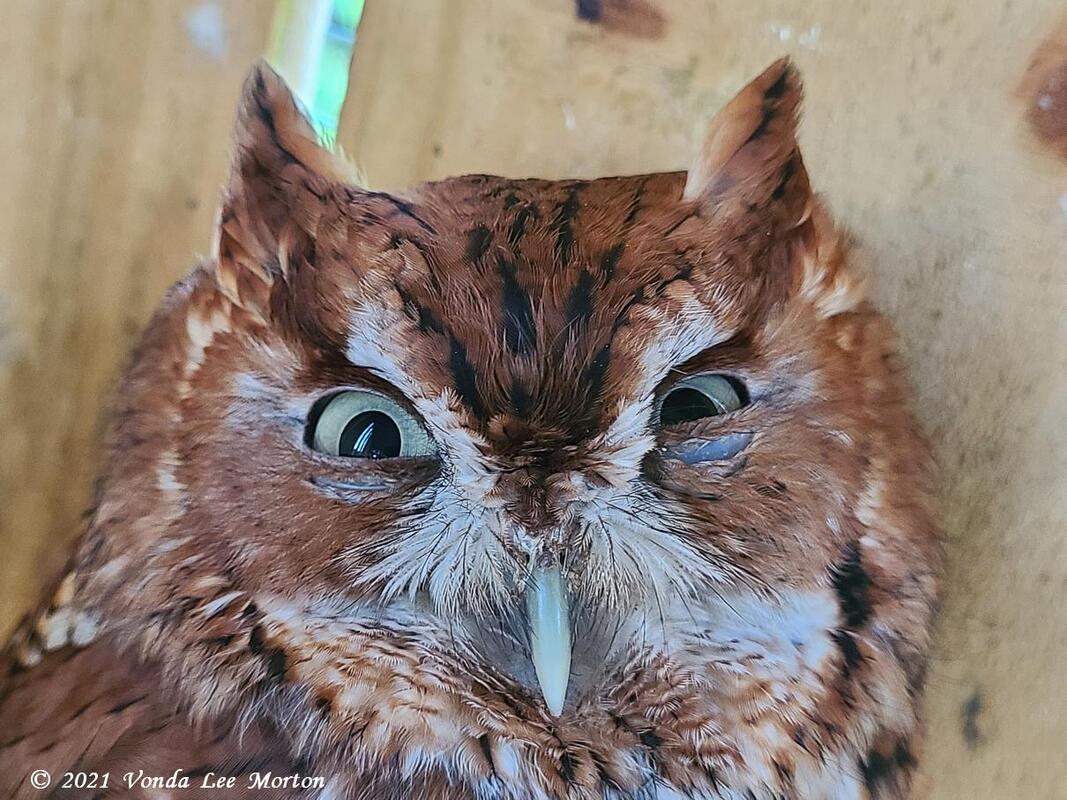
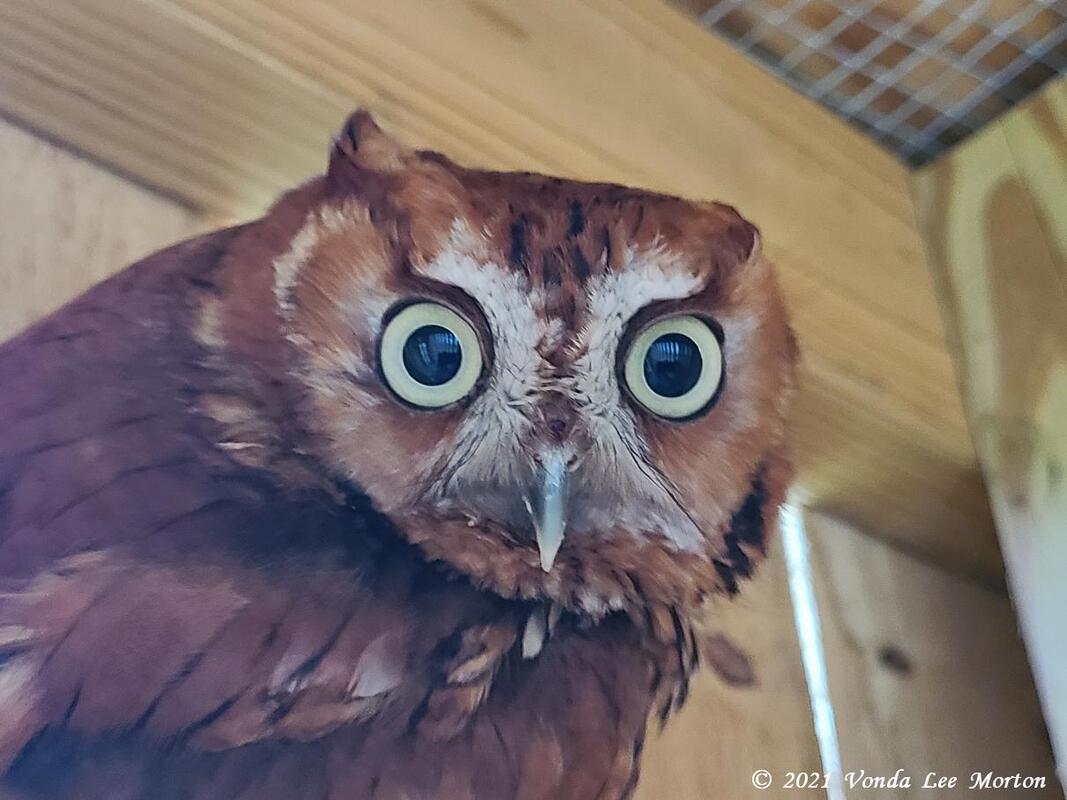
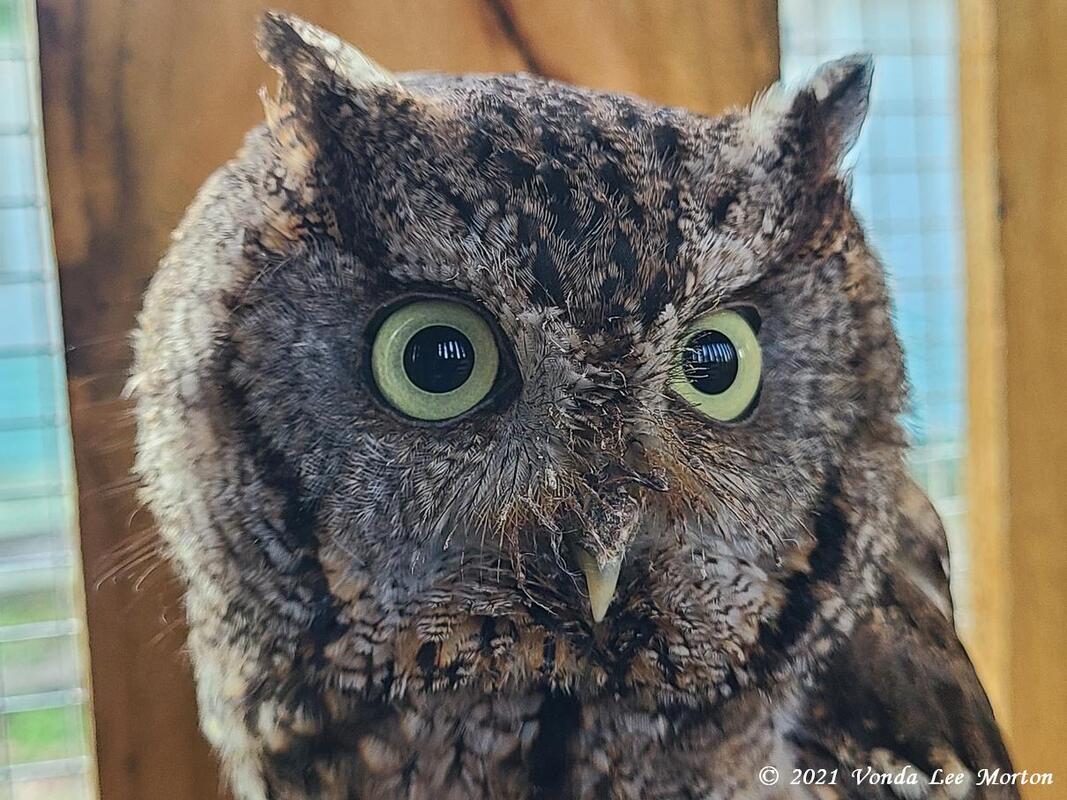
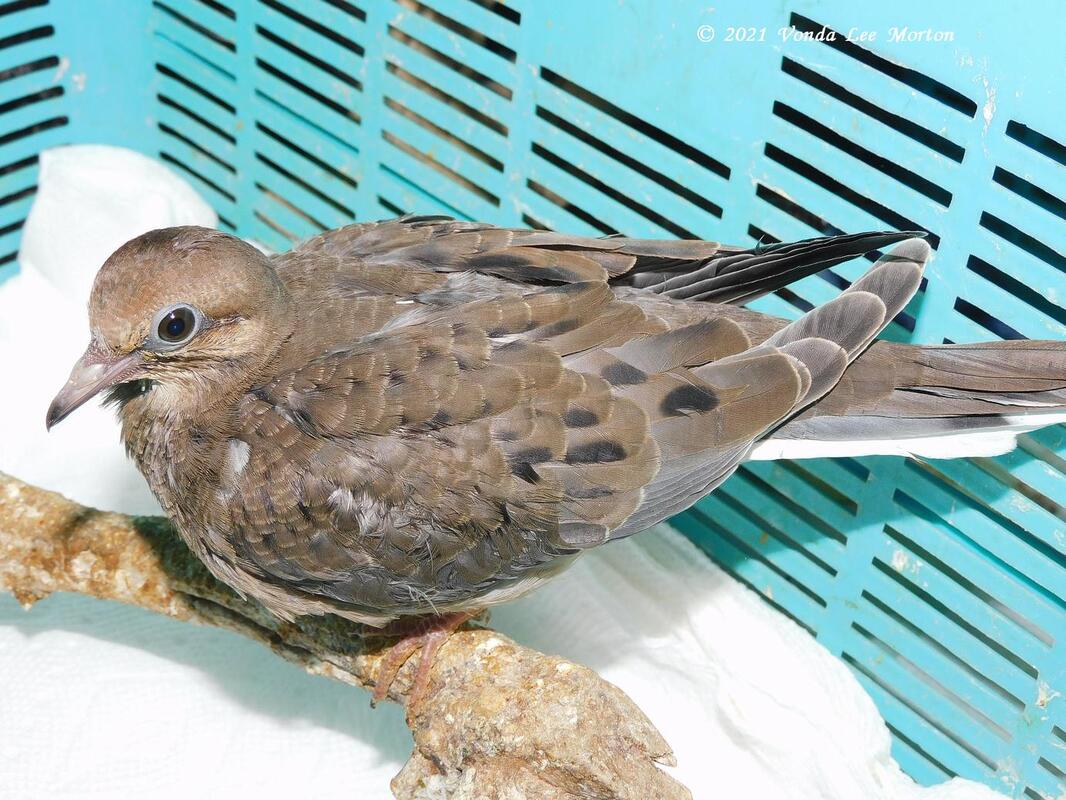
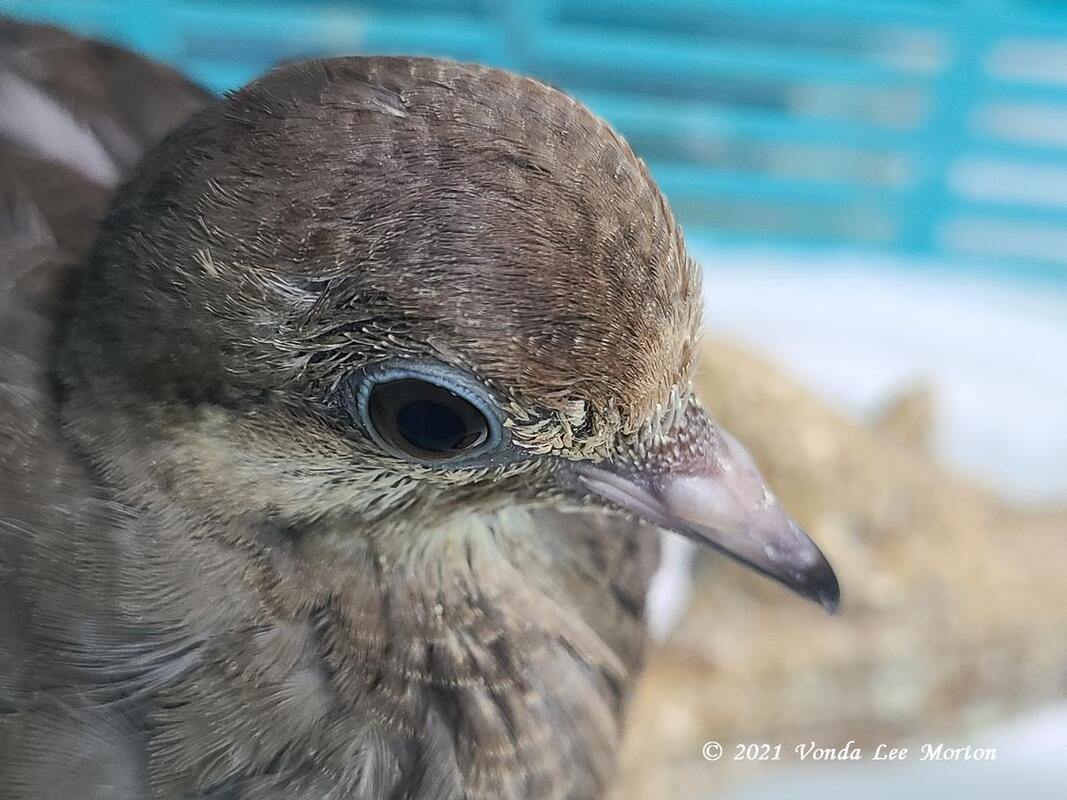
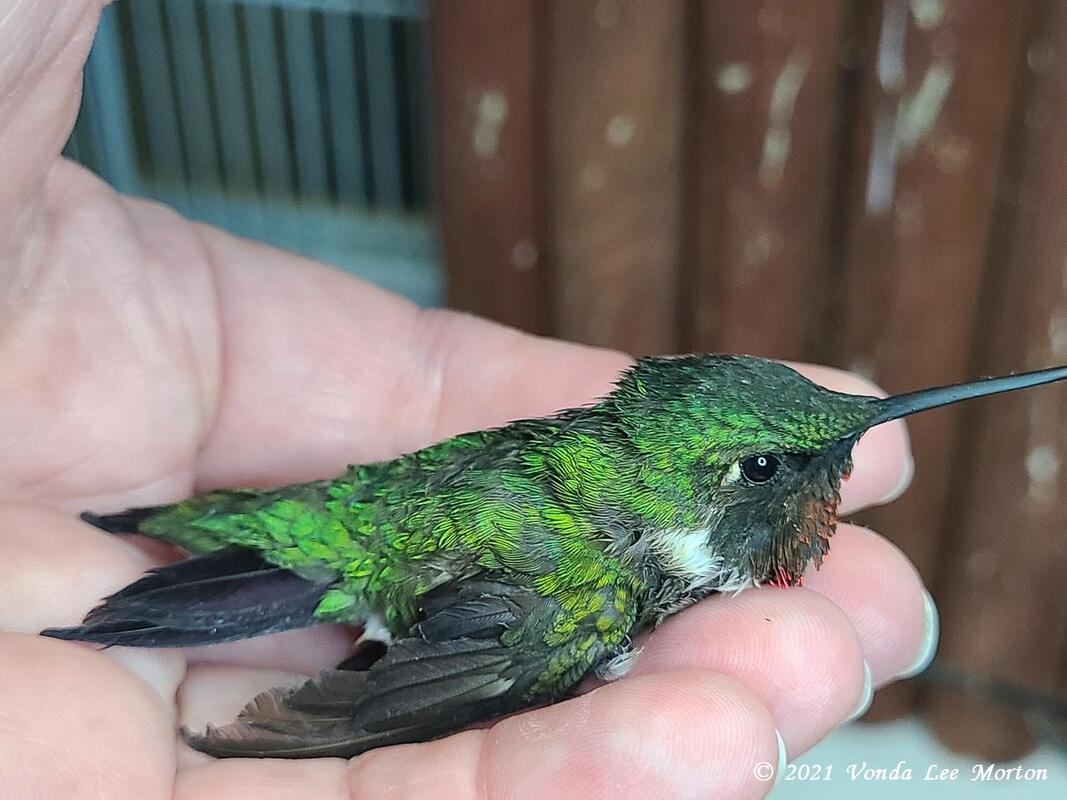
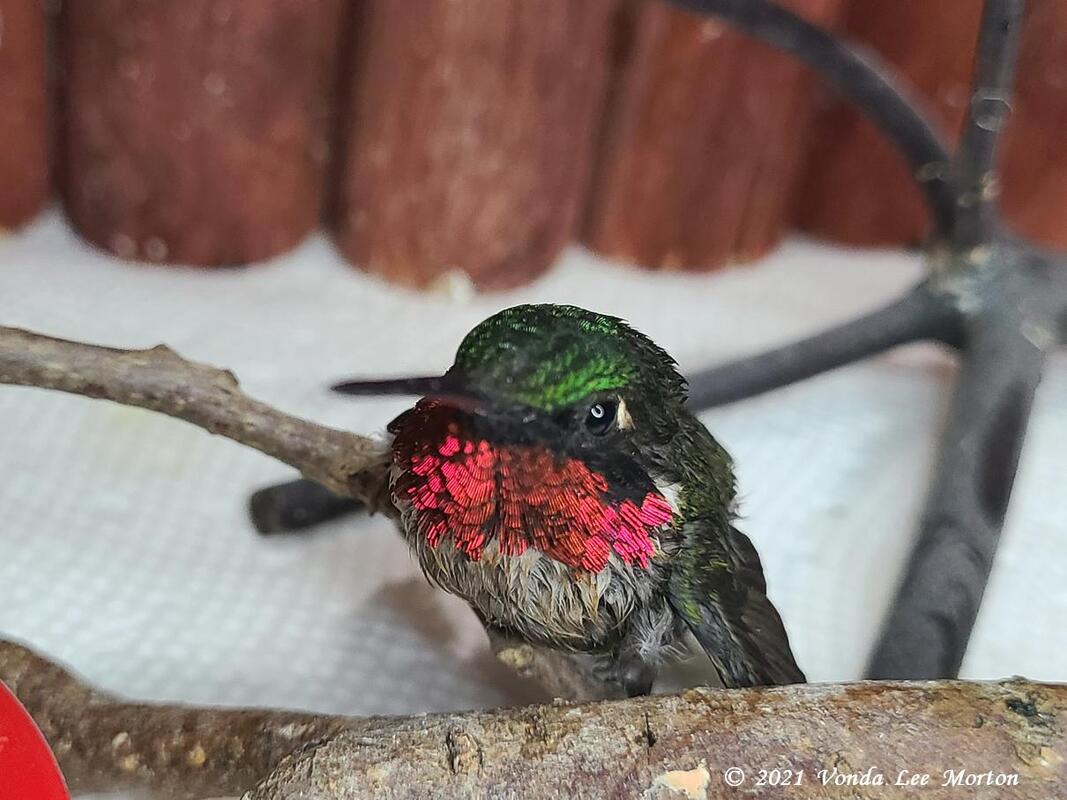
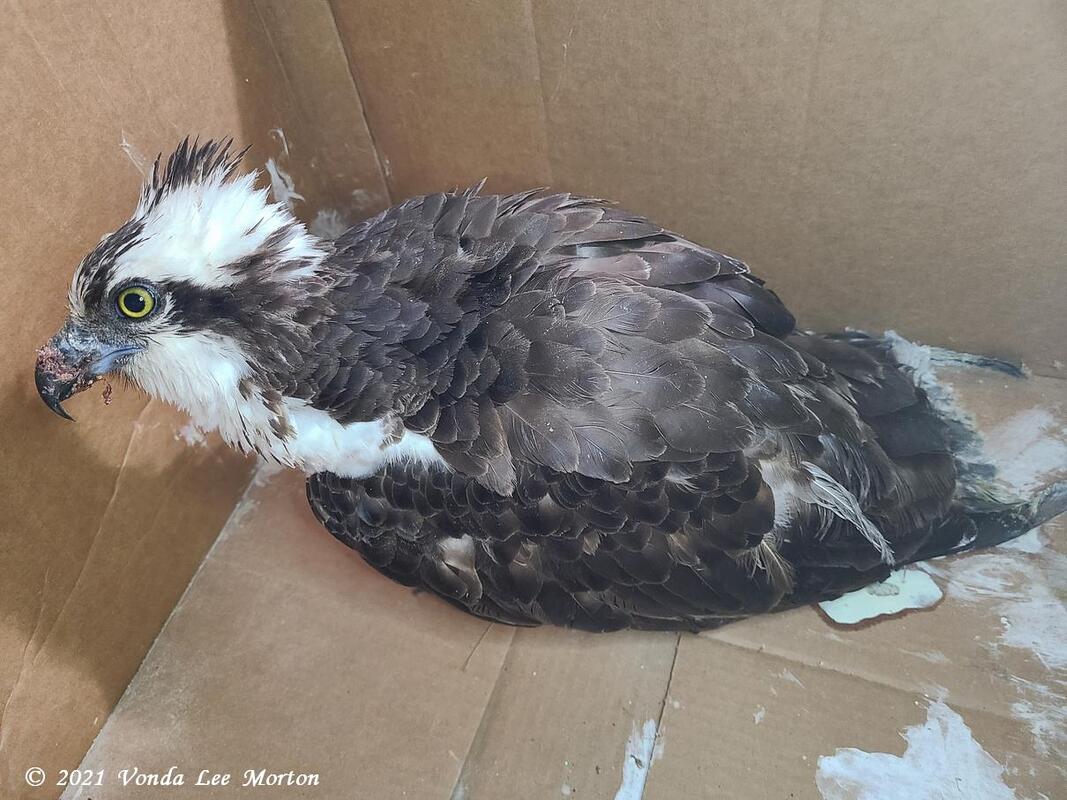
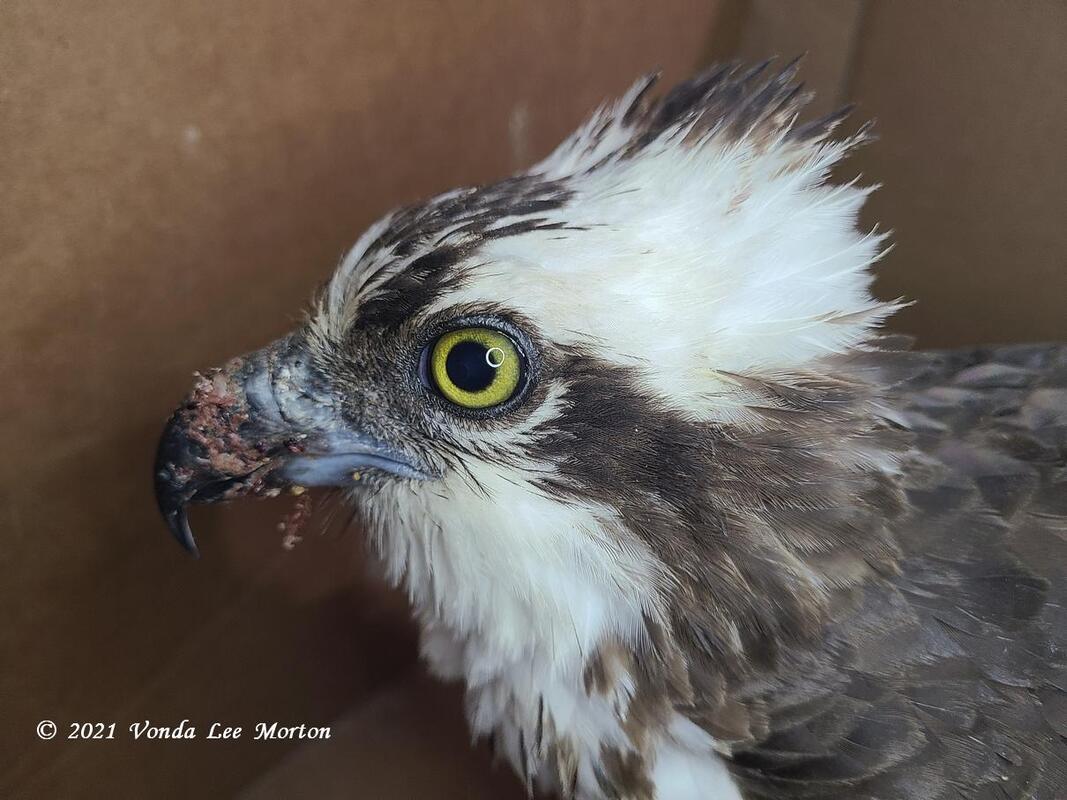
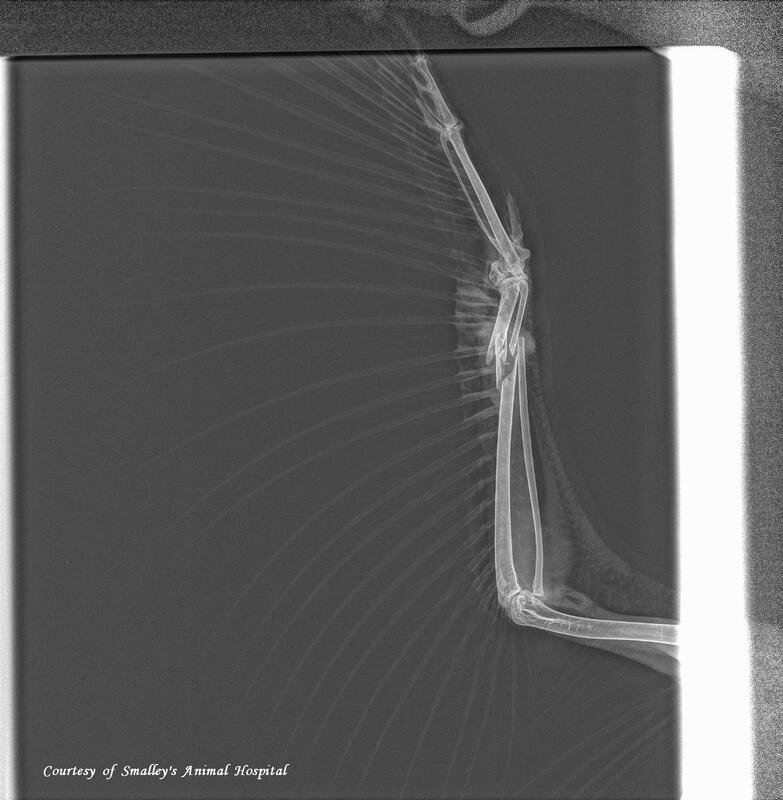
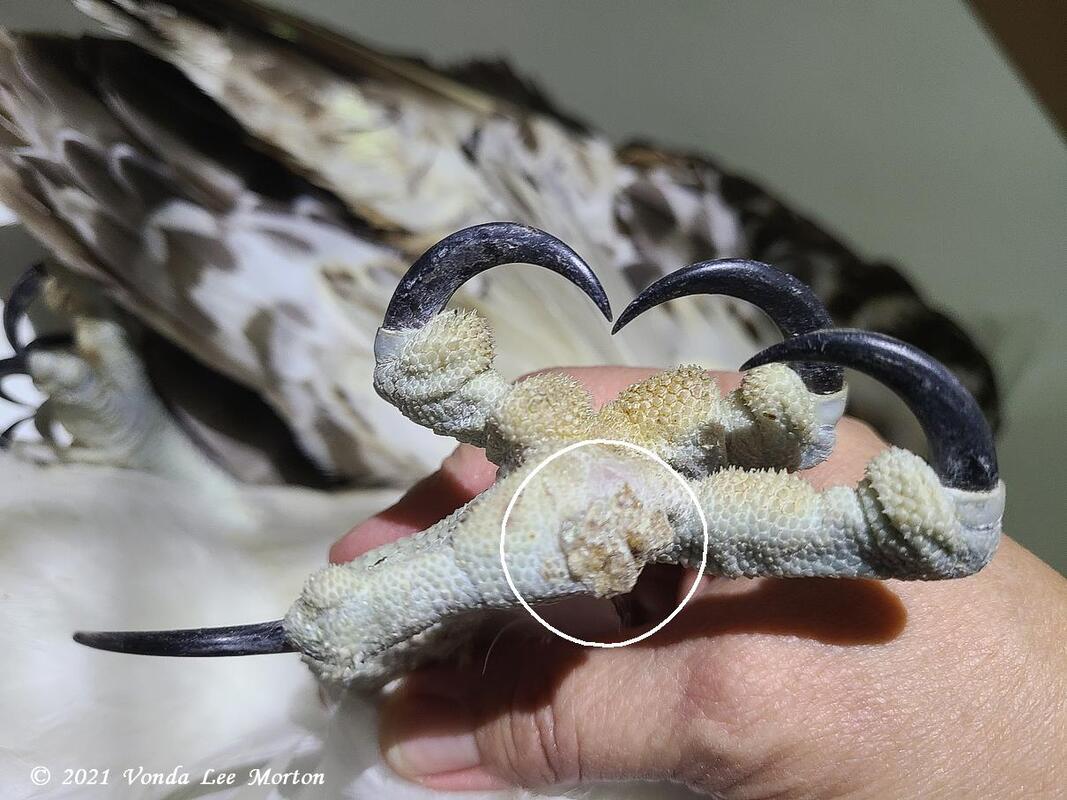
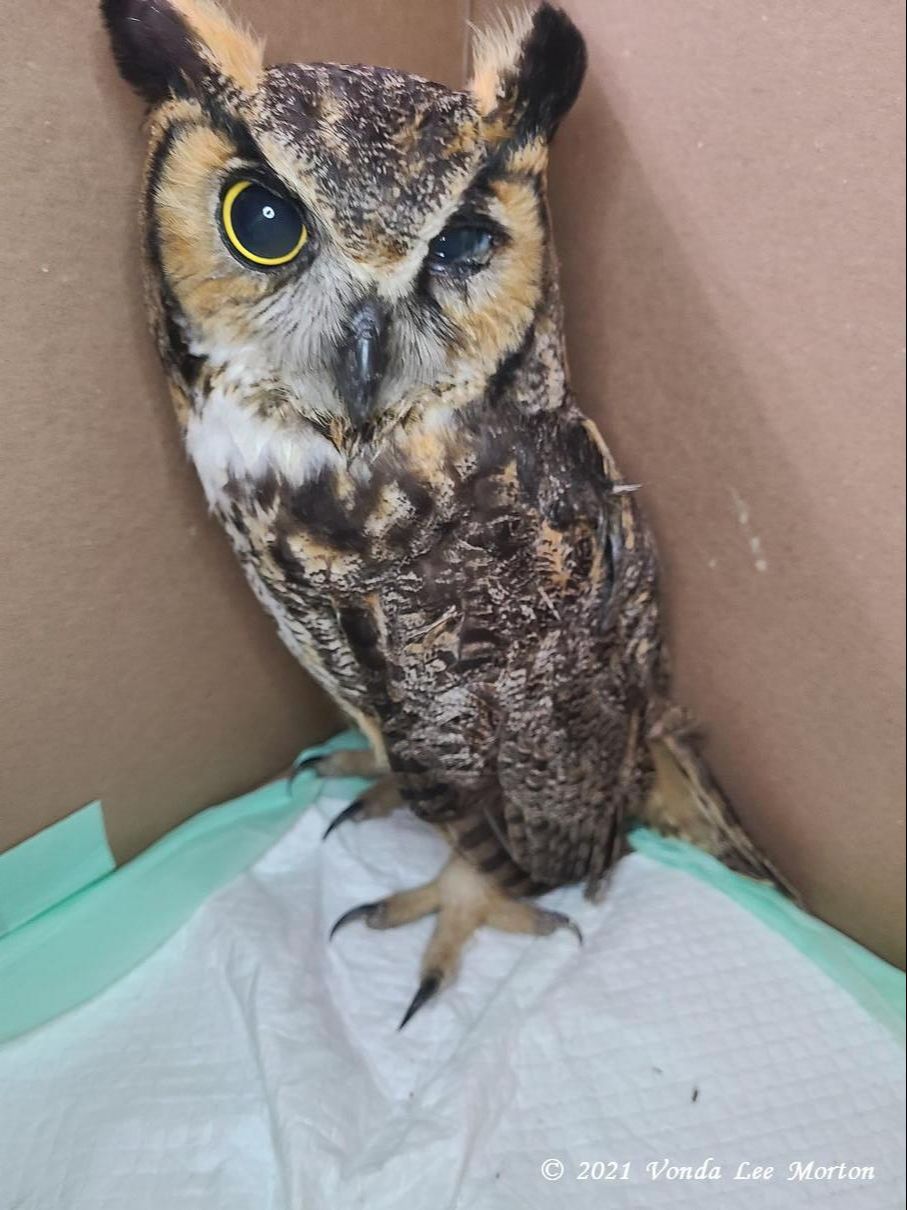
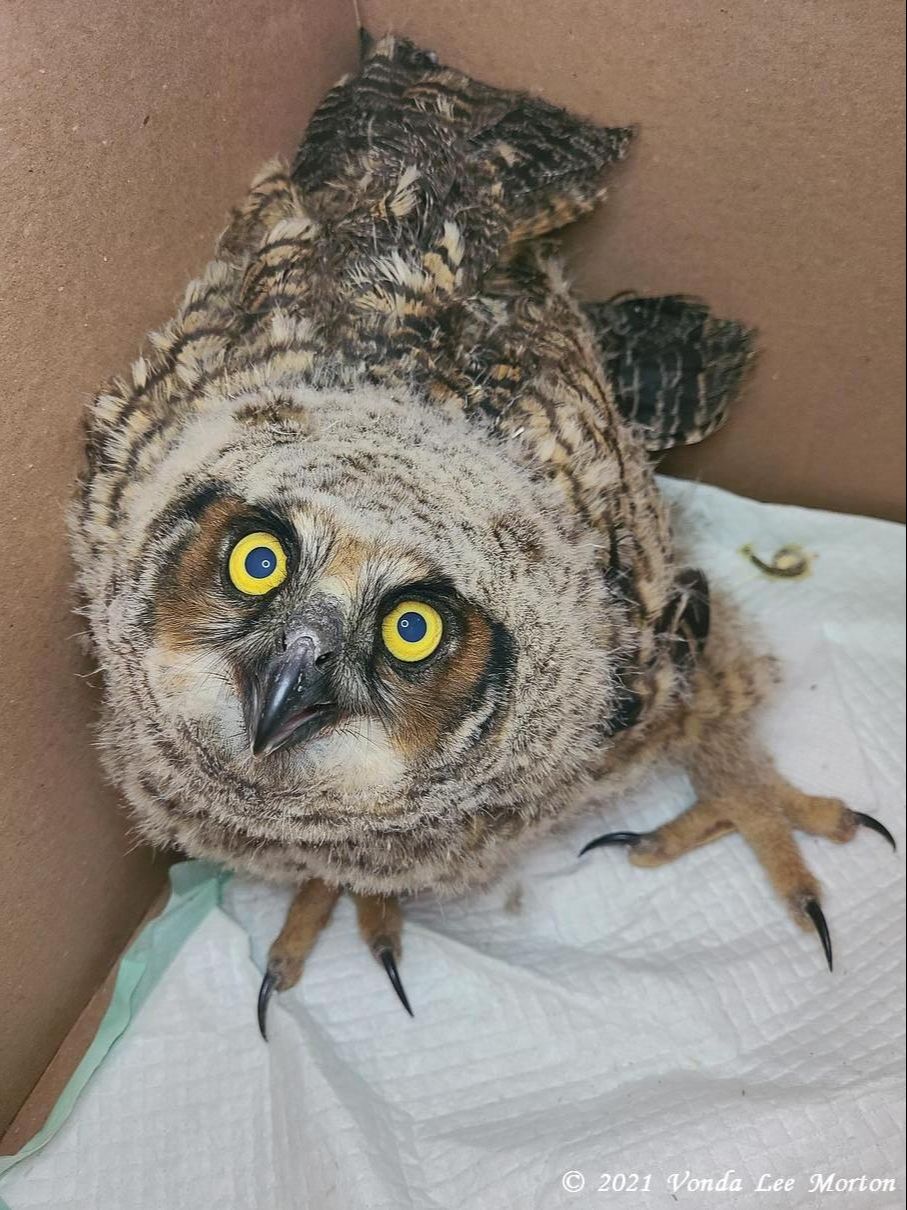
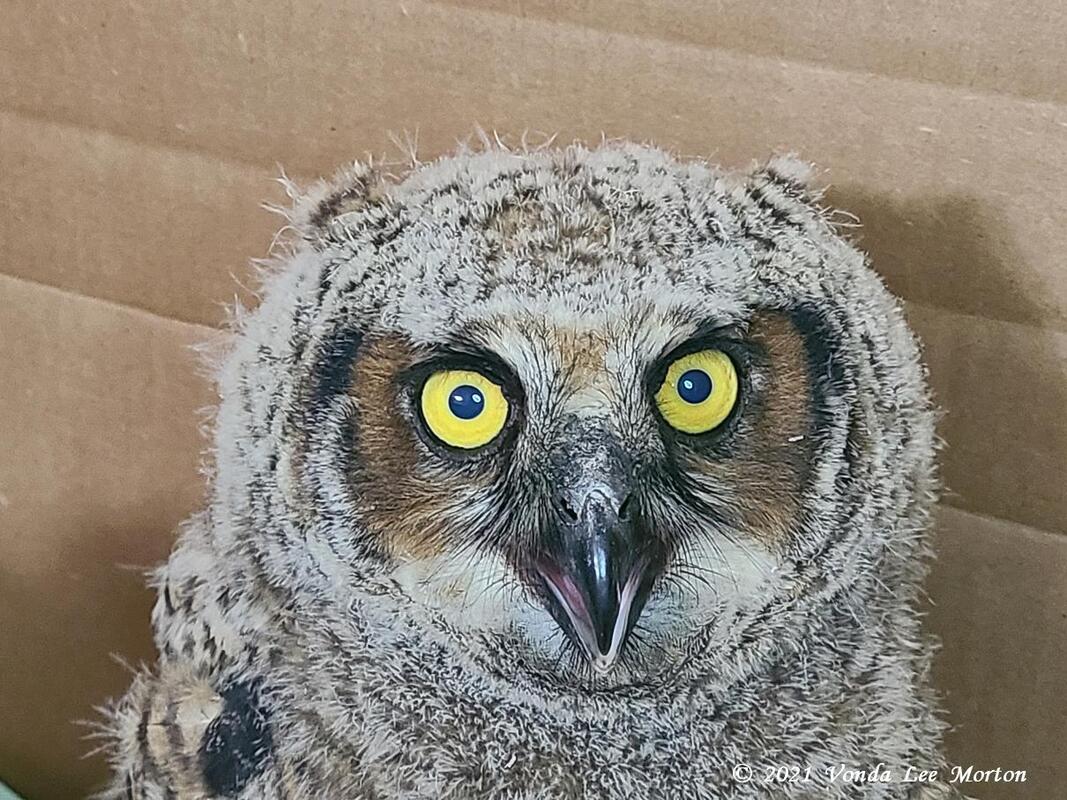
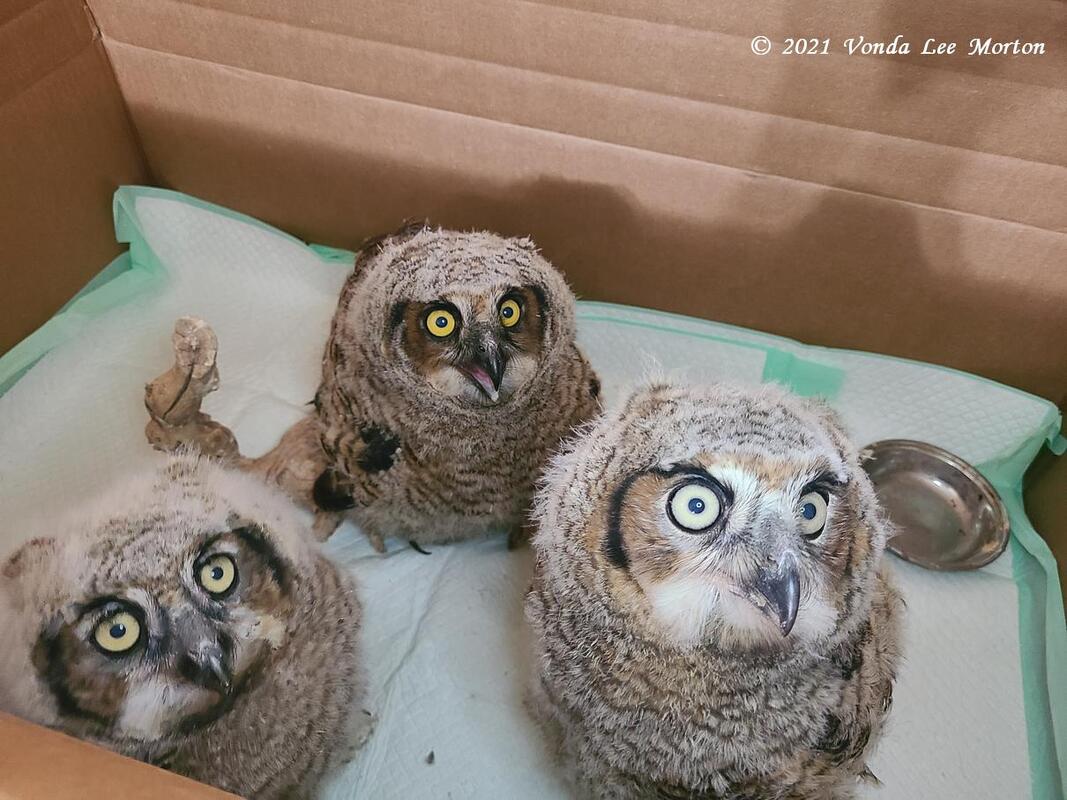
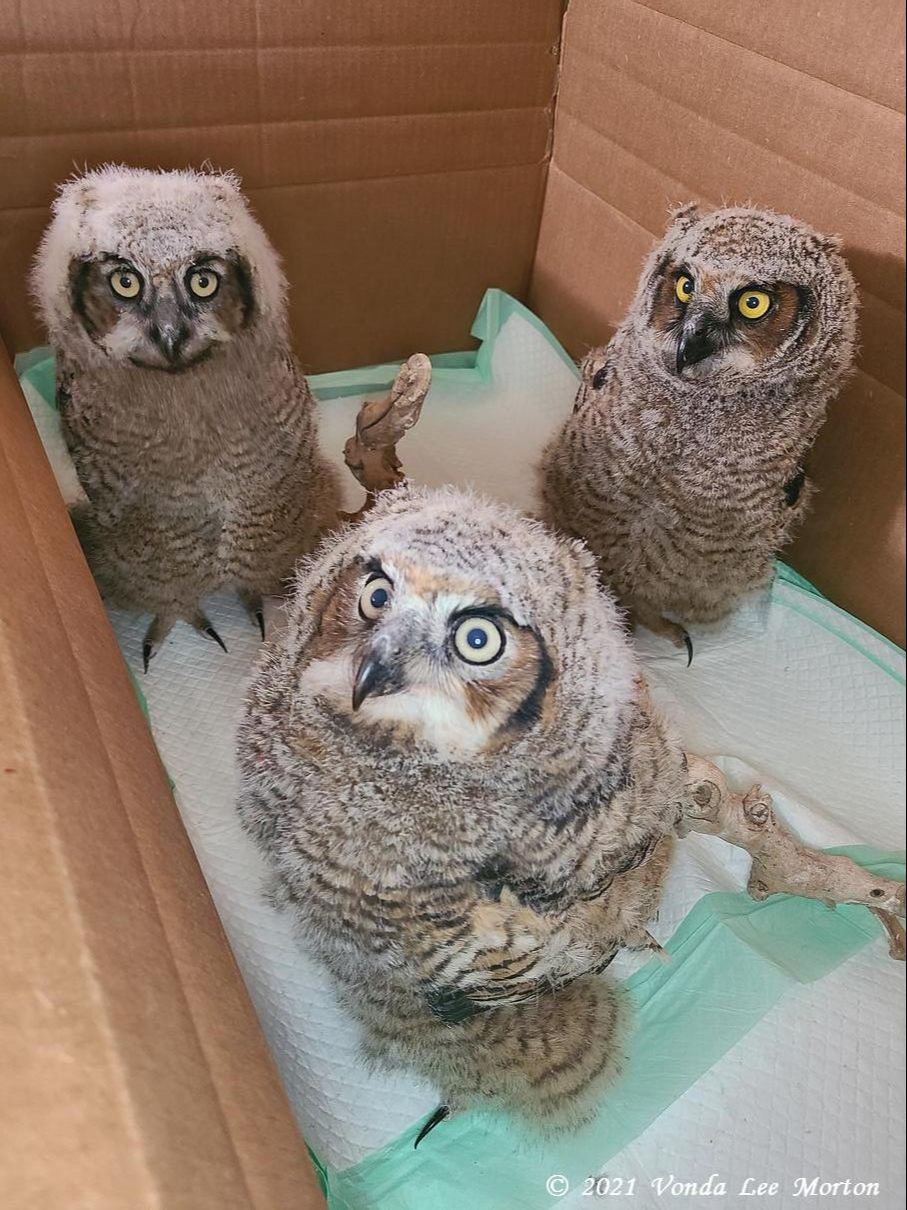
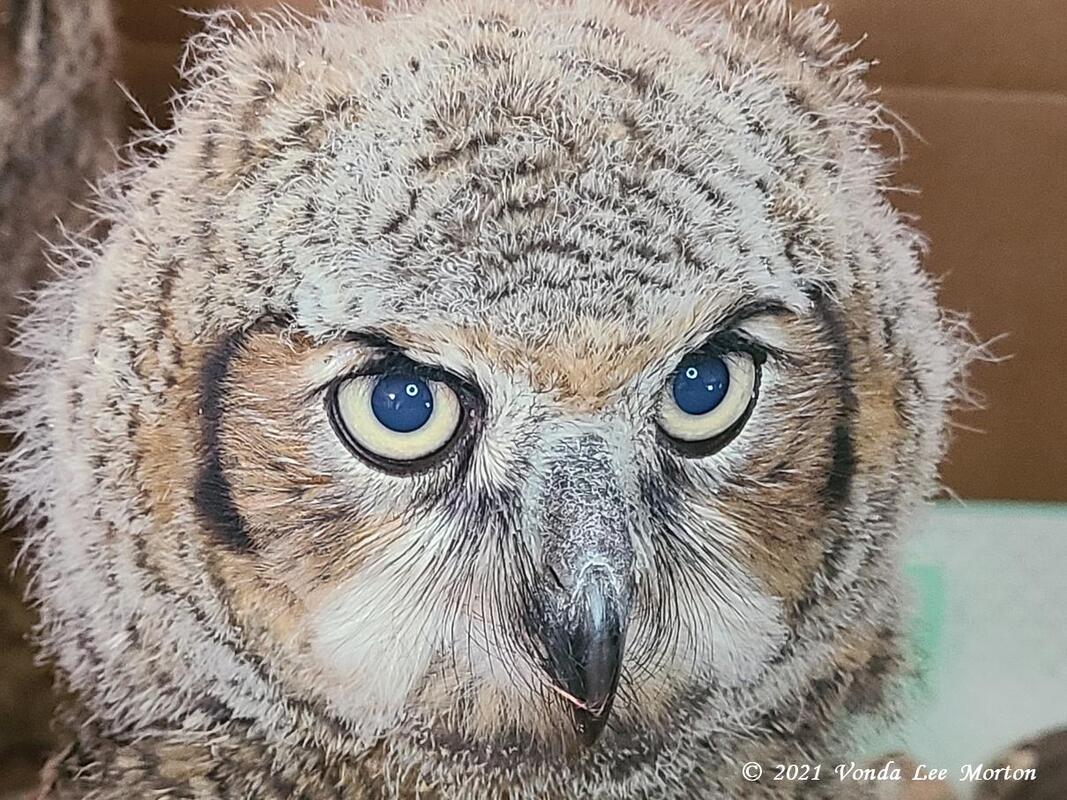
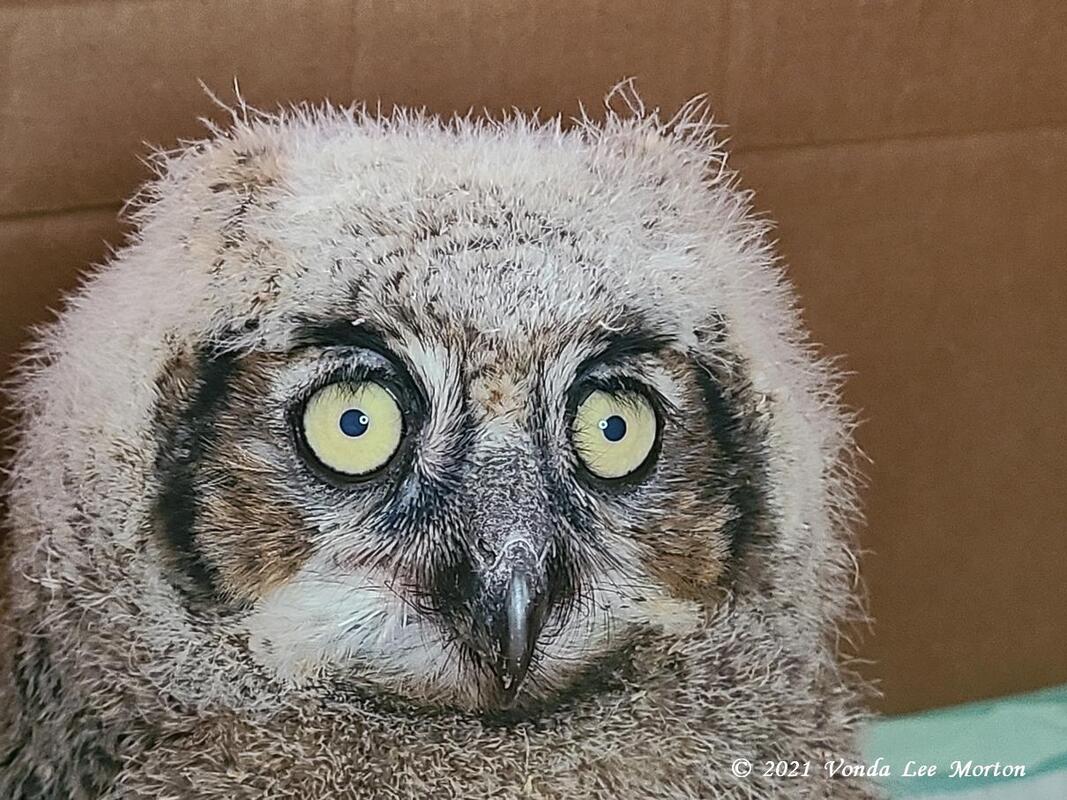
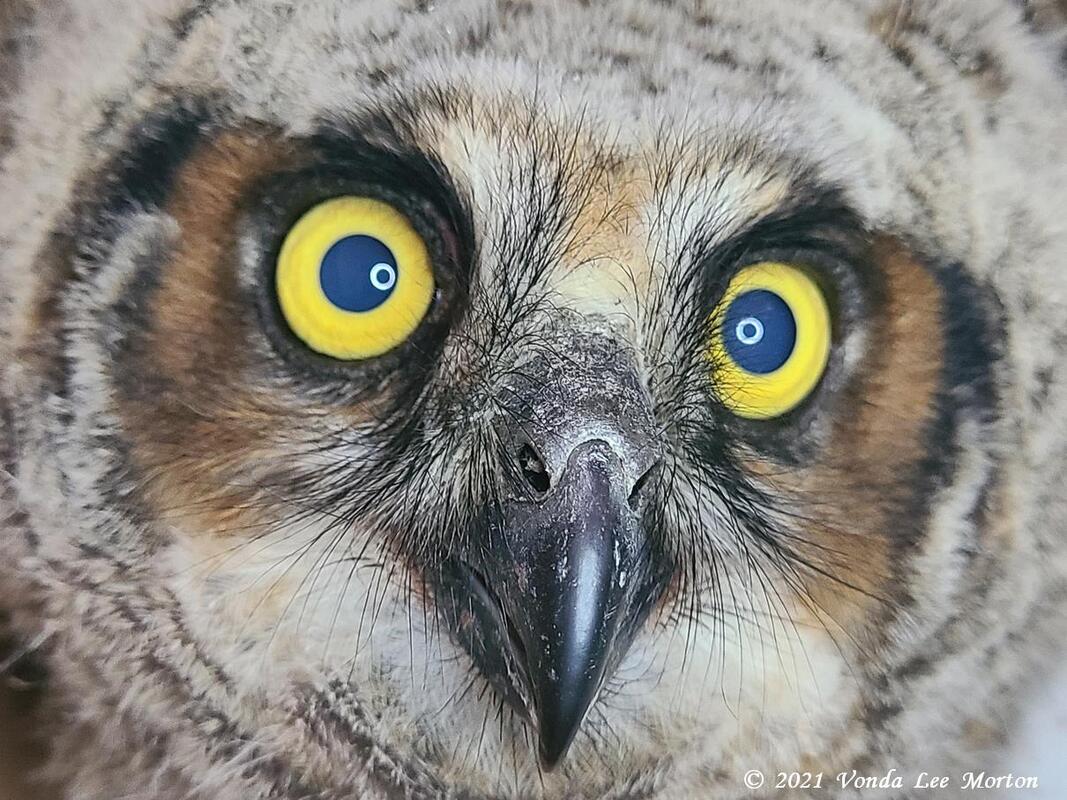
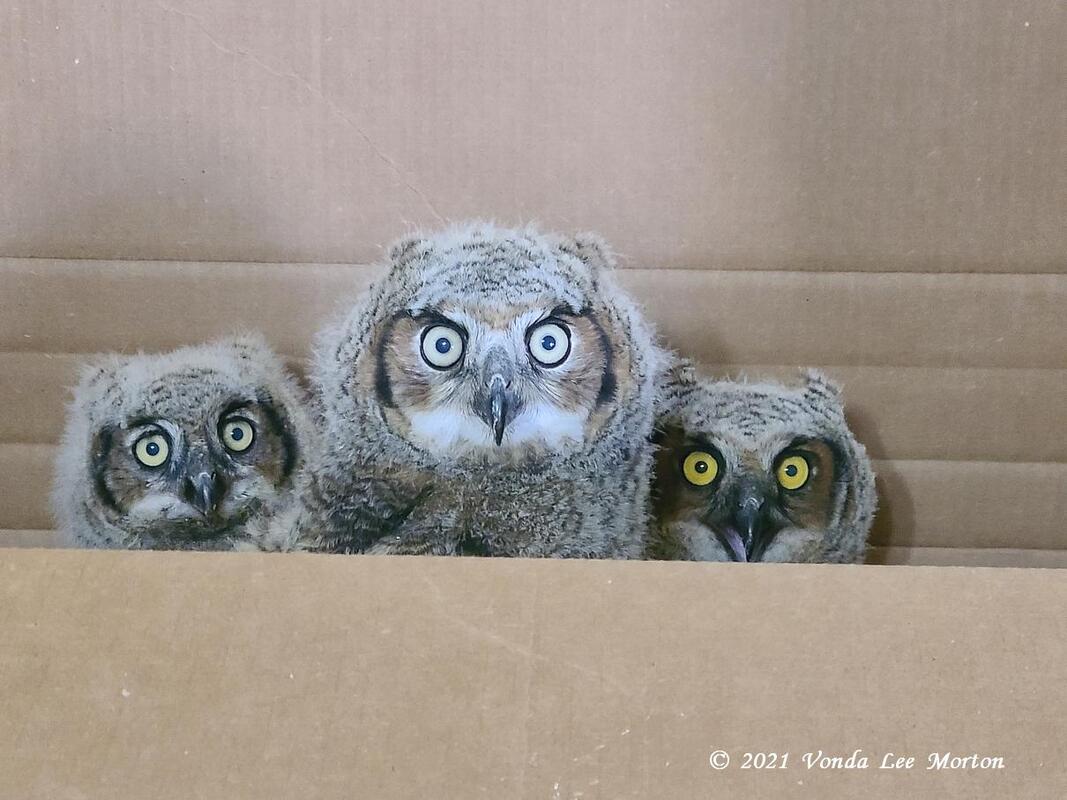
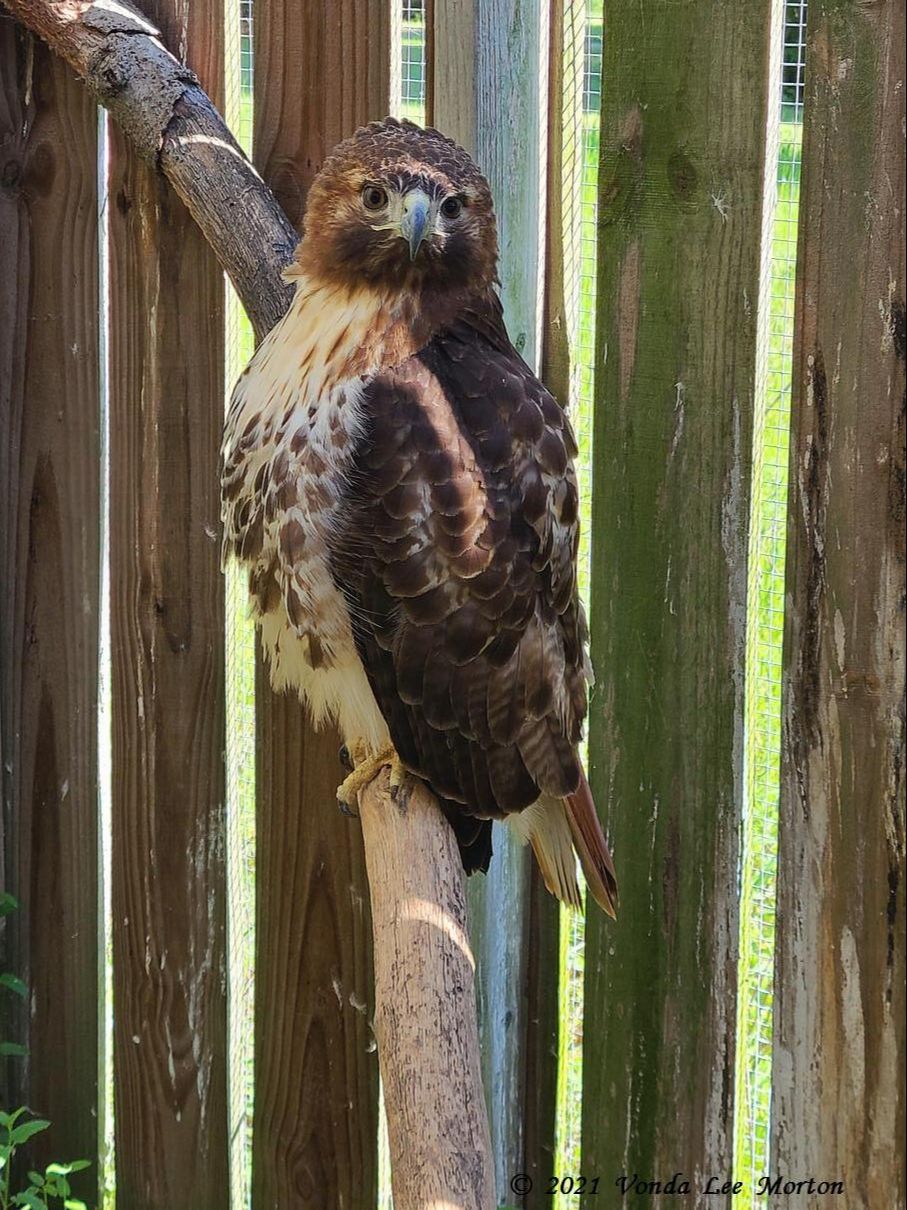
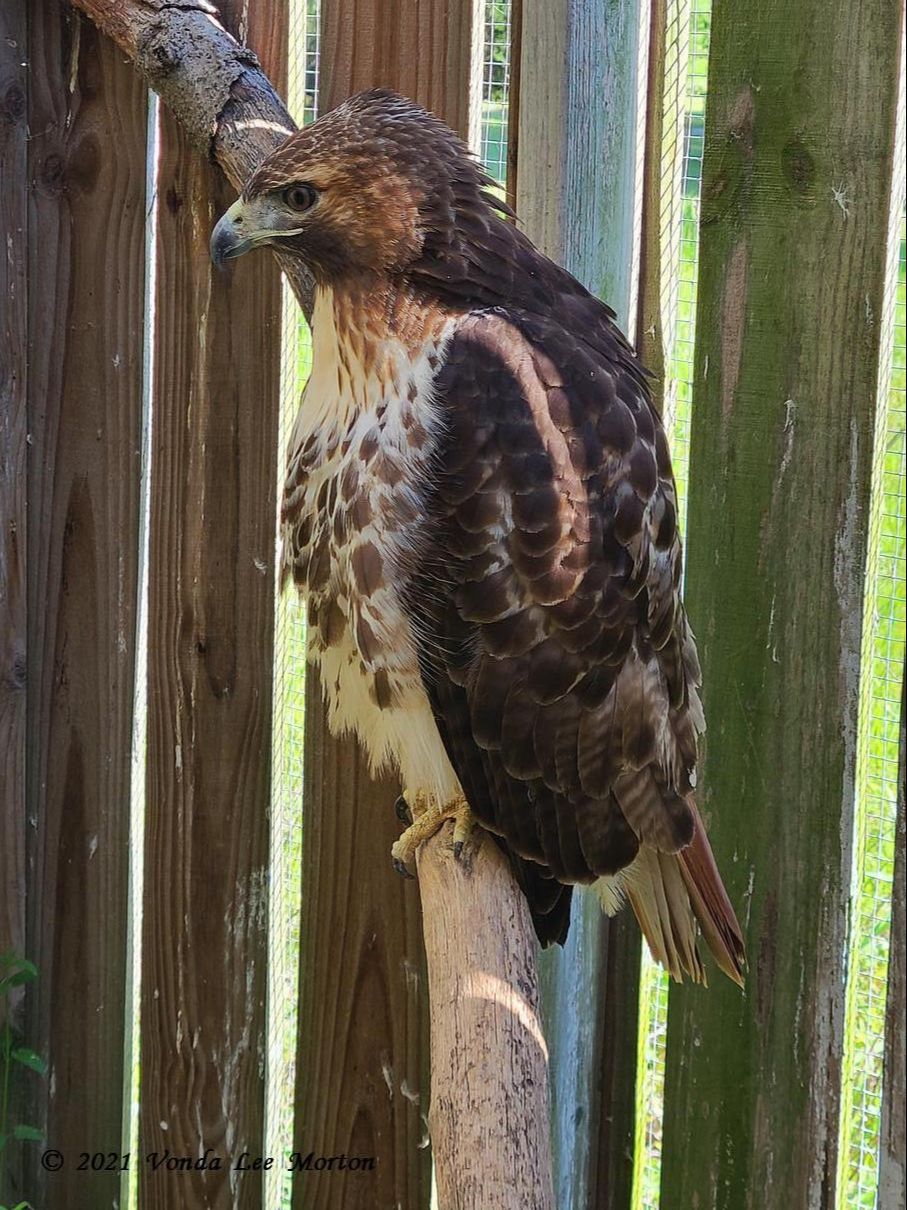
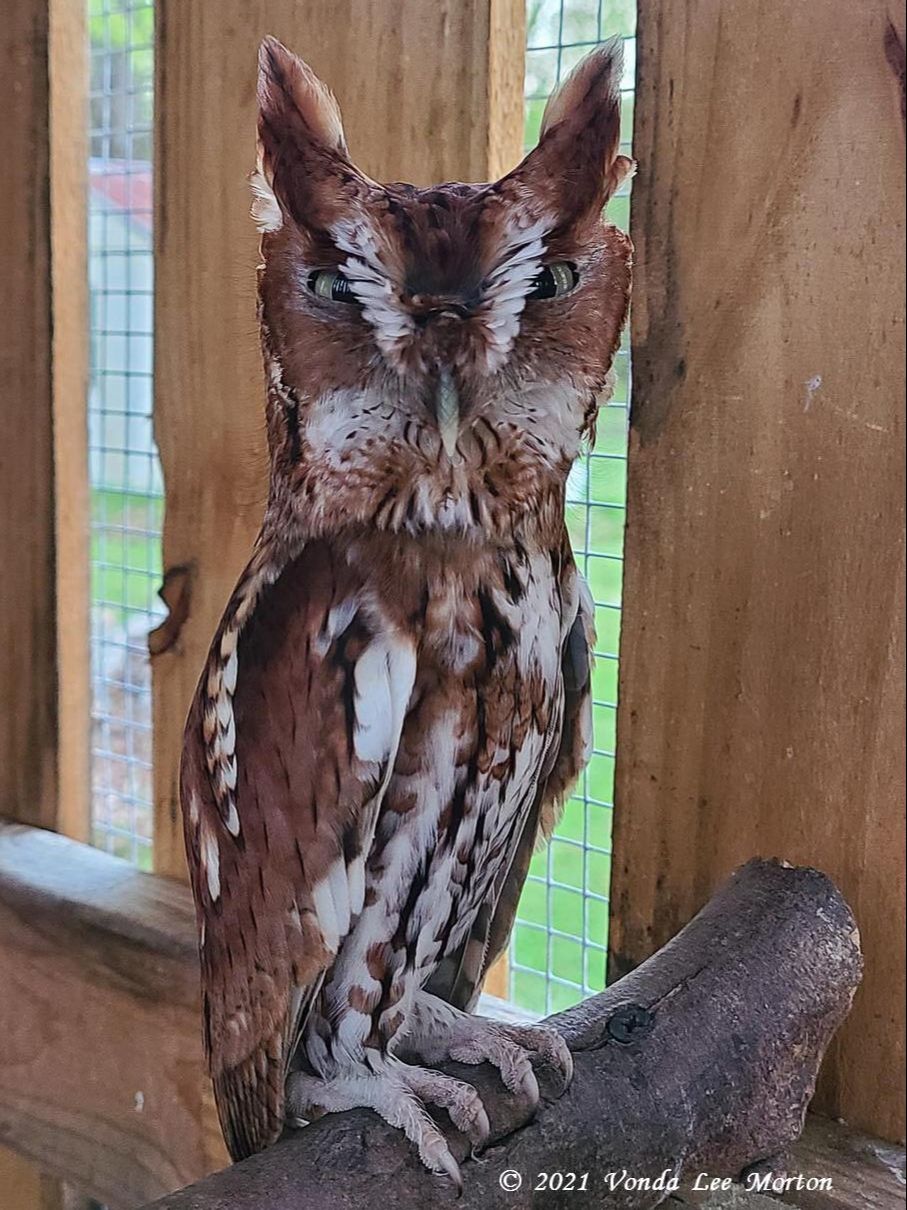
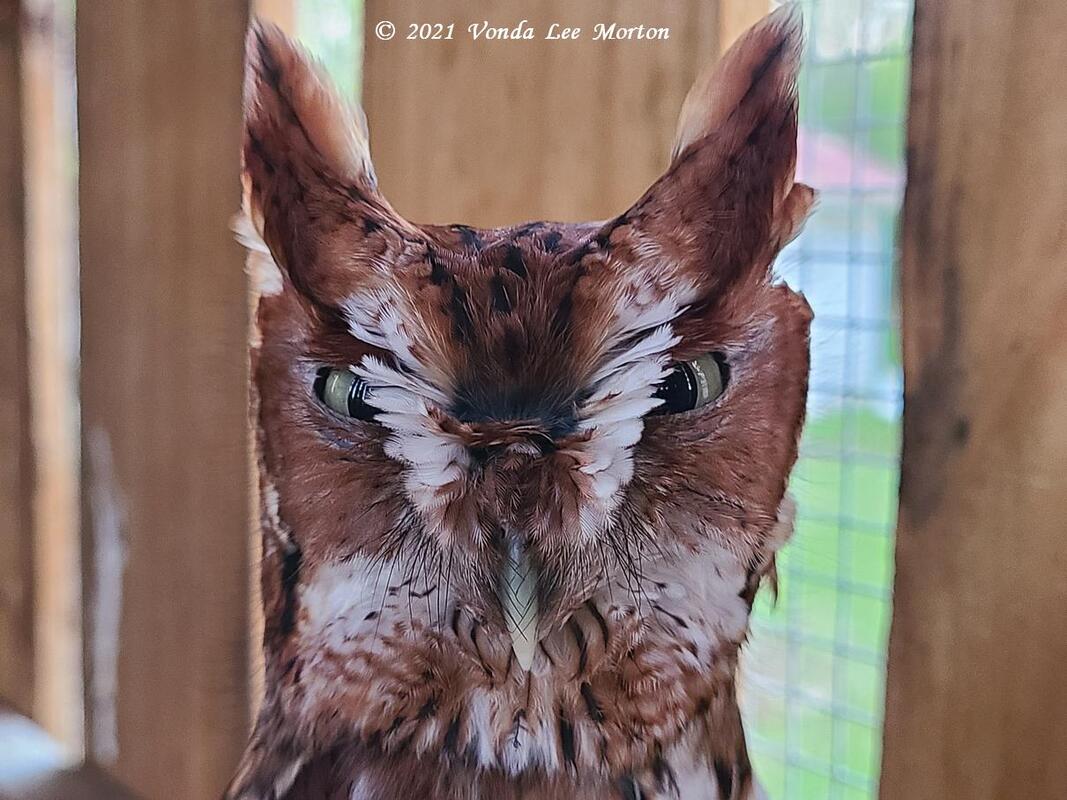
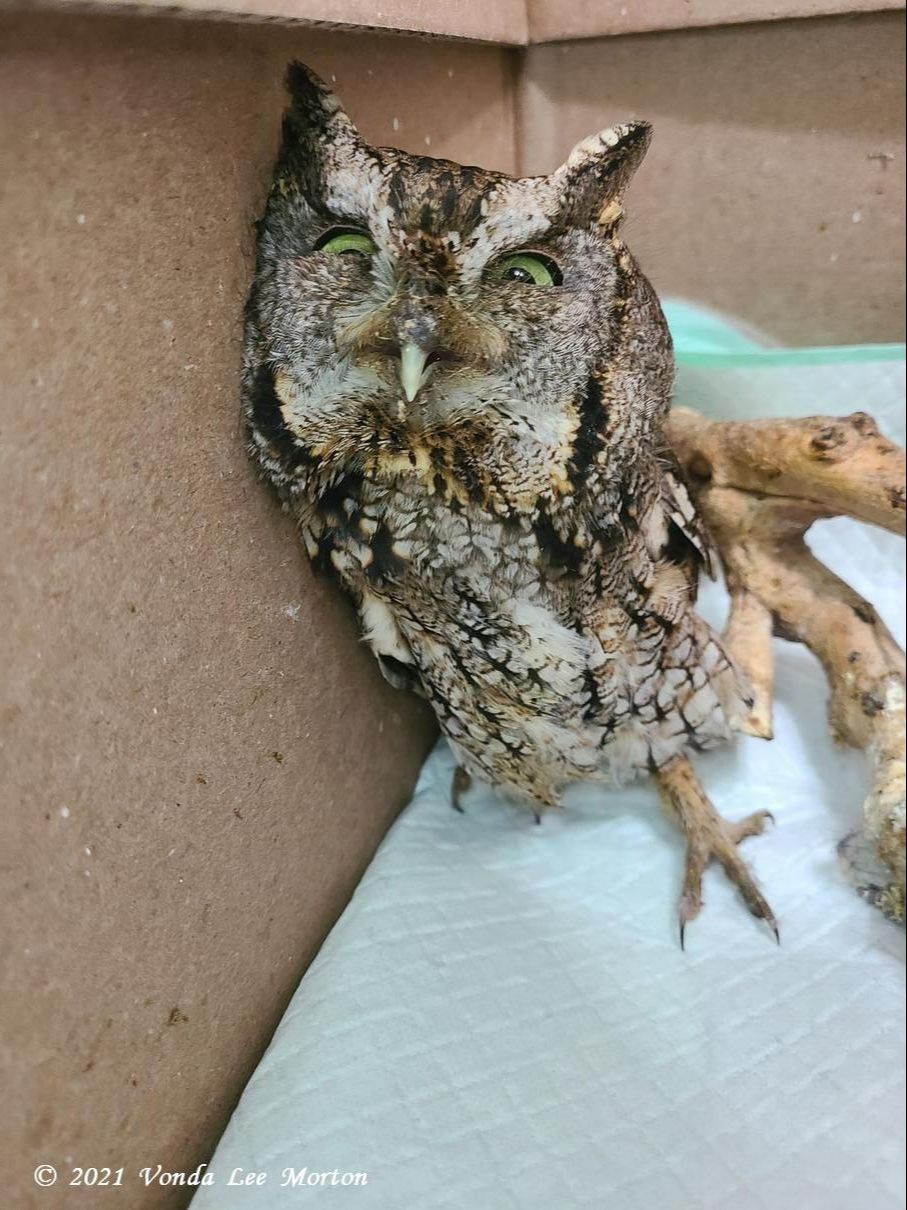
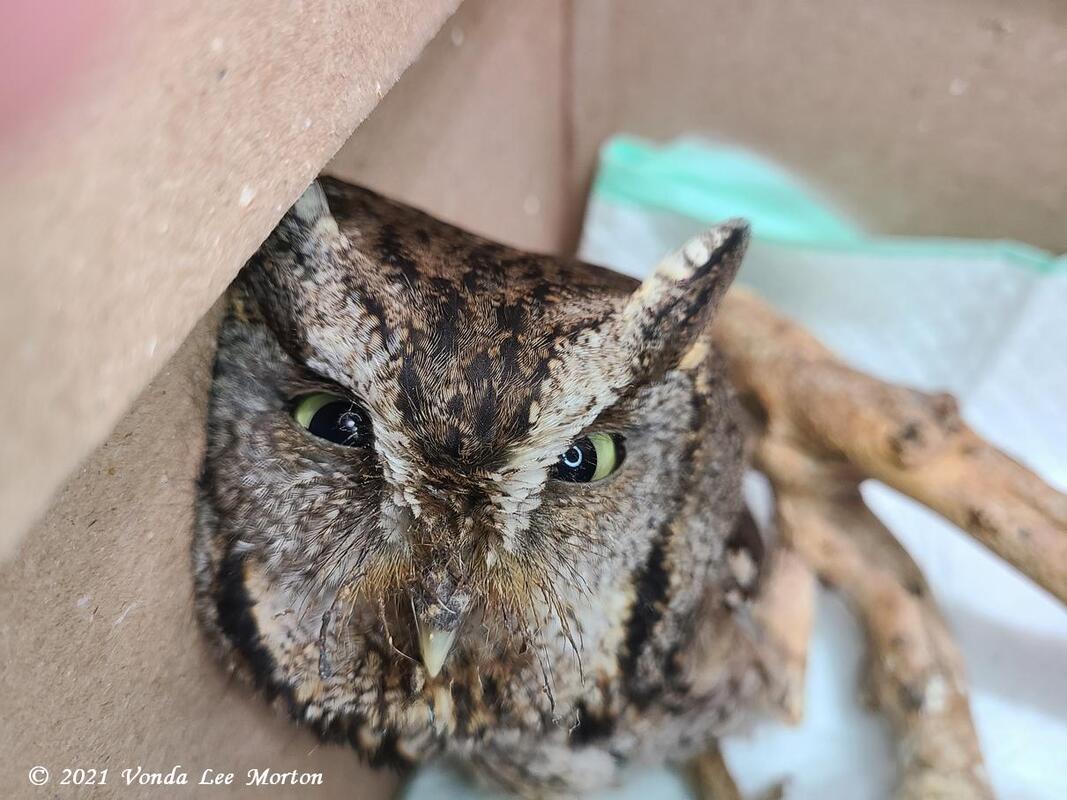
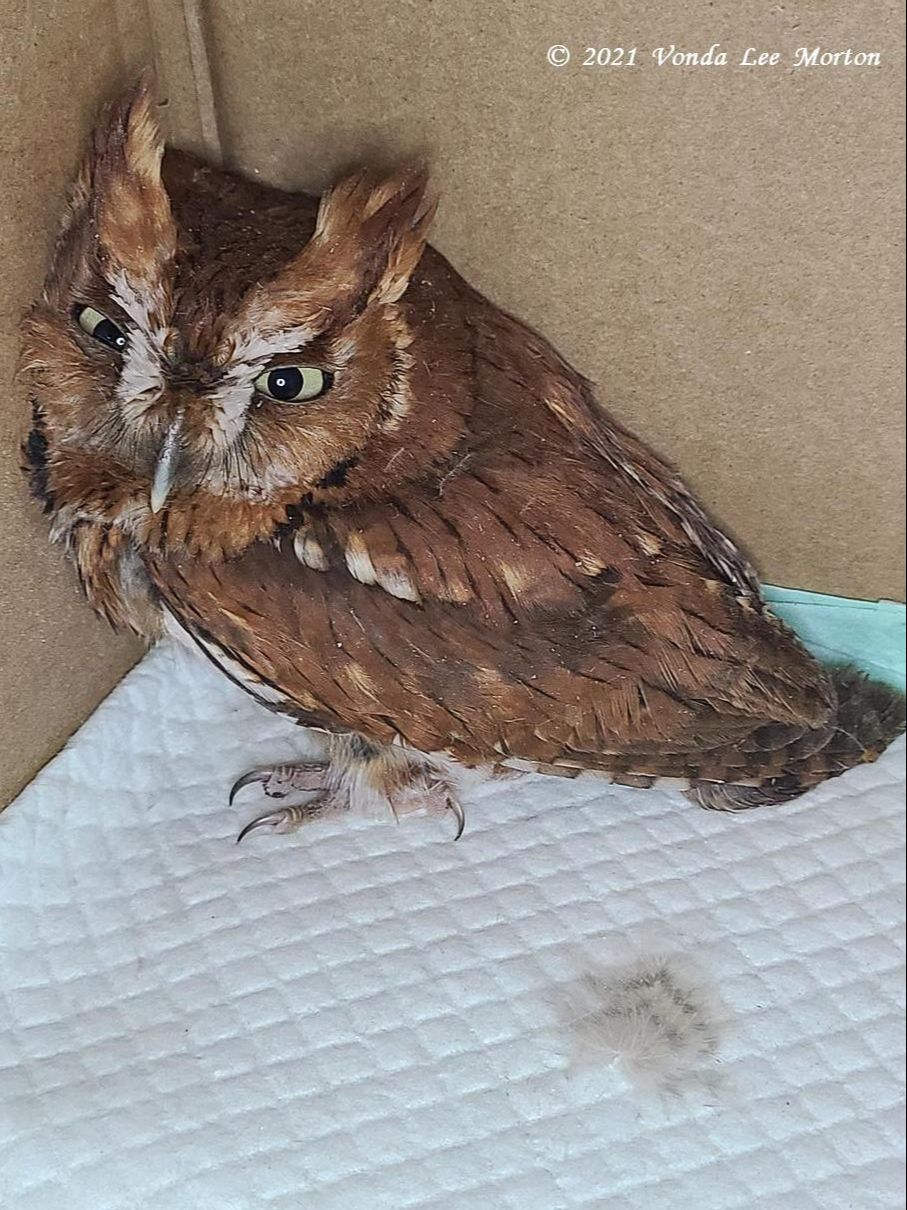
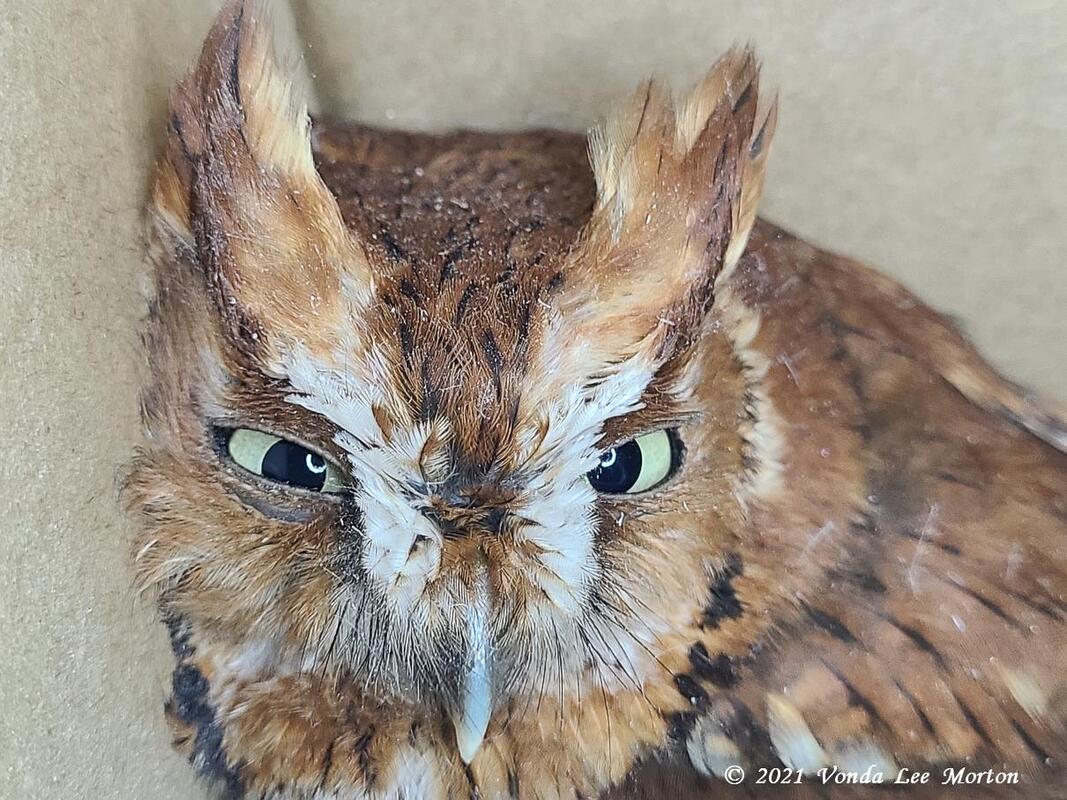
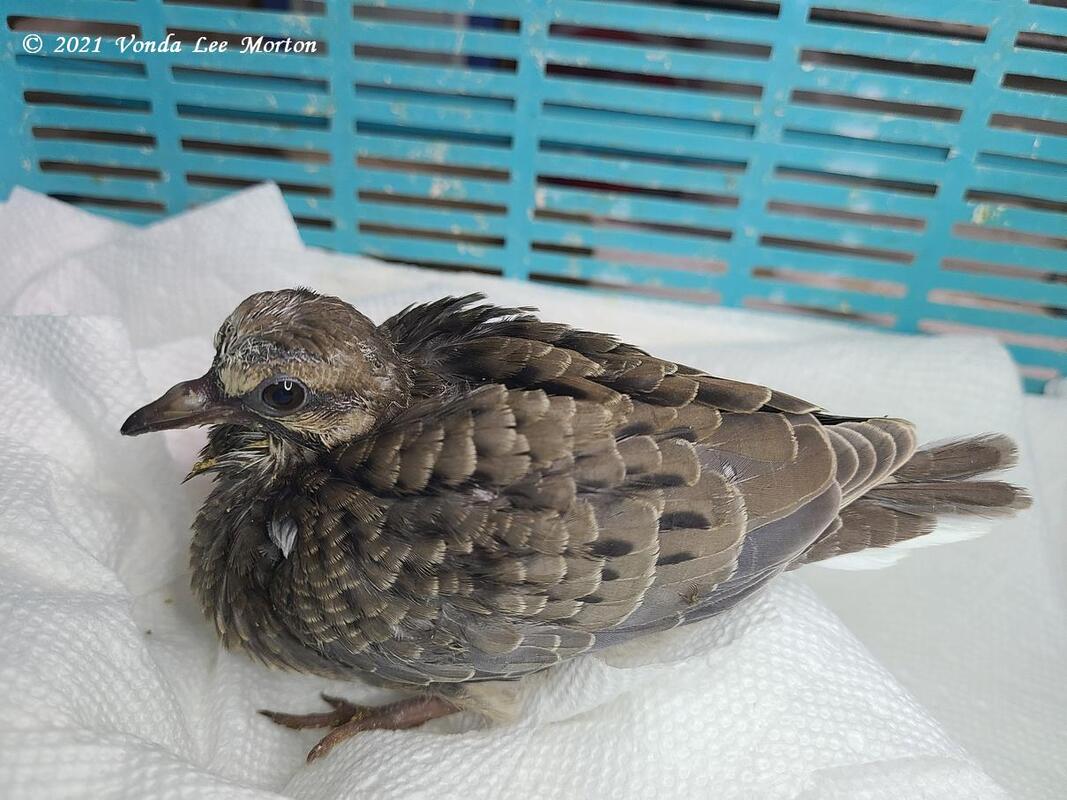
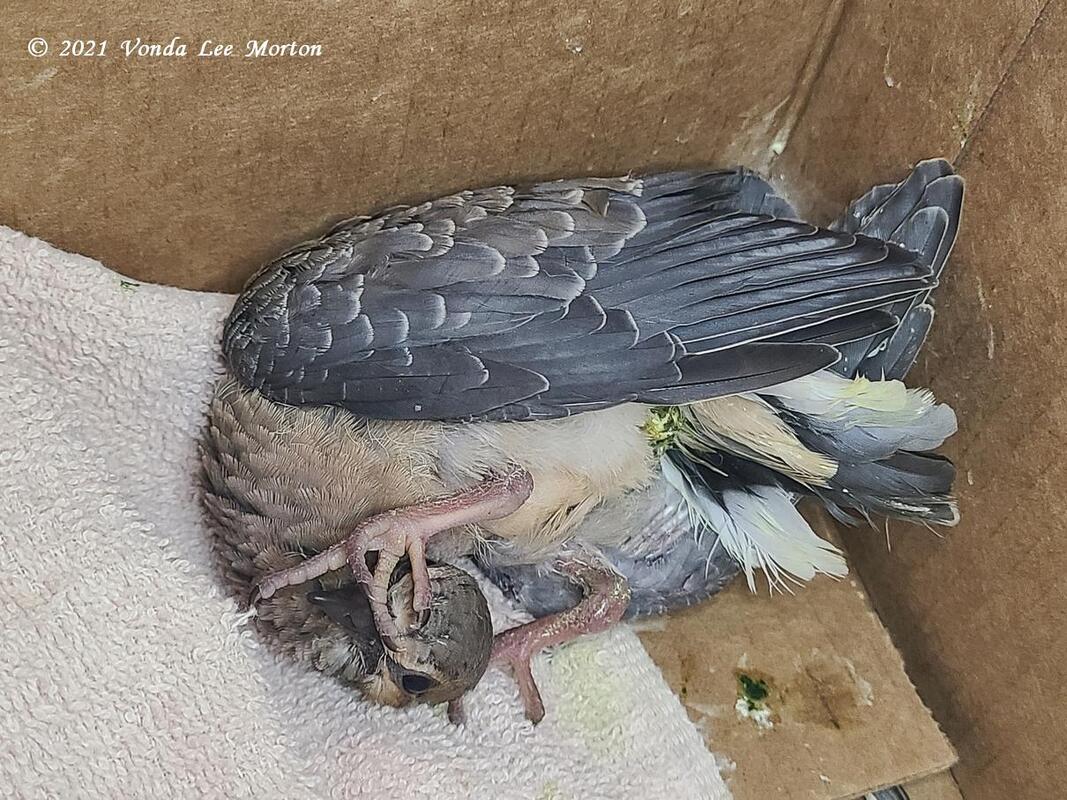
 RSS Feed
RSS Feed
